Testimonials
Influential personalities in the world of politics, social advocacy, sports, culture, entertainment and media share their experiences on how television has contributed to their career or to the promotion of their cause.

Sherri Aldis
Director, United Nations Regional Information Centre for Europe (UNRIC)“Television has always been an important tool to raise awareness about the issues facing our communities and our planet. On World TV Day, we celebrate the role of television in uniting our global community. We welcome the focus this year on the importance of making television accessible to all. Accessibility is the key to ensuring that television can educate and connect everyone, leaving no one behind.”
(For egta/ACT/The Global TV Group)
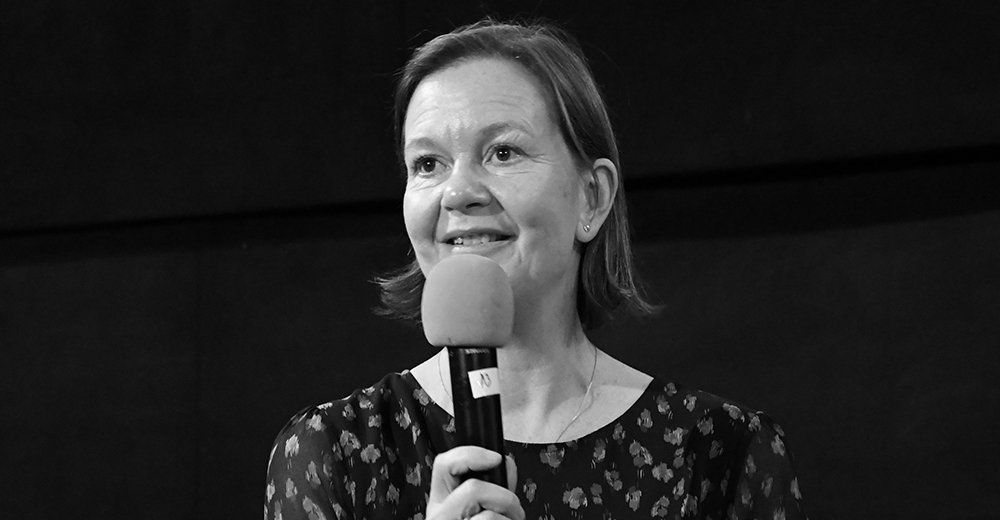
Caroline Petit
Officer in Charge & Deputy Director, United Nations Regional Information Centre for Europe (UNRIC)“TV has connected us all during the COVID-19 pandemic, keeping us informed, educated, entertained and even inspired. During the recent COP26 Conference, broadcasters from across the globe played an essential role in showcasing the challenges and solutions when we work together to combat climate change. Long live television as a unifying medium!”.
(For egta/EBU/The Global TV Group)
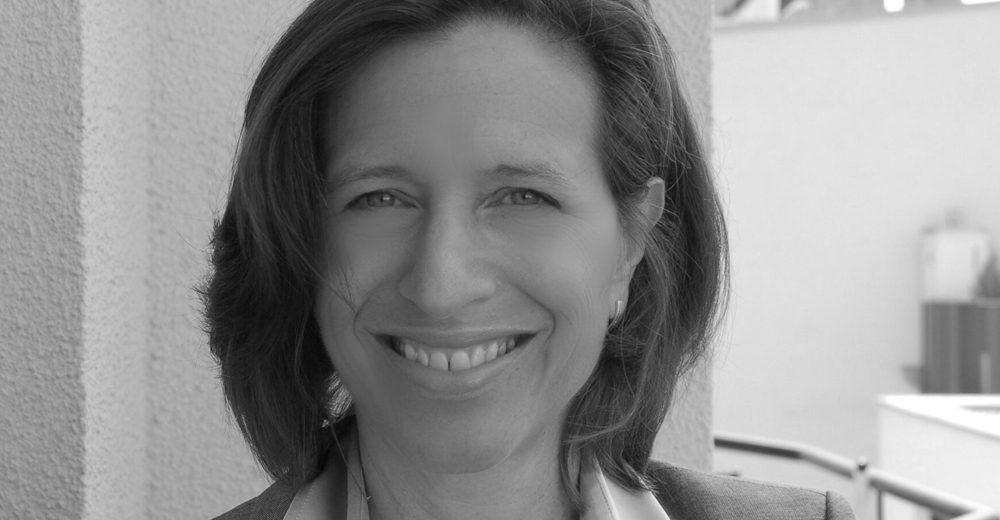
Melissa Fleming
Under-Secretary General of the United Nations Department of Global Communications“As we work together to overcome the COVID-19 pandemic, and to recover better, the TV industry has a key role to play in keeping people worldwide informed – with accurate, science-backed facts – while also offering solutions and hope.”
(For egta/EBU/The Global TV Group)
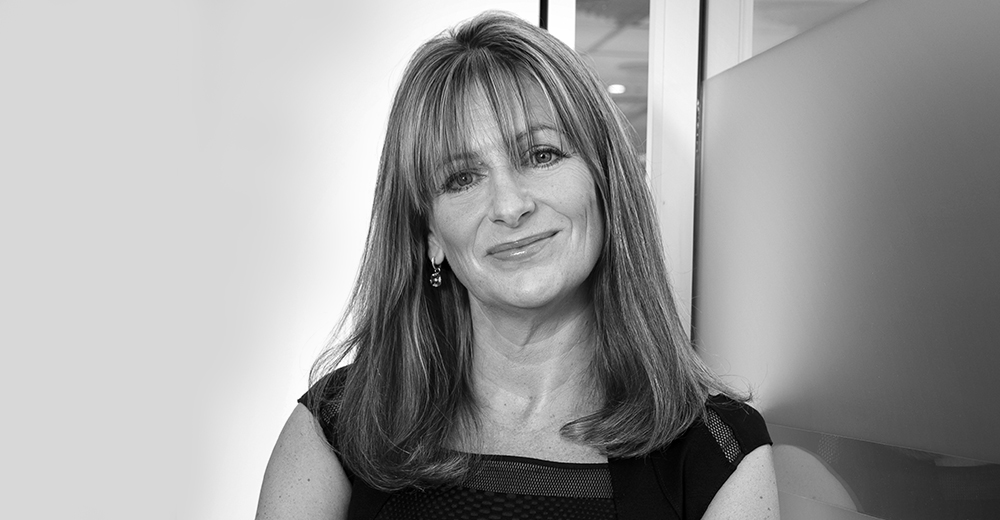
Lindsay Clay
President of the Global TV Group and CEO of Thinkbox, President of the Global TV Group and CEO of Thinkbox“While circumstances kept us apart this year, TV has brought us together. TV is and always has been a social glue. As viewing rocketed, broadcasters the world over reacted to the unique circumstances nimbly and with great creativity to ensure that TV was there for us all as a source of trusted information, comforting distraction, and much-needed escapism.”
(egta/ACT/The Global TV Group)

Laurent Bliaut
President of egta and Deputy General Director, Marketing and R&D, TF1 Publicité“The past year, TV has continued to uphold its long tradition of addressing the critical issues in our global community. It brings our attention to social injustice, sheds a neutral light on society’s mishaps, helps relieve the strain of an unprecedented era giving us a hopeful outlook on the future. World TV Day is an opportunity for us all to pay tribute to the many professionals who make the magic happen both on screen and from behind the scene. We invite everyone to once again celebrate our medium around the world.”
(For egta/ACT/The Global TV Group)
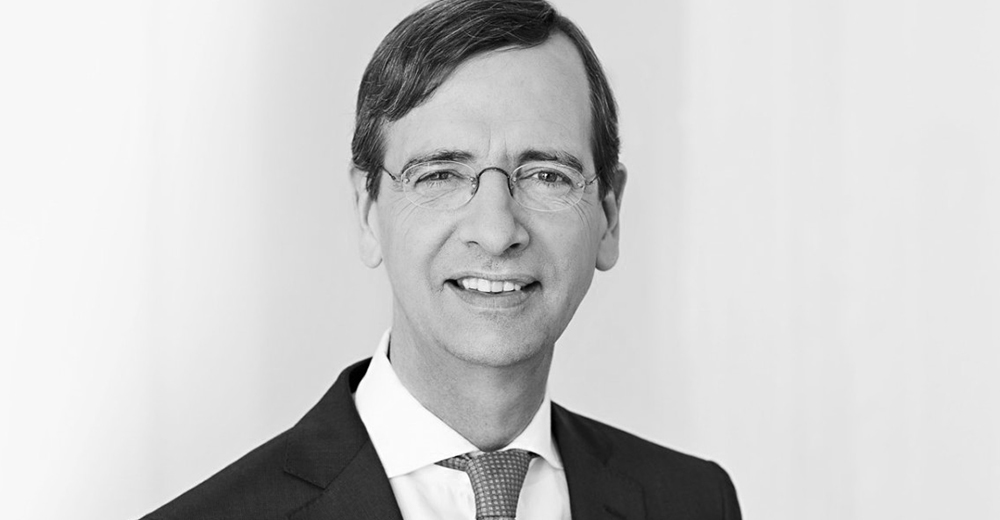
Guillaume de Posch
President of the Association of Commercial Television in Europe“This pandemic demonstrates like never before the role of television to support society and democracy. Throughout these difficult months, TV is there to care. Care for the provision of editorially responsible trusted news. Care for the distribution of entertainment to bring light in times of darkness. Care for preserving variety and cultural diversity in the media landscape. All in all, TV is and will continue to be a true beacon of resistance against the Coronavirus.”
(For egta/ACT/The Global TV Group)

Luka Modrić
Croatian professional footballerFootball changed my life. I fought hard for my dreams, just like many of my Croatian teammates, and this year we have achieved our dreams at the World Cup in Russia. Thanks to the TV, our whole nation could watch our games and be with us in each match, and they could see us fighting for each other, for our jersey and for our country. Through television, not only our families and our fans, but hundreds of million of people worldwide could feel the power of sports and get inspired by our story – small nation making it to the biggest game in the world, against all odds and expectations. But we did it, thanks to our togetherness, quality and character, and I am happy that thanks to TV, whole world saw what Croatians are capable of.
(For egta, EBU, ACT)

Alison Smale
USG for Global Communication, United NationsAchieving the goals by 2030 will require concerted actions by everyone. By telling stories, news and entertainment media have a critical role in multiplying messages and propagating new ways of behaving.
(For egta, ACT, EBU)
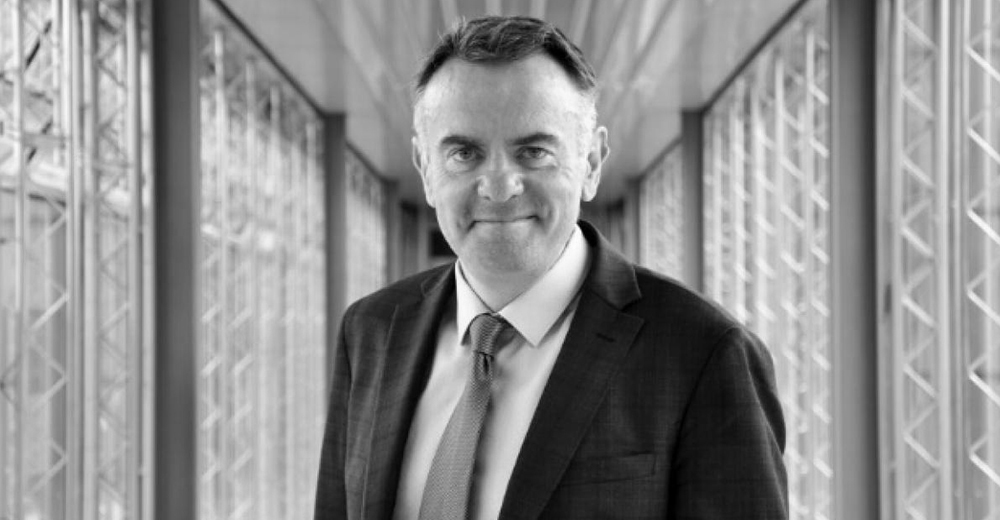
Noel Curran
Radio & TV producer, EBU Director General & former RTE TV Director General, IrelandTelevision broadcasters are proud to have the trust of their audiences. News and current affairs, on television in particular, are core to public service media (PSM). Informing all audiences with independent news and helping them to better understand the world is crucial for a democratic society. Through its Quality Journalism initiative, the EBU is building on the strength of the Eurovision newsroom and developing new services to help public service media sustain audience trust and remain a key source of information for individuals.
(For egta, ACT, EBU)

Magnus Brooke
Chairman of the ACT Board of DirectorsTV’s worldwide audience is not only staying faithful but growing fast as viewers tune in to top quality content made and acquired by broadcasters. We are extremely proud to be among the most trusted media, and are constantly searching for new world-class content to continue to entertain and inform millions of people around the world each week.
(For egta, ACT, EBU)

Katty Roberfroid
egta Director General, BelgiumAt a time when advertisers demand transparency and brand- safety, the trusted environment that television offers seems more relevant than ever. TV excels at offering a premium and sound environment for commercial communications, not only because broadcasters have been operating in this environment for decades, but also because TV is measured and audited by trust-worthy third parties, framed by strict legal rules and its content is produced highly professionally. This is truly the DNA of television even as it transforms digitally to operate on new online platforms. The editorial responsibility vis-à-vis consumers and brands alike remains unchanged – and even emphasised – in the online video sphere.
(For egta, ACT, EBU)

Helga Trüpel
Member of the European Parliament, GermanyTelevision is still a medium that brings a lot of information, education and entertainment to people. TV plays an important role for the functioning of democracy because it gives people a variety of news, documentaries and opinions. Especially in the digital environment TV with its adaptation to digital distribution of content remains a crucial player of content offerer.
(For egta, ACT, EBU)

Erika Miklósa
Opera singer, HungaryI am overjoyed to see concert halls and opera houses around the world filled up with people for my concerts. But at the same time I am aware that for many people the only opportunity to relax is in front of the television. That is why televised media is able to have such a great impact on them, and that is why its main goal should be to transmit relevant values. As an opera singer and as an active sportswoman, I think that there is a great need for high quality cultural and sports programmes on television apart from the “usual” TV content. That is why I am very happy to be a part of the unique classical music talent show “Virtuózok” on the Hungarian public service television. Its success proves that viewers are hungry for television programmes of such high standards that have substantial content.
(For egta, ACT, EBU)
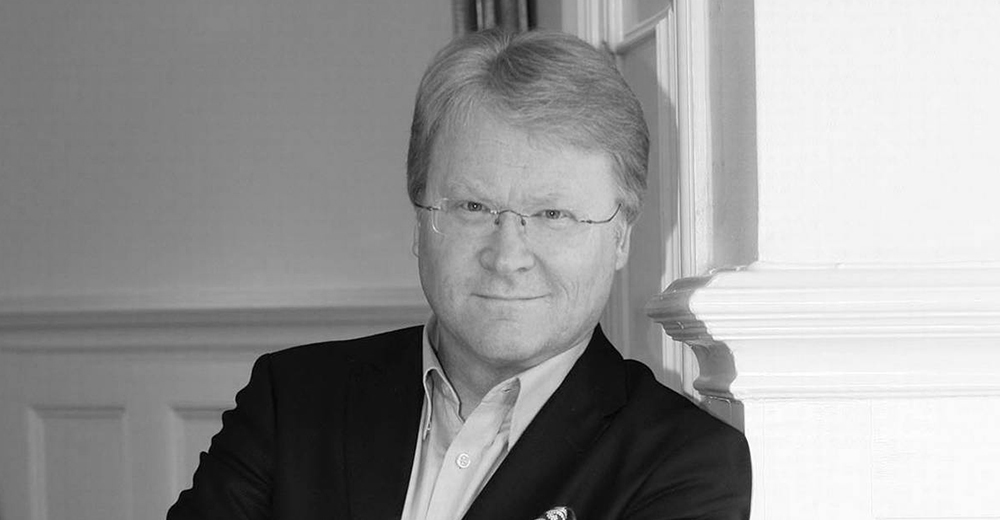
Lars Adaktusson
Member of the European Parliament & Journalist, SwedenTelevision provides us with indispensable news and information – in real time. Furthermore TV is the medium that opens up the world, conveys presence and makes us contestants in events that later end up in history books. Television carries knowledge, feelings and awareness which ultimately stimulates diversity and strengthens fundamental democratic values.
(For egta, ACT, EBU)

Robert Madelin
Fipra International’s Chairman & former Director General of Directorate-General for Communications Networks, Content and Technology, UKThe audiovisual sector has always been in constant change. Recently we are going through an even more exciting revolution. TV sets with added Internet connectivity, tablets and smartphones are now part of our “TV lives”. TV is no longer about sending information in one direction. The Internet links the audience and the content providers. This development opens the door to new converged modes of cultural expression, new services, new players and new audiences. The European Commission wants to make sure that the technological potential becomes a reality for the benefit of audiences and creators. Many of us have witnessed the fall of the Berlin Wall through the eyes of cameramen. This was 25 years ago. We want to see remaining borders falling, also in the audiovisual world.
(For egta, ACT, EBU)

Conchita Wurst
Singer; winner of the Eurovision Song Contest 2014, AustriaThe power of television is like every power: It has its good and its bad sides. It can help spreading a wonderful message, an idea, art, news, sports, movies and entertainment. Television is also used for propaganda against ideas, against artists, against minorities. The responsibility of those, who make television, is a huge one. I was a lucky person. I had the opportunity to sing in front of 190 million people and spread a message of love, respect and tolerance. A message that couldn’t have reached so many people without the simple existence of television.
(For egta, ACT, EBU)

Jean-Pierre and Luc Dardennes
Filmmakers, directors & Oscar holders, BelgiumIt is always a great opportunity to be able to continue the dialogue with the viewer on television that began many months or years ago at the cinema. TV extends the life of our works. To us, the most important strength of television is the common experience – accessible to everyone simultaneously – created when one of our movies is aired. Moreover, it is also a way to guarantee a long future for the French-speaking cinema and to reinforce a social cohesion around shared cultural references.
[“C’est une réelle chance de pouvoir continuer à la télévision le dialogue qu’on a commencé avec le spectateur au cinéma quelques mois ou années auparavant. La télé prolonge la vie de nos œuvres. Pour nous, la force majeure de la télévision c’est l’expérience commune, accessible à tous et en simultanée qui se créée lorsque l’un de nos films est diffusé. C’est d’ailleurs aussi une façon de garantir une longue vie au cinéma francophone et de renforcer une cohésion sociétale autour de références culturelles communes.”](For egta, ACT, EBU)

Roch Voisine
Singer, CanadaTV is the king and master of communication in our society, it is indispensable. It has both the duty to inform and the extraordinary power to entertain the public. TV was, and still is, an essential element to my job. When I was a young I watched many children’s programmes on Saturday morning…I was hooked!
[« La télévision règne en roi et maitre sur la communication dans notre société, elle est incontournable. Elle a, à la fois, le devoir d’informer et le pouvoir extraordinaire de divertir le public. La télé a été, et est toujours, un élément indispensable pour faire mon métier. Je regardais beaucoup les émissions pour enfants le samedis matin. J’étais accroc ! »](For egta, ACT, EBU)
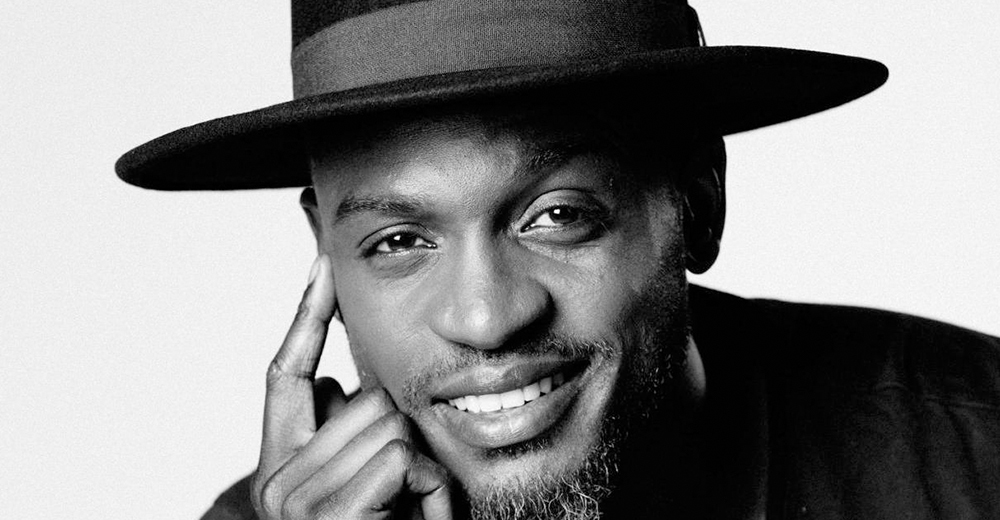
Corneille
Singer, Rwanda“TV remains my number one source of entertainment, whether for its fiction or variety programmes. It also remains an important source of information despite the ubiquity of the Internet and social networks. It helps me escape when I get caught up in my creative work. It also makes me travel outside of my comfort zone. The creative value in certain programmes (such as Dancing with the stars) is so inspirational that it sparks the a new visual or audio environment for my music projects. I grew up in a country (Rwanda) where TV did not arrive until very late. Until I was 16, TV remained an elusive concept. I spent afternoons with friends who had access to the European satellite channels and this was my window to a dream world: the West! In this era of new media and the Internet, TV seems to be doing well… which proves that big events have not yet found a substitute and I am one of their major fans!”
[« La télé reste ma source de divertissement numéro 1, que ce soit par ses programmes de fiction ou de variétés. Elle reste aussi une source importante d’information malgré l’omniprésence du web et de ses réseaux sociaux. Elle me sert d’évasion quand je reste trop longtemps prisonnier de mon métier de créateur. Elle me fait voyager, hors de ce qui m’est trop familier. Il existe quelques programmes de variétés qui présentent un tel effort artistique (Danse avec les stars,…) qu’ils peuvent inspirer un univers visuel ou même sonore pour mes projets musicaux. J’ai grandi dans un pays (Rwanda) où la télé n’est arrivée que très tard donc jusqu’à mes 16 ans la télé est resté un concept inaccessible. Je passais des après-midis chez des amis qui avaient accès aux chaînes européennes par satellite. C’était ma fenêtre sur un monde qui faisait rêver, l’occident. La télé a l’air de plutôt bien survivre à l’ère des nouveaux médias, internet… Ce qui prouve que ses rendez-vous n’ont pas encore trouvé de substitut et je fais partie de ses grands clients ! »](For egta, EBU, ACT)

Ernő Rubik
Inventor of the Rubik’s Cube, HungaryTelevision has remained the most powerful platform to reach large groups of people. That power must be matched by the responsibility to strike the right balance among entertainment, news, or education. The vast technological innovations taking us to the digital world should similarly be accompanied by innovative content-creation fostering curiosity, emotional engagement and socially involved citizens.
(For egta, ACT, EBU)
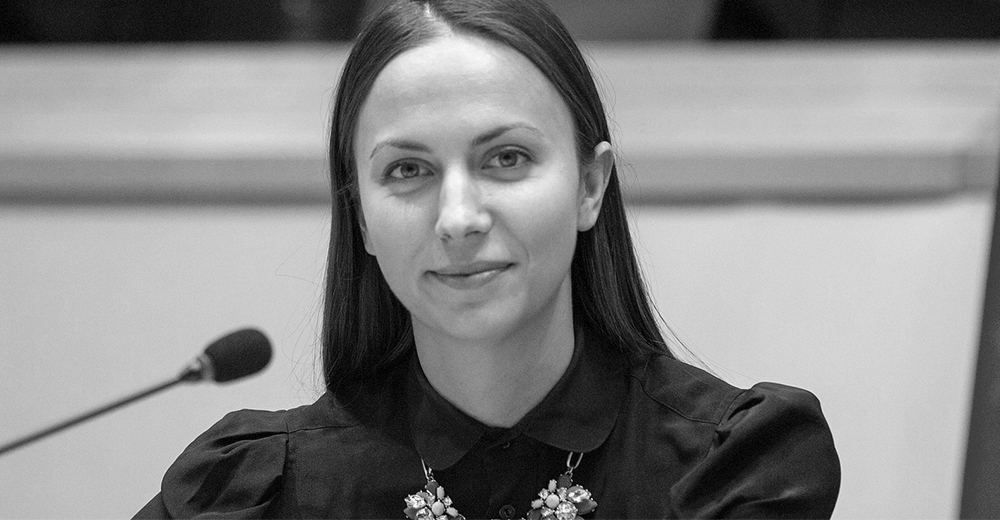
Eva Maydell
Member of the European Parliament, BulgariaEuropean integration removes barriers between countries, societies and individuals – barriers that are physical, as well as virtual. Technological development in the field of television and radio plays a major role in maintaining the pursuit of freedom and justice and fosters the formation of a strong civil society. Television retains its prominent role in an increasingly digitised world.
(For egta, ACT, EBU)
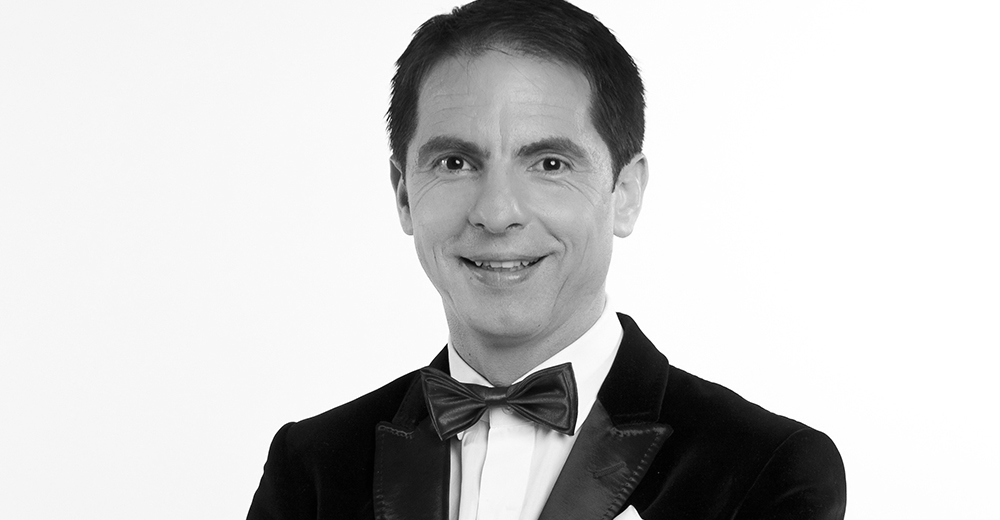
Dan Negru
Antena 1 TV host, RomaniaTelevision is the only profession where what you dream at night is likely to happen the next day. If you want to create, in the middle of summer, a Christmas atmosphere on a TV set, in front of the cameras, this thing is possible and millions of viewers who watch you will be enchanted by this atmosphere. Television is a walk through people’s dreams.
(For egta, ACT, EBU)

Jean-Paul Philippot
President of EBU & General Director of RTBFThe EBU has 63 Active TV Members in 55 countries, operating 937 TV channels broadcasting in 69 languages with a potential audience of 1.02 billion people,” Mr Philippot said. “It gives a voice to those who would otherwise go unheard and by serving all sections of society; it promotes tolerance and understanding and facilitates debate around issues of national concern.”
(For egta, ACT, EBU)
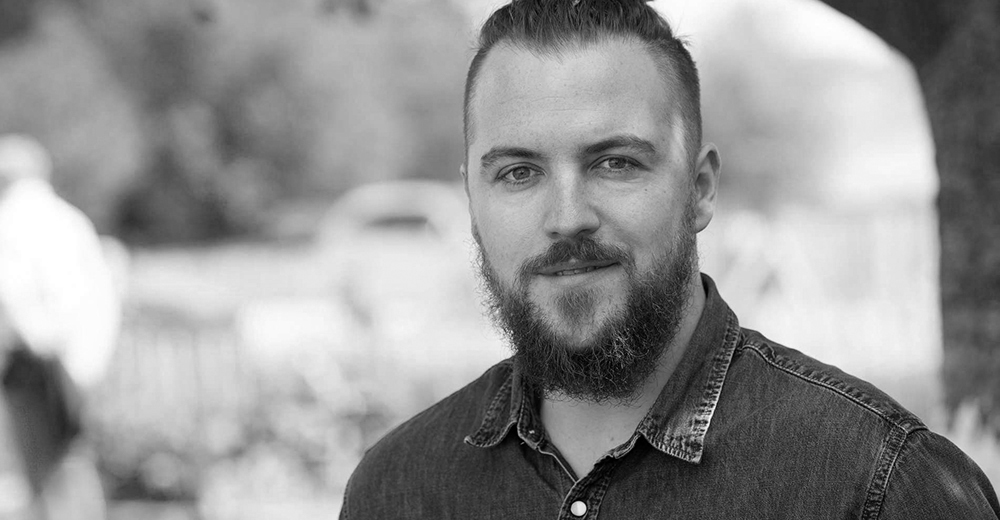
Florent Ladeyn
Chef, “Top Chef” finalist & owner of The “Auberge du Vert Mont”, FranceTelevision is an incredible communication medium that can be very positive if you know how to put things into perspective and keep a cool head… because its power is impressive! Taking part in Top Chef has changed many things in my life, but for me the most important thing is still to remain true to myself.
[« La télévision est un incroyable moyen de communication qui peut être très positif si l’on sait prendre du recul et garder la tête froide ! Son pouvoir est impressionnant. Mon passage dans l’émission Top chef a changé beaucoup de choses dans ma vie mais l’important pour moi est avant tout de rester soi-même. »](For egta, ACT, EBU)

Elisa Togut
Professional volleyball player & 2002 World Championship winner, ItalyTelevision has changed the habits of our society; it has brought us into come into contact with the history of different ethnic groups and distant countries. Television made us feel part of the world through images and news from far off lands, sometimes even unknown lands! As for me, television has changed my life. This largely happened one Sunday afternoon, 15 September 2002, when the Italian national team that I was playing with won the Volleyball World Championship. The final was broadcast on national channels and watched by many people. On top of that there was the pride and satisfaction of winning the Most Valuable Player award. When I returned to Italy, many people recognised me on the streets. I believe that ever since that day the Italian female volleyball movement has experienced a boom, both in terms of fans following matches in sports arenas and in terms of young girls enrolling in volleyball classes. Volleyball is now the most popular sport for females in Italy! Volleyball is still televised; however, it is considered as a “secondary” sport, and it does not get the same visibility as other activities such as football, so unfortunately we are forced to wait for major events such as the World Championships or Olympic games to be able to follow volleyball matches from our homes.”
[“La televisione ha cambiato le abitudini della nostra società, ha permesso la conoscenza della storia di etnie diverse, di paesi lontani dal nostro, ci ha fatto sentire parte del mondo attraverso immagini e notizie provenienti da luoghi lontanissimi e a volte sconosciuti!Nel mio piccolo la televisione ha cambiato la mia vita e soprattutto lo ha fatto quella domenica pomeriggio del 15 settembre 2002 quando a Berlino la Nazionale Italiana di pallavolo della quale facevo parte ha vinto il campionato Mondiale! La partita e’ stata trasmessa sulle reti nazionali ed e’ stata vista da tantissime persone. In più resta l’orgoglio personale di essere stata premiata miglior giocatrice del torneo. Al rientro in Italia molte persone mi riconoscevano e da quel giorno in poi credo che la pallavolo femminile abbia avuto un incremento di seguito anche nei palazzetti! Tante ragazzine dopo quell’impresa si sono iscritte ai corsi di volley e al momento in Italia rimane lo sport più praticato a livello femminile! Tutt’ora la pallavolo viene trasmessa in televisione, ma essendo pur sempre uno sport minore non ha la visibilità di altri sport e ci tocca aspettare sempre grandi eventi come Mondiali o Olimpiadi per riuscire a guardarcela da casa!”](For egta, ACT, EBU)
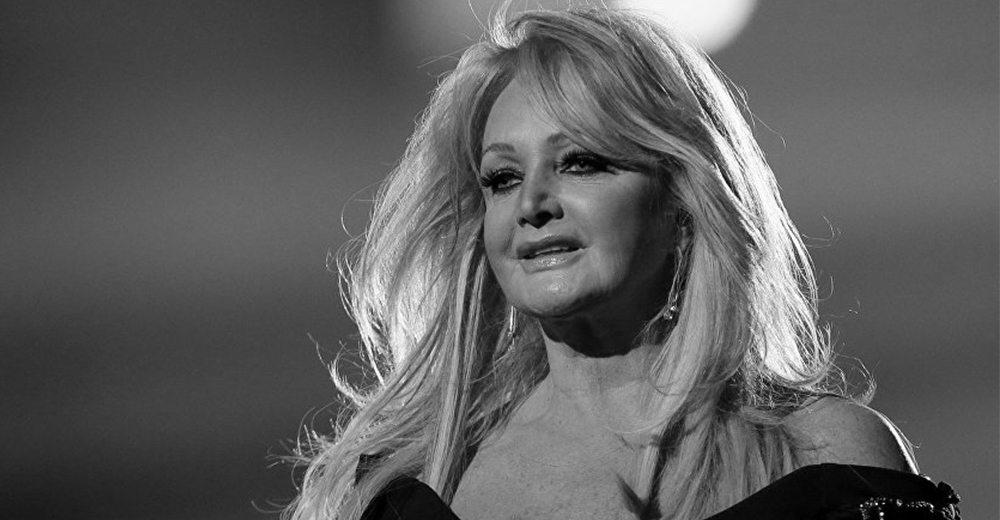
Bonnie Tyler
Welsh singer, songwriter, businesswoman & active philanthropistTV is now the greatest cultural influence in the world. It crosses all human boundaries and has the capacity to bring people together, when used in a positive way, like no other medium. I love to watch TV wherever I am in the world and never cease to be both entertained and informed by it.
(For egta, ACT, EBU)

Bastian Baker
Singer, songwriter, & performer, SwitzerlandTelevision is one of the most important media that exist. It is central to the dissemination of information on all occasions. It opens up a world to us that would not exist otherwise. Television is knowledge! It is also a great way to mobilise people around a number of different causes. It brings people together and connects them, during sporting events, for example. Moreover, television is an important and essential way to relay culture. Personally, it allows me to spread my music more broadly, thanks to original programming such as ‘Taratata’ and ‘The Voice’.
[« La télévision est un des médias les plus importants qui existe. Elle est au cœur de l’information en toutes occasions. C’est un moyen d’avoir une ouverture sur la planète qui existerait difficilement autrement. La télévision est synonyme de connaissance ! Elle est également un magnifique moyen de mobilisation en faveur de diverses causes. Elle rassemble, comme lors d’événements sportifs, par exemple. Par ailleurs, c’est un relai important et essentiel pour la culture. A titre personnel, elle permet de pouvoir répandre ma musique d’une manière plus large, notamment grâce à des émissions originales comme « Taratata » ou « The Voice ». »](For egta, ACT, EBU)
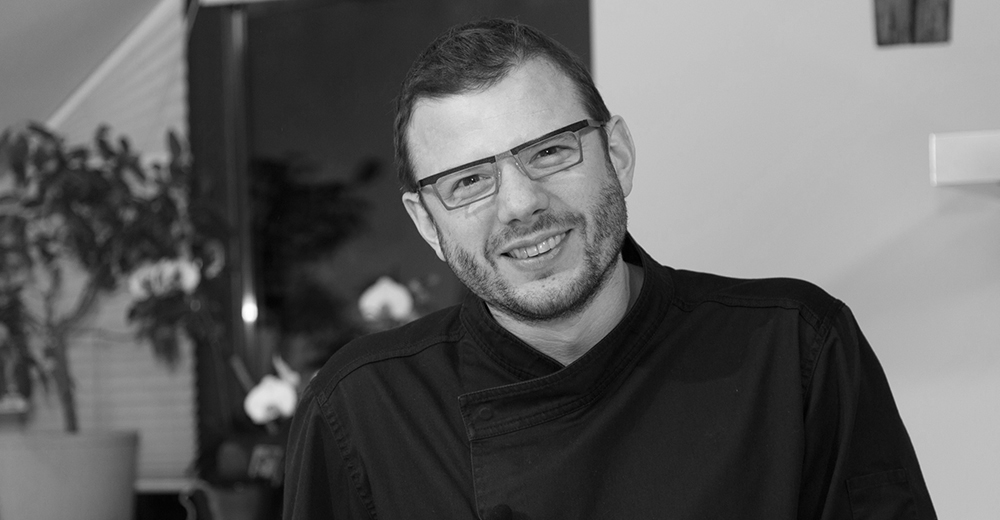
Jean-Philippe Watteyne
Chef & Owner of iCook restaurant, BelgiumTelevision has clearly changed my professional and personal life. Becoming a reality TV star had a tsunami effect for me. I have to say that I did not expect it and even less that it would last so long, because now even months after, I can still clearly feel the effects of Top Chef. After that, one has to keep their feet on the ground and keep on proving your worth. TV clearly gave us an incomparable push forward thanks to which I could open a second restaurant and the future looks bright. I really think that cooking shows on TV can inspire a new vocation to young people and can open doors to young talents who need a boost.
[« La télévision a clairement changé ma vie personnelle et professionnelle. Devenir une star de télé-réalité a eu un effet de Tsunami pour moi. Je dois avouer que je ne m’attendais pas à cela et encore moins à ce que cela dure si longtemps, car des mois après, je ressens encore clairement les effets de mon passage dans Top Chef. Après cela, il faut réussir à garder les pieds sur terre et surtout continuer à assurer sur le long terme. Mais cela nous a donné un coup de pouce inégalable, grâce auquel nous avons déjà ouvert un deuxième restaurant et l’avenir s’annonce passionnant. Je crois vraiment que les émissions de cuisine à la télé peuvent inspirer des nouvelles vocations aux jeunes d’aujourd’hui et ouvrir des portes à beaucoup de jeunes talents qui ont besoin d’un tremplin. »](For egta, ACT, EBU)

Thomas Helmer
Former football player, TV presenter & Commentator, GermanyI can remember very well the first football game on TV that I was consciously aware of. It was in 1974 and it was the final of Germany against Holland. Today it is a lot of fun for me to be in front of the camera and to report about our attempts back then on the field. That’s why I am so happy today to be active on television, after my football career.
[“Ich kann mich ganz genau an mein erstes Fußballspiel im Fernsehen erinnern das ich bewusst erlebt habe, das war 1974, nämlich das Finale Deutschland gegen Holland. Es macht heute riesen Spaß natürlich auch vor der Kamera zu stehen und über das zu urteilen was wir früher mal versucht haben ganz gut auf dem Platz darzustellen. Deswegen bin ich sehr sehr glücklich nach meiner aktiven Fußballkarriere jetzt auch beim Fernsehen sein zu dürfen.”](For egta, ACT, EBU)
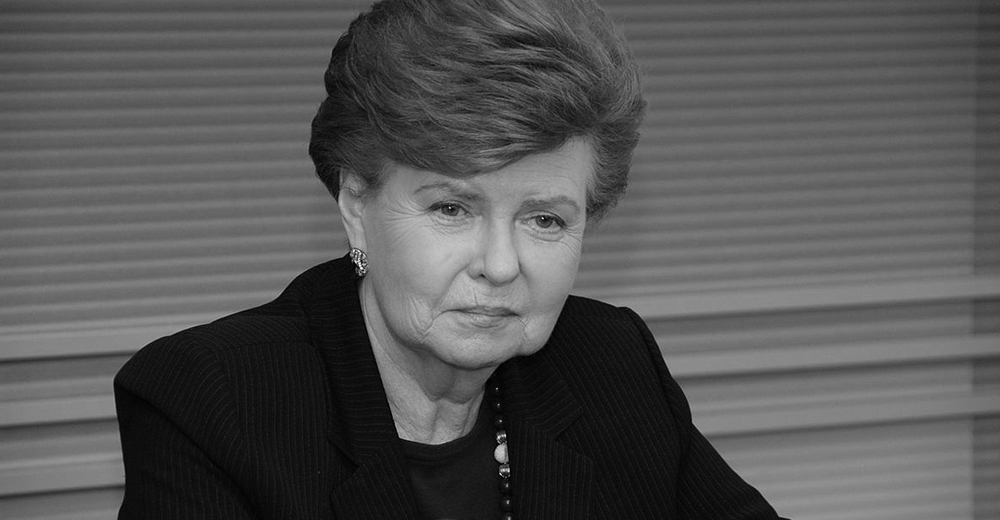
Vaira Vīķe-Freiberga
Former President of Latvia & the first female President of the countryDemocracy requires a well-informed, inclusive and pluralistic public sphere; the media are, to a large extent, the creators as well as the “editors” of this public sphere. In this they become the holders of considerable power and may come to assume the status of a “fourth estate” within society. At the same time, the public service aspect and democratic function of media can come under threat either through political interference, undue commercial influence, or increasing social disinterest and indifference on the part of the general public.”
(For egta, ACT, EBU)
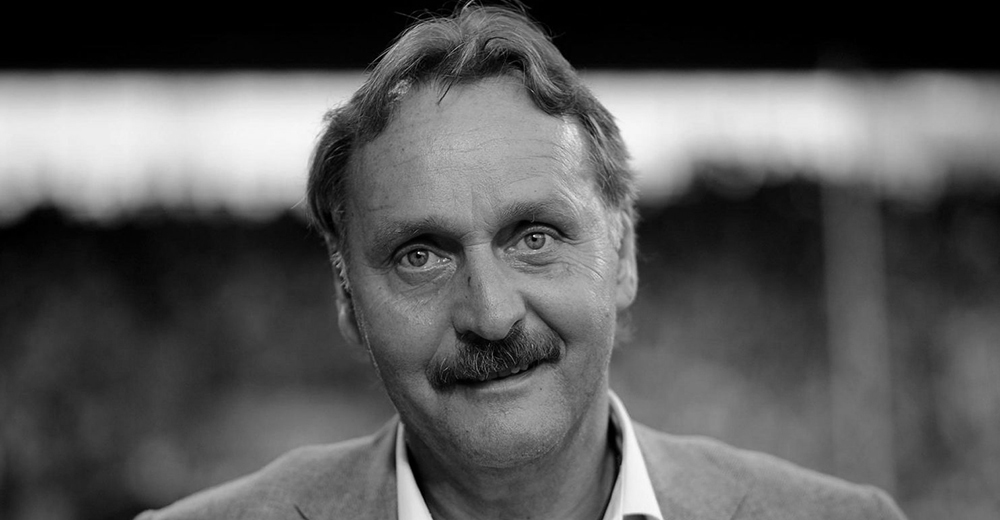
Peter Neururer
Football manager, coach and TV commentator, GermanyFootball accompanies my life, and the same is of course true for television. At first, I was happy that I could watch TV at all, mainly for football. The first time, it was in 1962, I remember well. It was incredible. I was at my neighbours’ house, and Germany was playing in Santiago de Chile against Yugoslavia… the first tears came, and TV was there with me to show me the images. SPORT1 gave me the possibility to look behind the camera too and to see things through the camera, to be able to commentate on events, just like I used to do on the field. Thank you for that! Television accompanies my life.
[„Fußball begleitet mein Leben. Das gleiche beziehe ich natürlich auch auf das Fernsehen. Zuerst war ich froh dass ich Fernsehen gucken konnte, vor allem Fußball im Fernsehen gucken konnte. Das erste Mal, eigenartig, 1962, der ein oder andere der das jetzt hört kann sich das nicht vorstellen. Fernsehen beim Nachbarn, Santiago de Chile, Deutschland bei der Weltmeisterschaft in Chile gegen Jugoslawien, die ersten Tränen kamen, das Fernsehen war mit dabei, hat mir die Bilder übermittelt SPORT1 hat mir die Möglichkeit gegeben dass ich auch mal hinter die Kamera gucken kann, durch die Kamera mit Hilfe der Kamera die Sachen betrachten kann und auch kommentieren darf die ich früher selber angezapft und verzapft habe. Dankeschön dafür. Fernsehen begleitet mein Leben.”](For egta, ACT, EBU)

Sandis Ozoliņš
Former ice-hockey player & coach, LatviaTelevision has enormous power, because it allows people to follow all major sports events by watching their TV, and it does not matter if it is a 9 seconds long 100 meters final sprint race at the Olympics, an hour long exciting ice-hockey game or a competition in any other sports discipline. That is why millions of fans forget the world around them while enjoying sports competitions at home. I know that people are happy for the opportunity to watch the games at home and have a good time, and that gives me great satisfaction and understanding that television can bring my represented sport – ice-hockey – into every home by letting an unlimited number of people to enjoy the game, while Arena Riga can host only 10,000 sports fans.
(For egta, ACT, EBU)

Natasha St-Pier
Canadian singer & jury member of “The Voice” BelgiumI’ve always loved television: firstly as a member of the public and later as an artist. I believe that TV is a way to bring culture into the homes of everyone. From a personal point of view it gives me a chance as a singer and TV presenter to meet so many fascinating artists who both inspire me and help me grow professionally. By participating in a show such as The Voice Belgium, I get to give a little help to young talent, who only need that one chance to wow us through the unique window that TV offers. Despite a busy schedule, through telethons or the show ‘Restos du coeurs’, TV also allows me to give back. In short, TV is my life!
[“J’ai toujours aimé la télévision; en tant que public d’abord, puis en tant qu’artiste. La télé est un moyen de faire entrer la culture dans les maisons de tout le monde. D’un point de vue personnel cela me donne la chance en tant que chanteuse ou animatrice de rencontrer des artistes tellement fascinants qui m’inspirent et me font grandir dans mon métier. En participant à des émission comme The Voice Belgique j’ai la chance de donner un coup de pouce à de jeunes talents qui n’ont besoin que d’une chance, de cette vitrine qu’est la télé pour nous séduire. Malgré un emploi du temps chargé, via les téléthon ou les Restos du cœurs, la télé me permet aussi de donner à mon tour. Bref ma vie passe par la télé !”](For egta, ACT, EBU)

Kofi Annan
Former Secretary General of the United NationsTelevision can be a tremendous force for good. It can educate great numbers of people about the world around them. It can show us how much we have in common with our neighbours, near and far. And, it can shed light on the dark corners, where ignorance and hatred fester. The television industry is also in a unique position to promote mutual understanding and tolerance – with content that tells the stories not just about the powerful, but about the powerless, and not just about life in the world’s richest pockets, but also in the developing countries that are home to the majority of the world’s population.
(For egta, ACT, EBU)
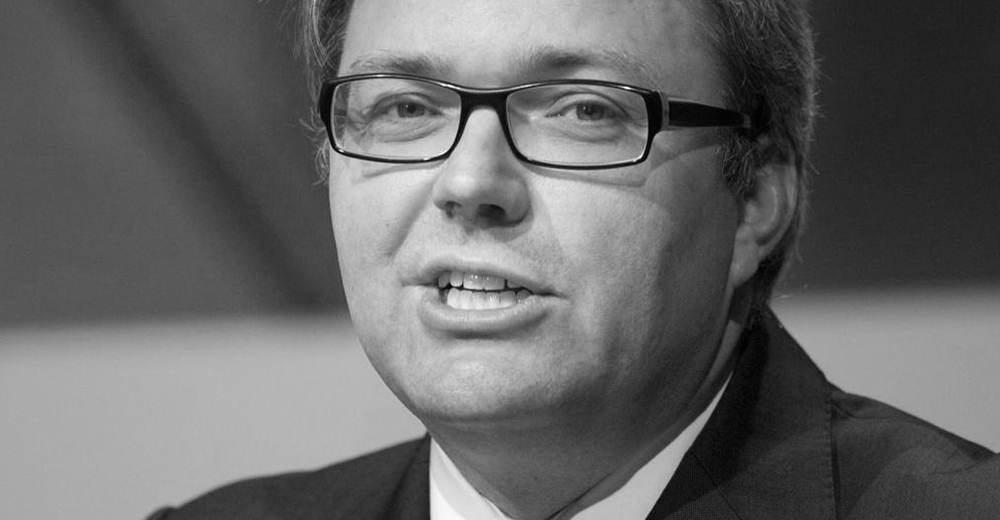
Dr. Marc Jan Eumann
State Secretary for Federal Affairs, GermanyTelevision is a valuable asset in a democratic society, and much more than only for entertainment purposes. Thanks to its variety it ensures that people of every age, from all backgrounds and levels of education are informed about developments happening in their country and in the rest of the world. They can form their own opinion thanks to it, because even complicated concepts are easier to understand with moving images. Without television, life would be poorer –in information, but, yes, even in entertainment.
[„Fernsehen ist in einer demokratischen Gesellschaft ein wertvolles Gut, weit über den unterhaltenden Charakter hinaus. Mit seiner Vielfalt sorgt es dafür, dass Menschen jeden Alters, jeglicher Herkunft und mit jeglichem Bildungsgrad über die Entwicklungen in ihrem Land und im Rest der Welt auf dem Laufenden bleiben. Sie können sich eine Meinung bilden, weil auch schwierige Zusammenhänge in bewegten Bildern leichter zu verstehen sind. Ohne Fernsehen wäre das Leben ärmer – an Information und, ja, auch an Unterhaltung.” ](For egta, ACT, EBU)

José Manuel Barroso
Former President of the European Commission & Goldman Sachs International’s, PortugalTelevision has a remarkable ability to keep pace with the change that we see around us on a daily basis. As people crave information, entertainment and education so television allows them to learn, to question and to form their own opinion. Politics, whether at a European or a national level, exists for the people. A robust and independent media raises awareness and reports about the successes and challenges facing Europeans today. The emotional power of television enables viewers to explore, to empathise, to engage and to sustain democracies.
(For egta, ACT, EBU)
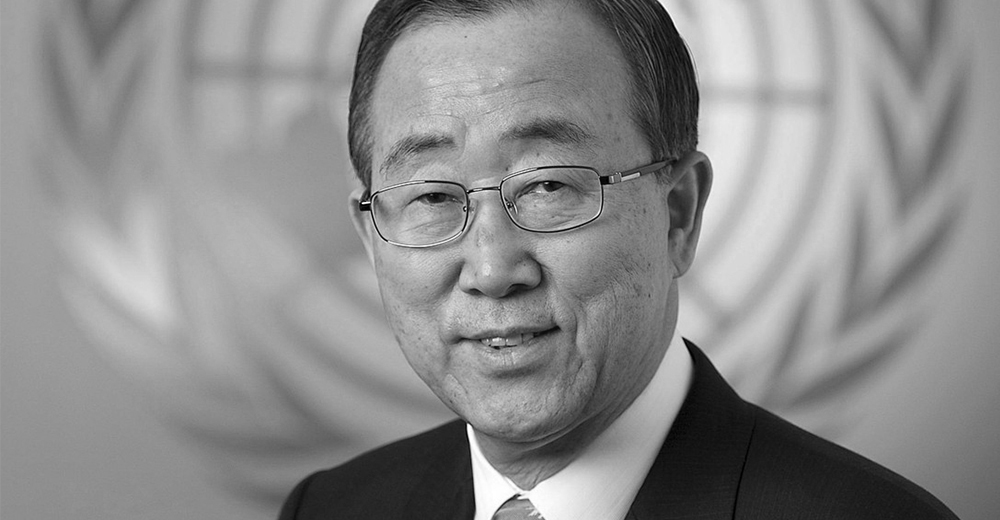
Ban Ki-moon
Former Secretary-General of the United Nations & chairman of the IOC Ethics Commission, South KoreaTelevision helps bring the world to people’s lives and living rooms. Through quality programming, television sheds light on global issues and opens windows of understanding on the struggles and hopes of communities and families everywhere. The United Nations looks forward to continuing our work with broadcasters to help inform, educate and build a better world.
(For egta, ACT, EBU)

Jean Paul Gaultier
Stylist and designer, FranceTelevision has always been very important in my life. As a child I watched TV with my grandmother, and it’s a habit that has never left me. Just as what I see on the street inspires me, so does television. When I work on my collections, I try to reflect what I see and perceive around me. Fashion should match people’s evolving desires as well as reflect the society they live in; this is where television comes in, among other sources of inspiration.
[“La télévision a toujours été très importante dans ma vie. Déjà jeune je regardais très souvent la télé chez ma grand-mère, et c’est une habitude qui ne m’a pas quitté depuis. Comme la rue, la télévision m’inspire. Quand je travaille sur mes collections, j’essaye de refléter ce que je vois et perçois autour de moi. La mode doit correspondre aux désirs du moment et refléter l’actualité, et cela passe entre autre par la télévision. »](For egta, ACT, EBU)

Franz Beckenbauer
Football coach, manager and former player, GermanyThe development that has happened on television recently is amazing! Football and Formula 1 in particular have benefitted from this. Television has actually brought football to where it is today, and that is huge!
[„Die Entwicklung ist sagenhaft, was sich da im Fernsehen getan hat. Davon haben vor allem der Fußball und die Formel 1 profitiert. Das Fernsehen hat den Fußball dahin gebracht, wo er heute ist – das ist gigantisch!”](For egta, ACT, EBU)
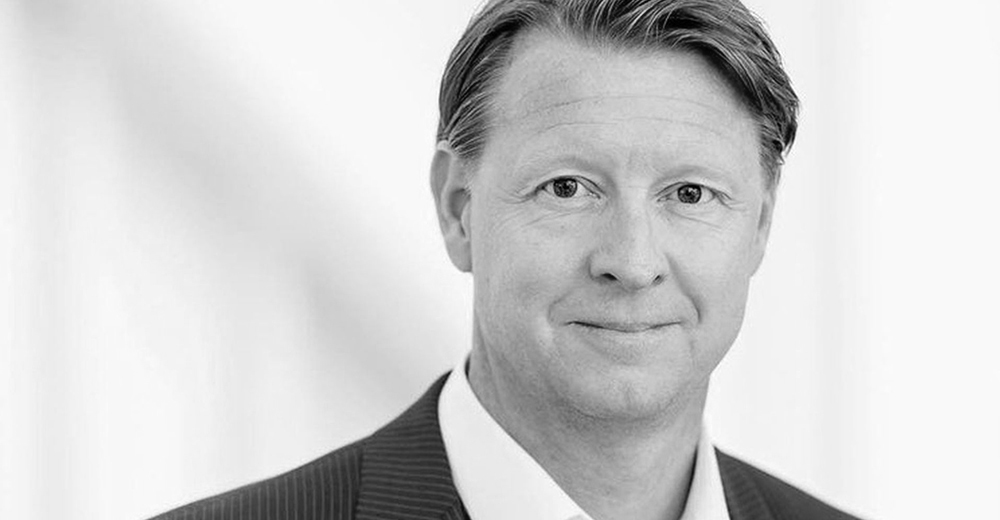
Hans Vestberg
Verizon Chief Executive Officer & former Ericsson Chief Executive Officer, SwedenTelevision is an endlessly fascinating medium because it’s changing all the time. It’s incredible when you think about it – the advances in the technology we’ve seen and the huge explosion in the amount of content we can access as a TV viewer. In the emerging Networked Society, we at Ericsson envision that everything that benefits from a connection will have one – and we anticipate that by 2020 there will be at least 50 billion connected devices, 15 billion of which will offer video to users. And that’s what TV is about in today’s world – making the world a smaller place by making communication across the globe easier. People love to watch great TV, it really is that simple, and our job is to continue to make it better and better. Television is undergoing a huge transformation behind the scenes and I am so excited about continuing to be part of the changing face of the media industry as we bring connectivity and great content to the masses.
(For egta, ACT, EBU)
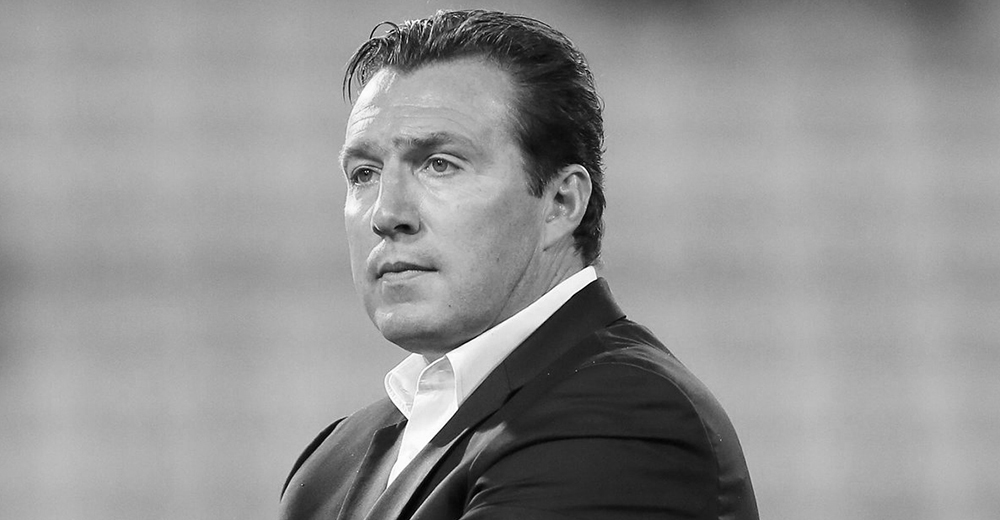
Marc Wilmots
Football team coach and football commentator, BelgiumIf the Diables Rouges are so popular right now, and all the more in recent months, it not just because they work hard, but also thanks to the visibility that TV gives them by showing their talent to the world at each game. Thanks to TV, they have a direct connection with the audience that creates passion and triggers strong emotions. Of course, all the new aspects of TV with social media, Twitter and Facebook, merely enhance and multiply this passion through the capacity to share even more with fans than before.
[“Si les Diables Rouges sont aussi populaires actuellement, et encore davantage depuis quelques mois, ce n’est pas seulement parce qu’ils travaillent dur, mais aussi grâce à la visibilité que la télévision leur donne en montrant leur talent au monde entier à chaque match. Grâce à la télé, ils ont un lien direct avec le public et c’est ça qui crée la passion et des émotions fortes. Evidemment, tous les nouveaux aspects de la télé – avec les médias sociaux, Twitter et Facebook – ne font que multiplier cette passion grâce à la capacité qu’ils offrent de partager encore plus avec les fans qu’avant.”](For egta, ACT, EBU)

Androulla Vassiliou
Former Member of the European Commission, GreeceWhile the digital revolution has empowered individuals with an unprecedented diversity of communication tools, television remains the most powerful medium of all. It allows people – of all ages and backgrounds – to easily share information, views and emotions. Television has a key role to play in education, and it enables viewers to enjoy the richness of our cultural diversity, contributing to a more creative Europe.
(For egta, ACT, EBU)

Ted Sarandos
Chief Content Officer at NetflixPeople love compelling television content. At Netflix, we do too. In view of viewers’ desire to further engage with their favourite shows any time anywhere, it is our conviction that linear TV viewing is bound to further naturally evolve towards new screens. Netflix should not be seen as a competitor to television. We do ultimately compete for viewers’ attention, but it is our aim to keep the Netflix service so well priced that no one has to cancel any of their television offering to afford it. We are an exclusively on-demand platform, and the majority of our investments are made in season-after-broadcast content that has already been broadcast on linear TV, where the viewer’s passion for stories is triggered. We believe that viewing on Netflix is incremental to television and that we have the opportunity to engage viewers on a deeper level while creating high loyalty for shows. Broadcasters should more than ever invest in the qualities of linear TV such as event driven programmes, live shows, sports and news. This is ground where we will be less likely to compete and that viewers will always crave for.
(For egta, ACT, EBU)

Niki Lauda
Former Austrian Formula 1 racing driver, three-time World Champion, AustriaThe fact that I report as an expert for RTL live from the race course already shows that I attach great importance to the medium of television. Few people have had the opportunity to even sit once in a Formula 1 car as I have. Thanks to television, millions of people have the chance to be part of the action and to celebrate victories with us.
[“Dass ich als Experte für RTL live von der Rennstrecke berichte, zeigt schon, dass ich dem Medium Fernsehen eine große Bedeutung beimesse. Nur wenige Menschen haben wie ich die Gelegenheit, einmal in ihrem Leben in einem Formel 1-Auto zu sitzen. Dank des Fernsehens bekommen Millionen Menschen die Chance, mitten im Geschehen zu sein und gemeinsam mit uns Erfolge zu feiern.”](For egta, ACT, EBU)

Petra Kammerevert
Member of the European Parliament, GermanyMedia, and especially television, transport the oxygen of a democratic society: information. It doesn’t work without them. And to make sure that the supply continues to be guaranteed, we need the right political decisions. The world is getting more complex and while technical progress has a lot of good sides, it also brings new challenges. Our role is to give television the necessary space to keep on evolving – no matter on which screen.
[„Medien und vor allem das Fernsehen transportieren den Sauerstoff einer demokratischen Gesellschaft: Information. Ohne geht es nicht. Und damit die Versorgung auch weiterhin gesichert ist, braucht es die richtigen politischen Entscheidungen. Die Welt wird komplexer, der technische Fortschritt bringt viel Gutes, aber auch neue Herausforderungen. Unsere Aufgabe ist es, dem Fernsehen – auf welchem Bildschirm auch immer – den notwendigen Raum zur Weiterentwicklung zu geben.”](For egta, ACT, EBU)

Yüksel Aytuğ
Journalist, editor & television columnist, TurkeyThe invention of TV is like the conquest of Istanbul by Mehmet the Conqueror. TV, as he did, ended an era and started new one. New kinds of art and artistic concepts have emerged with TV, just as happened in the Renaissance. TV became the vehicle for many concepts. Especially in developing countries, TV has the responsibility of duty of a teacher or parents. Or, as is the case in Latin countries, football broadcasting is used as drug to illusion people. TV is like uranium. In good hands, it can be used to supply electricity to a whole country. In bad hands, it can devastate a country in sociocultural dimensions.
(For egta, ACT, EBU)

Eylem Şenkal
Model & national volleyball player, TurkeyTV enabled my performance to be reached by not hundred or thousand people, but millions. It is the most critical factor for those people who are engaged in visual arts. Therefore, it is indispensable for us.
(For egta, ACT, EBU)

Ebru Akel
Actress and TV presenter, TurkeyMy first engagement with TV was during my school years. The imagination of being on TV indisputably contributed richness and deepness to my acting and presenting career. Live broadcasting experience allowed me to be recognised by the public, reaching the public by acting in various TV series and developing great experience and knowledge about many topics. I am proud of my approximately ten “the best TV presenter” awards that I received for the shows that I presented. I am respectful to my job and love it very much. I congratulate all TV sector workers on “World TV Day”.
(For egta, ACT, EBU)

Jess Molho
Actor and TV presenter, TurkeyTV came into my life in a surprising way approximately 20 years ago and became my job. In other words, TV, itself, became my career. Today, “the black box” provided me everything I have in my life.
(For egta, ACT, EBU)
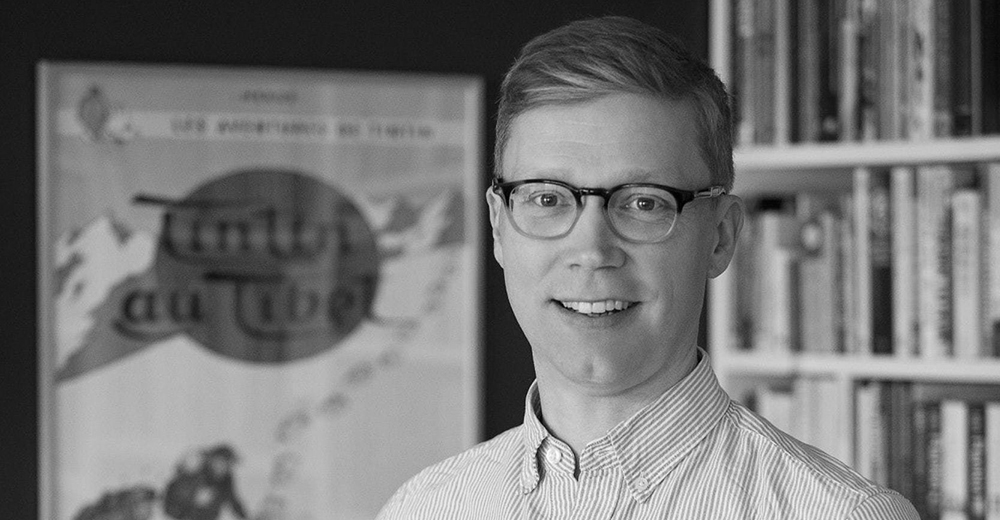
Gísli Marteinn Baldursson
RÚV TV presenter & former Reykjavik City Council member, IcelandTelevision has the power to unite a nation and indeed the world around events happening anywhere. Some countries, Iceland among them, still has televised events that draws over 90% of the population to the screen at the same time. No other home appliance, media, app or computer game has that kind of power. I got my first real job in television 20 years ago. After that I worked in politics for a decade, but have recently gone back to doing TV. It feels like home. Even though politics can be quite satisfying when you see things getting done, the long time influence of television on the ideas that shape the world are clearer to me now than ever before. Turn it on.
(For egta, ACT, EBU)
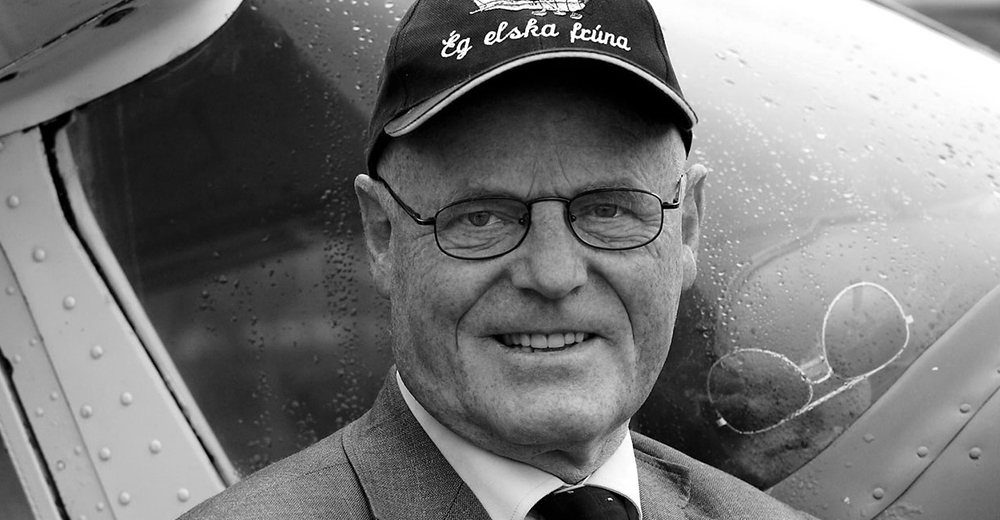
Ómar Ragnarsson
RUV TV reporter & entertainer, IcelandThe late Walter Cronkite said to me in an interview when I asked him if the media is becoming too powerful: ‘To make democracy function, the media can never be too powerful. The media must have enough power to distribute facts, views and opinions so the people can use their power.’ Television does this better than anything else and best when broadcasting live.One real personal experience of the possibilities was a live transmission from my airplane heading towards the erupting volcano Eyjafjallajökull in 2010. A foreign reporter was sitting beside me, and we and the television spectators all over the world were looking from the backseat at us and through the windshield at the volcano when huge invisible shock waves begin to slam the airplane so it could clearly be heard. The reporter began to shout in terror, because he had never witnessed anything like this, and neither had anybody else in the audience. I remained calm and tried to comfort him by telling him that I have heard, seen and felt similar shock waves in one of the 23 eruptions I‘ve reported over the years. This is an example of television at its brilliant best, because “life is live.” A few days later, after many attempts, I manage to film for the first and only time in history the shock waves between twilight and darkness when they can be seen. This is one of the reasons that I am a pilot and also a reporter. I can be in the air and on the air at the same time.
(For egta, ACT, EBU)
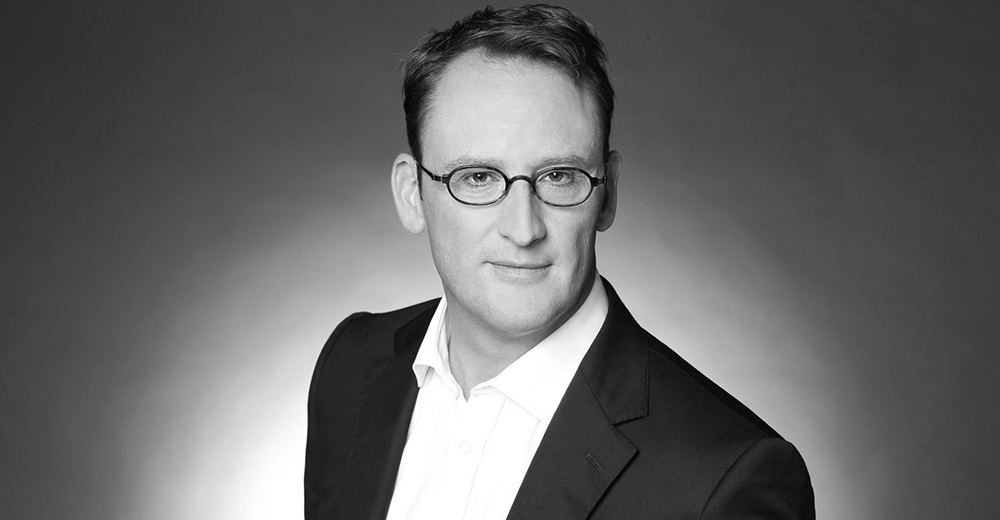
Tobias Schmid
European Affairs Commissioner for Media Authorities, GermanyFrom the point of view of VPRT, the question of television’s signification today is of course easy to answer: TV is an indispensable driver for the creative sector and therefore also an essential part of the most beautiful industry on earth.
[„Aus Sicht des VPRT ist die Frage, welche Bedeutung Fernsehen hat, denkbar einfach zu beantworten: Fernsehen ist ein unverzichtbarer Motor für die Kreativwirtschaft und damit wesentlicher Bestandteil der schönsten Branche der Welt.”](For egta, ACT, EBU)

Morgan O’Sullivan
TV producer, IrelandIn recent years, as a producer, it has been an honour and a privilege to be a part of this new wave of TV drama content in what could be described as another “golden age of television”.
(For egta, ACT, EBU)

Ivy Quianoo
Afro-German singer, winner of the 1st edition of “The Voice”, GermanyTelevision is probably the medium with the greatest reach today, and it has clearly given my career a great push and therefore changed my life forever. The offer is varied and of great quality, but most important to me are good shows and investigative reportages, which I really enjoy watching.
[“Fernsehen ist heute wohl das Medium mit der größten Reichweite überhaupt, und für meine Karriere hat es so Anschubarbeit geleistet und definitiv damit auch mein Leben verändert.Das Angebot ist sehr vielfältig, auch qualitativ, aber gut gemachte Sendungen und gut recherchierte Reportagen halte ich für wichtig und schaue mir diese auch gern an.”](For egta, ACT, EBU)

Rebecca Mir
Finalist of “Germany’s next Topmodel” 2011, German TV ModeratorWhen I was a Child, I was dreaming about this colourful World, without skies and limits: Television. Now I am a part of it and it feels like being ‘Alice in Wonderland’. Diving into another world, escaping from the daily routine.
(For egta, ACT, EBU)

Mainardo De Nardis
Executive Vice-Chairman at Omnicom Media Group, USTV is the quintessential emotional medium – no other medium can compare to TV in terms of building an emotional connection between brand and consumer. While other channels may create a more personal dialogue, more depth of information or more hands-on experience it is the ability of TV to form deep, long-held emotional brand associations that is its most unique and unassailable benefit.
(For egta, ACT, EBU)
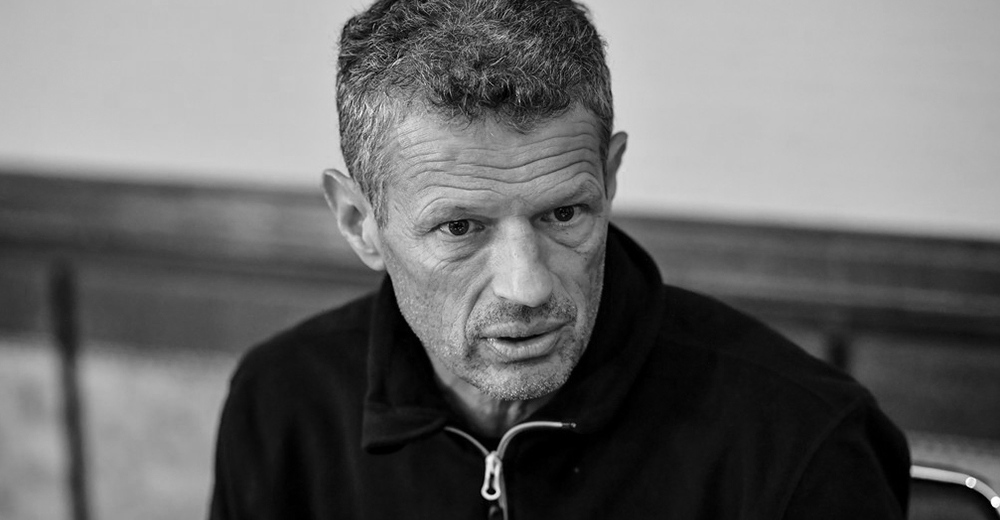
Jacques Borlée
Former coach & athlete, European Athletics Coach of the Year (2011), BelgiumIf we humans want to feel good, we must indulge in intense positive emotions. Television is a force among many others for scattering light, one that allows us to conjure up dreams from the living room. Through televised sports, we can spend buzzing moments at home and relate to athletes’ achievements – a source of both joy and pride.
[« L’homme pour se sentir bien doit vivre des émotions positives intenses. La télévision est un des vecteurs importants qui transportent la lumière et donne le rêve à domicile. Par l’intermédiaire du sport, les hommes peuvent chez eux vivre des vibrations intenses et s’approprier le succès source de joie, de fierté. »](For egta, ACT, EBU)
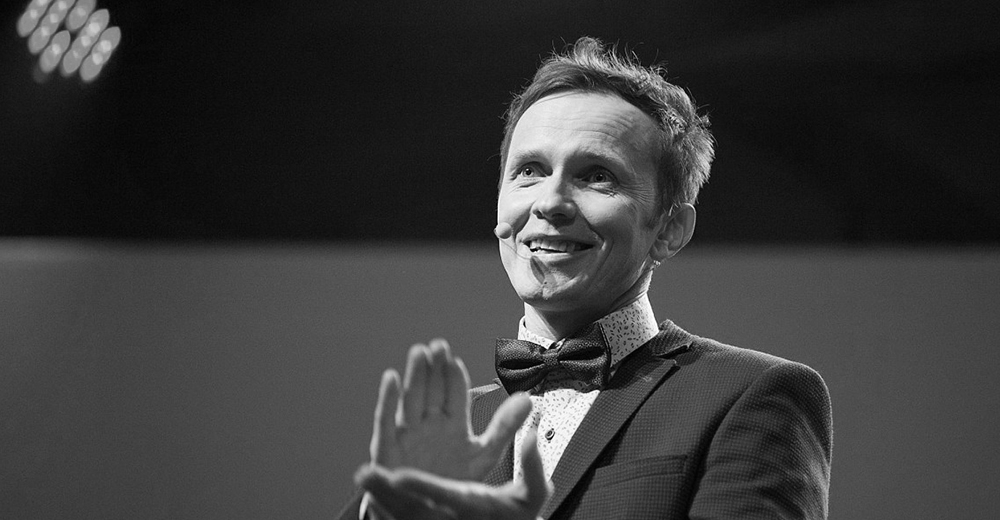
Renārs Kaupers
Brainstorm band singer, LatviaWe didn’t even know before we entered the national contest what Eurovision was. But when we learned it meant playing for some 300 million people, we knew it was a good idea.”
(For egta, ACT, EBU)

Sir Martin Sorrell
S4 Capital Executive Chairman & former CEO of WPP (world’s largest advertising company), UKTV is the most generous medium. It even seems to benefit its competitors.
(For egta, ACT, EBU)
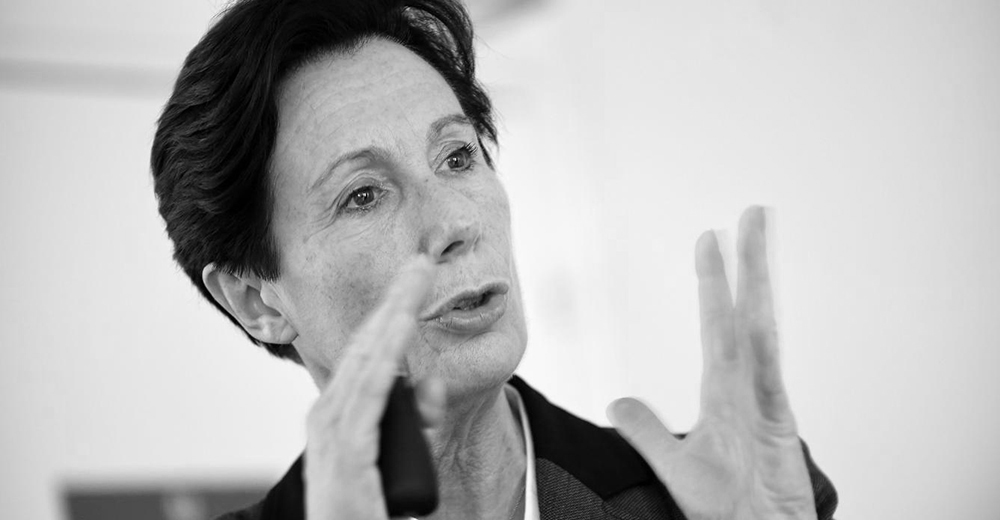
Laurence Tiennot-Herment
President of AFM-TELETHON, France25 years ago, scientists, doctors and politicians in France tended to overlook the harsh reality of rare diseases. But thanks to France Télévisions’s 1987 fundraising telethon and the ensuing wave of citizen involvement, families affected by these diseases could let their voices be heard and spoke up about their lives and hopes towards new research in this field. This goes to show how a vast movement of TV professionals, scientists, doctors, patients and citizens alike allowed us to shake up the world of Biomedicine for the benefit of all.
[« Il y a 25 ans les maladies rares étaient en France les grandes oubliées de la recherche, de la médecine et des pouvoirs publics. Grâce au marathon télévisuel lancé par France Télévisions en 1987 et grâce à la mobilisation populaire qui l’accompagne, les familles frappées par ces maladies ont pu sortir du silence et témoigner de leur vie quotidienne et de leurs espoirs en la recherche. Un vaste mouvement alliant professionnels de la télévision, chercheurs, médecins, malades et grand public nous a ainsi permis de lancer une véritable révolution biomédicale au bénéfice du plus grand nombre. »](For egta, ACT, EBU)
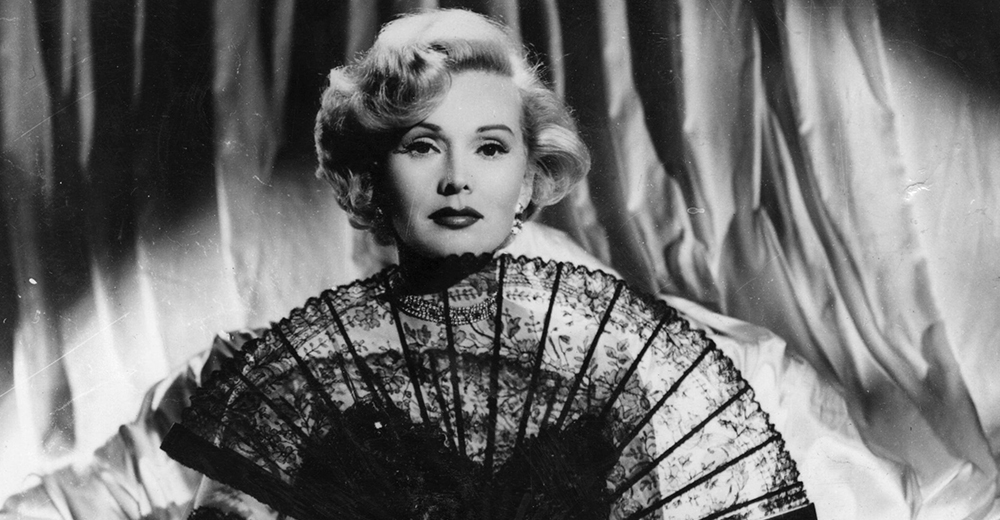
ZsaZsa Gabor
Actress, HungaryIn what ways has TV changed my life? It has been a joy to share with everyone on the TV screen all that I was scared to tell any of my eight husbands. And I even got a lot of money for it.”
[„Hogy miben változtatta meg a TV az életemet? Minden olyan dolgot, amit addig nem mertem nyolc közöl semelyik férjemnek sem elmondani, boldogan megoszthattam mindenkivel a képernyőn és még sok pénzt is fizettek érte.”](For egta, ACT, EBU)
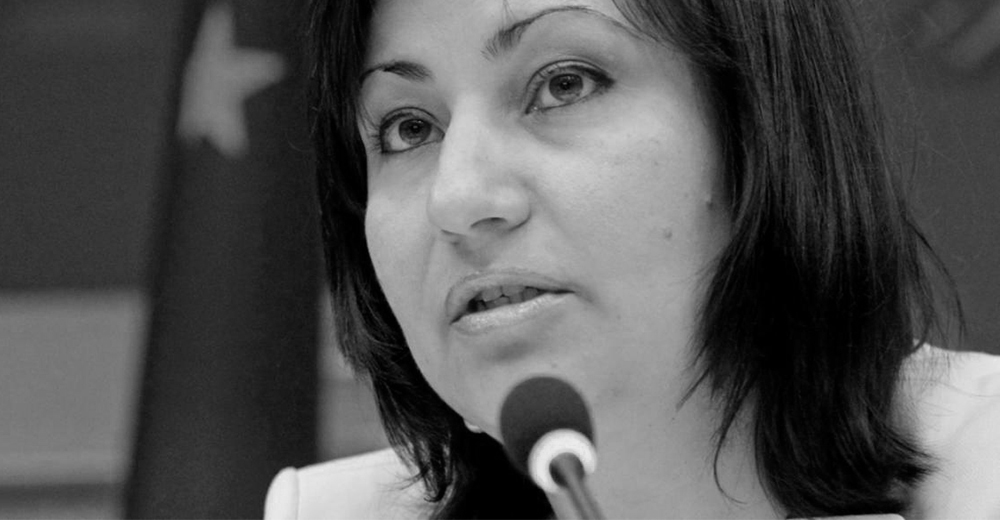
Iliana Ivanova
Former Member of the European Court of AuditorsEurope is at a crossroads and we must decide now in which direction we want to take it: towards more or less integration. In my view, there is only one direction: a strong, united Europe. This means we must all respect the core European values, i.e. the free movement of persons and workers, and the free flow and exchange of information. Television in particular has a responsibility to bring forth solidarity across Europe, and it is my belief that it can, will and does so on all accounts.
(For egta, ACT, EBU)

Heinz K. Becker
Member of the European Parliament, AustriaTelevision has brought the political life into everyone’s living room and made politics a fixed part of everyday life, therefore enhancing and spreading democracy in ways no other medium before could even come close to. The internet and new media have taken over some of these important responsibilities and pushed the dissemination of democracy to the next level. However, I strongly believe that television and online media are not only complementary, but will eventually merge. Already television has transformed the world forever, but I think that its potentials are still far from exhausted.
(For egta, ACT, EBU)

Piotr Borys
Former Member of the European Parliament & nc+ Channel Relations Manager, PolandI personally believe that television is a very influential form of media because it is a standard gateway of knowledge and information for the masses. It allows for the preservation of cultural diversity both at a local and a global level and provides for the introduction of other customs and languages. The best example that television removes boundaries is the fact that when I was on a delegation to Turkmenistan, people in the market from Ashkhabad recognised my language because their favourite TV channel was a Polish music channel. Television is a great source, not only of entertainment but also of education. I strongly believe that it is a great tool to promote standards of behaviour and democracy, which is very important from the point of view of the European Union activities.
(For egta, ACT, EBU)

Tarja Turtia
Programme Specialist, Division for Freedom of Expression and Media Development, UNESCOFreedom of expression is a comprehensive human right since it includes individuals’ possibility to actively speak out and seek and receive information. Public Service Broadcasting is particularly relevant to UNESCO’s core mission because it can serve as a cornerstone of democracy if it is guaranteed with pluralism, programming diversity, editorial independence and appropriate funding as well as accountability and transparency towards the public. That is why, between 2003-2010, UNESCO supported the development of a regional news exchange project in South East Europe. Women trafficking in the region, youth rights in EU and non-EU Balkan countries, industrial pollution in Croatia, sewage spillage in Serbia and environmental education were among the many issues public broadcasters covered as a group in their news and current affairs stories. Today, the news exchange project which has formed a stable self-sustainable network called ERNO, produces and exchanges more than 1,200 news items per year. Needless to say, television plays a vital role in raising local awareness of important issues relevant to this region of the world. Not only does television alert to the region’s most important issues, it also fosters cooperation and mutual understanding between South East European media, which provides, in turn, a framework for coordinated action towards tackling common political, economic and environmental crises.
(For egta, ACT, EBU)
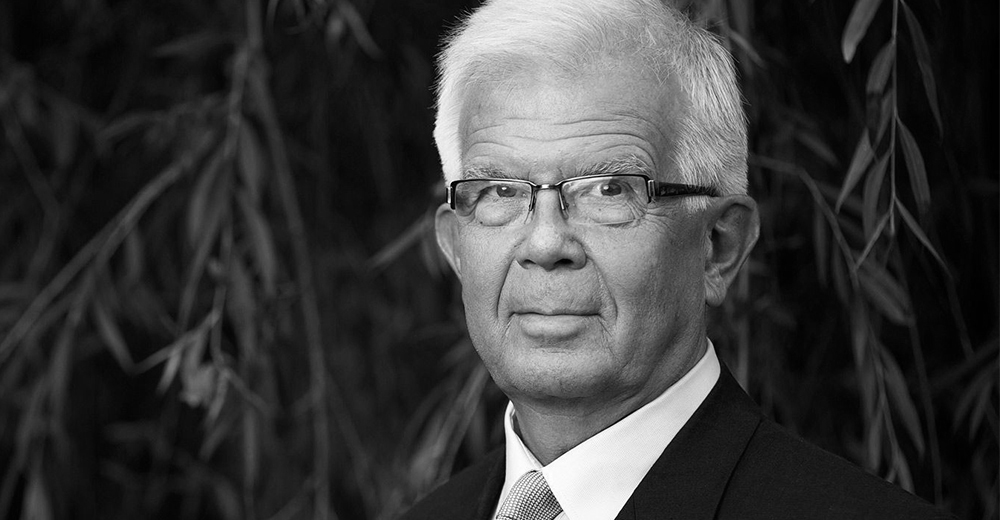
Alf Svensson
Former Member of the European Parliament, SwedenWithout TV – politics would stop. New fresh impulses, ideas and political parties would not have a chance without TV. Before, crowds would gather in big parks to listen: today these are replaced by TVs. TV has finally made the world round for real!
(For egta, ACT, EBU)

Rodi Kratsa-Tsagaropoulou
Former Vice-President of the European Parliament, GreeceTelevision, as one of today’s most powerful communications media, has a key role to play in raising citizens’ awareness about significant national and international concerns and challenges. TV is a real window on the changing world, on other civilisations. Television needs to take advantage of its strength in a fair, pluralistic way, while respecting human rights and universal values. In modern times, given the consequences of the serious economic crisis as well as the need for stability and peace in many regions of the world, its role becomes even more crucial.
(For egta, ACT, EBU)

Richard Curtis
Screenwriter, actor & film director, “Comic Relief” co-founder, UKIt’s impossible to overvalue the importance of television – both in its serious and less serious functions. It’s one of our most important ways of finding out the truth – and also of changing the world, and finding out what in the world needs changing. It’s also an immense bringer of joy – I learnt how to laugh through television, and now my children and I, every day of every week, share the joy and stupidity of TV shows – they actually make us HAPPY.
(For egta, ACT, EBU)

Alejo Vidal-Quadras
Former Vice-President of the European Parliament, SpainAs a frequent participant in Spanish politics TV shows, I believe that television offers a unique forum for the communication of new ideas, discussion of current events and the fostering of healthy debate. Many a politician embarked upon his or her career due in part to what they had seen on television. TV prevents us from living in isolation with only our own opinions and, used wisely, can provide a window onto the world in which we live. In particular, news programmes enable us to reach an unprecedented level of awareness about the lives of those in other parts of the world.
(For egta, ACT, EBU)

Taïg Khris
World Champion rollerblader, TV presenter & “Onoff Telecom” founderUntil quite recently, sliding sports were not so well known by people at large, while it represented a passion for many young people. I believe that thanks to television, we were able to bring rollerblading and other ramp sports into people’s living rooms, by broadcasting spectacular shows and promoting the values of sport: healthy lifestyle, perseverance, team spirit, fair play, overcoming your own limitations, a sense of responsibility, striving to achieve goals for yourself and the community. Beating records in live shows and participating or hosting sports programmes was the best way for me to share my passion and bring the spirit of rollerblading to millions of youngsters out there, looking for inspiration and role models. Without the power of television, I couldn’t have jumped from the Eifel Tower in rollerblades, reaching live more than 1 million people on what is usually a French niche-channel (W9), but also aired live on 167 other channels across the world. Shows like Extreme Adventure, of which I am the host now, is a great example of how television can widen your horizon by mixing culture and adrenaline.
(For egta, ACT, EBU)
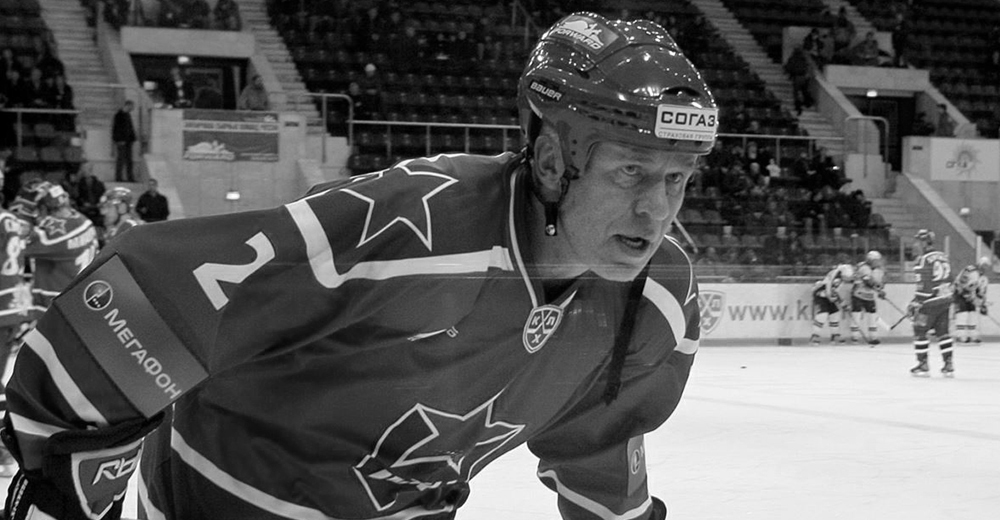
Vyacheslav Fetisov
Ice Hockey Olympic champion & politician, RussiaMy entire life as a professional athlete and public figure is closely connected to television. I remember how the power of TV drove the evolution of the Olympic Games from a relatively large-scale event into the biggest spectacle for billions of viewers all over the planet, into a huge business and into big-time politics. As a player in the NHL, I felt the influence of television, its amazing power to create stars and destroy them just the same. Working as a minister in Russia on a sports development program, I was the first to call for the creation of a public sports television channel. I am sure that the future of our children depends to a great extent on realising the educational potential of television.
(For egta, ACT, EBU)

Sir Philip Craven
Former President of the International Paralympic Committee & Member of the Board of Directors of Toyota, UKHow TV coverage of Paralympians is contributing to a more inclusive society? Paralympic athletes have the ability to change the world. Their amazing performances and incredible stories teach the values of acceptance and appreciation for people with an impairment. They can change how people think about think about themselves and how they think about others contributing towards a more inclusive and equitable society. Such transformation is only possible however if people are able to see the athletes’ performances. This has not always been the case. The first Paralympic Games took place in Rome, Italy in 1960, however it was not until the 1992 Barcelona Games that they started to receive widespread TV coverage. Since 1992, and coinciding with increasing amounts of TV coverage, the Paralympics have developed an excellent track record for changing attitudes and perceptions of people with an impairment. The recent London 2012 Games attracted a record 2.72 million spectators all of whom were inspired by what they saw in the venues. However, far more people were left inspired and touched by what they saw on television. London 2012 was broadcast to over 115 different countries and territories reaching a cumulated TV audience of 3.8 billion people. They enjoyed what they saw. The Paralympics Games are unique in that they can put spectators and TV viewers through every single emotion, including ones we never thought we had. Post Games research conducted in Great Britain has revealed that 81% of people believe London 2012 had a positive impact on the way they view a person with an impairment. A further 65% said the Games were a breakthrough to viewing people with an impairment – up from 40% in June 2010. Not all the people surveyed were lucky enough to get a ticket to see the London Games. Most will have watched on TV. Thanks to TV coverage of Paralympic Games and other major international events, the Paralympic Movement is helping to build a bridge which links sport with social awareness. Long may it continue!
(For egta, ACT, EBU)

Justine Henin
Olympic champion & retired professional tennis player, BelgiumWhen I was young I dreamed of becoming a champion … I watched a great deal of sports on television. It has truly been a driving force for me. Thanks to the images I saw on TV, I connected with my idols in my living room … In turn, I have been able to convey the values of sport to young people: courage, perseverance, determination … I am very pleased to know that – thanks to television – I was able to engage the emotions of people, unite an entire nation to behind me and motivate every generation.”
[« Petite, j’avais un rêve, celui de devenir une championne… Je regardais énormément le sport à la télévision. Ça a véritablement été un moteur pour moi. Je vibrais avec mes idoles grâce à toutes ces images… A mon tour, j’ai pu transmettre aux jeunes les valeurs du sport : courage, persévérance, volonté,… Grâce à la télévision, je suis très heureuse d’avoir pu transmettre des émotions aux gens, d’avoir réuni tout un peuple derrière moi et d’avoir motivé toute les générations. »](For egta, ACT, EBU)

Felix Baumgartner
Skydiver, AustriaPeople around me tell me that the live broadcast (both on TV and on the Internet) of my mission to the edge of space and of my record-breaking freefall jump from 23 miles above the earth offered a unique and magic moment to millions of people around the world … They say that witnessing live my breaking the speed of sound, protected only by a space suit made it possible for so many people to start believing that it is possible to push the limits of what one once thought was impossible … That those images allowed children and adults alike to share my dream or to simply start dreaming for themselves … and that they arouse for thousands an interest in science, physics, speed, extreme sports, etc. This makes me feel very fortunate …
(For egta, ACT, EBU)
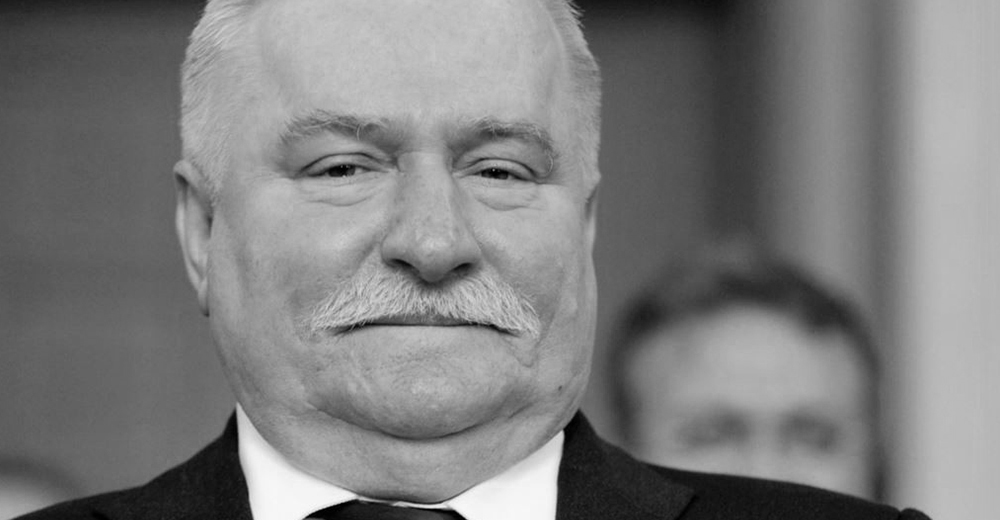
Lech Wałęsa
Former President of Poland, a Noble Peace Prize winner and co-founder of SolidarityOne of the cornerstones of democracy is unrestricted access to information. The pluralism of TV channels is one of its indispensible and essential elements.
[“Jednym z najważniejszych elementów demokracji jest swobodny dostęp do informacji. Pluralizm kanałów telewizyjnych jest jego niezbędnym i podstawowym elementem.”]“It all came from there”, Lech Wałęsa, said, pointing to a TV when a reporter asked him why communism fell.
(For egta, ACT, EBU)

Usain Bolt
Sprinter, Olympic medalist and World Record Holder, JamaicaWhen I was younger I spent a lot of time playing sport and trying to copy the skills I saw famous sportsmen do on TV. In 2008 my performances in the Olympic Games in Beijing were broadcast to millions of people all over the world. I won three gold medals and broke three world records. At the 2012 Olympics I defended my titles and set another world record. Nowadays no matter where I go in the world people know me from watching me run on TV. I hope that my hard work and determination will inspire and mobilise young audiences worldwide to follow their dreams or to simply always aim higher to achieve their goals.
(For egta, ACT, EBU)
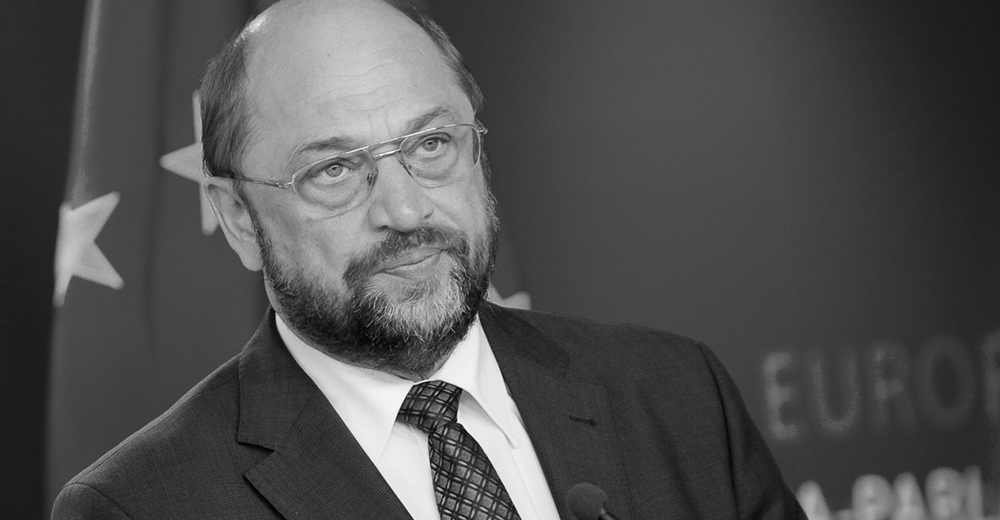
Martin Schulz
Former President of the European Parliament & former leader of Germany's Social Democrats, GermanyFreedom of expression and information is one of the most basic rights of the EU, as enshrined in the Charter of Fundamental Rights. It is a prerequisite to preserving our political liberties. That is why media freedom is taken consistently on board in our bilateral relations and agreements, particularly with developing countries. As it happens, the EU is paying close attention to the consolidation of media freedom in the post-Arab Spring countries, where we are intransigent in upholding and advocating the highest standards of television service. Evidently, if we have managed to safeguard this freedom, it is because journalists have risked their lives in providing us with uncensored facts and images. For the sake of European integration, we must embrace television, and other forms of media, in order to build our shared future where press freedom can continue to flourish.
(For egta, ACT, EBU)

Neelie Kroes
Former Vice-President of the European Commission, NetherlandsWe now live in an amazing digital world, and television is firmly part of that brave new world. Television is still the way to reach the most citizens and talk to them – and with them – about how the EU affects their lives. It’s still the way to bring people together – to laugh, to debate, to learn. In a world that takes a faster and faster pace, it is nice to know you can slow down once in a while with a good TV programme.
(For egta, ACT, EBU)

Viviane Reding
Member of the European Parliament, former Vice President of the EU Commission, LuxemburgAt the end of the day, all politics, whether at EU or national level, exist for the people: for our 500 million citizens living in the European Union. We need strong and independent media to raise awareness and report about successes and challenges facing the European Union. Television in particular, with its emotional power that allows viewers to explore, to empathise, to engage, is one of the cornerstones that make our democracies work. Images speak louder than words. I will continue counting on television to inform our citizens and unite them across borders. This is what Europe is about.
(For egta, ACT, EBU)
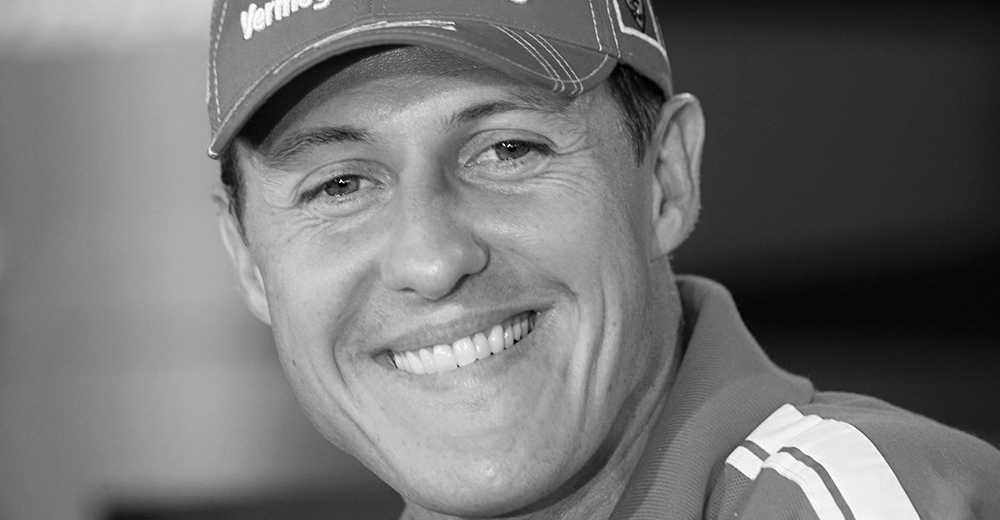
Michael Schumacher
Former Formula 1 racing driver, GermanyIt’s the media – television included, evidently – that bring Formula One to the living rooms of fans, followers and motorsport enthusiasts alike, making us F1 pilots widely known in the process.
[„Die Medien an sich, natürlich auch das Fernsehen eingeschlossen, sind diejenigen, die uns in die Wohnzimmer unserer Interessierten, Fans und Motorsportbegeisterten bringen und uns damit natürlich bekannt machen.”](For egta, ACT, EBU)

Birgit Schuurman
Singer & actress, NetherlandsHello, I’m Birgit Schuurman and I think television is the perfect medium to make us aware that there is more than just our own life.
(For egta, ACT, EBU)

Steven Gätjen
TV presenter, GermanyTV is fascinating – at its best moments it is the campfire of our generation. And I’m allowed to be the storyteller by its side. That is fantastic.
(For egta, ACT, EBU)
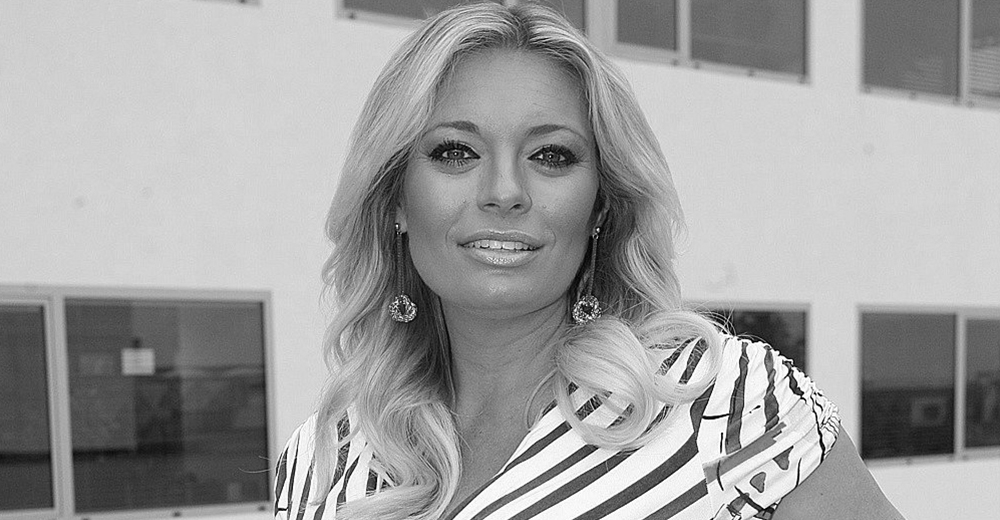
Lucie Borhyová
NOVA TV News anchor, Czech RepublicTelevision in my life has played a pivotal role from early childhood – it is a normal part of everyone’s life. Over time you start to perceive television differently – my perception developed when I started to study a television-related field, and again after I started working in television and had the chance to witness it from behind the scenes. It is exciting to be at the source of information, to participate in major projects and to communicate that information to people, especially through live broadcasting. It is amazing to see how the news is made and how television works from the inside.
(For egta, ACT, EBU)
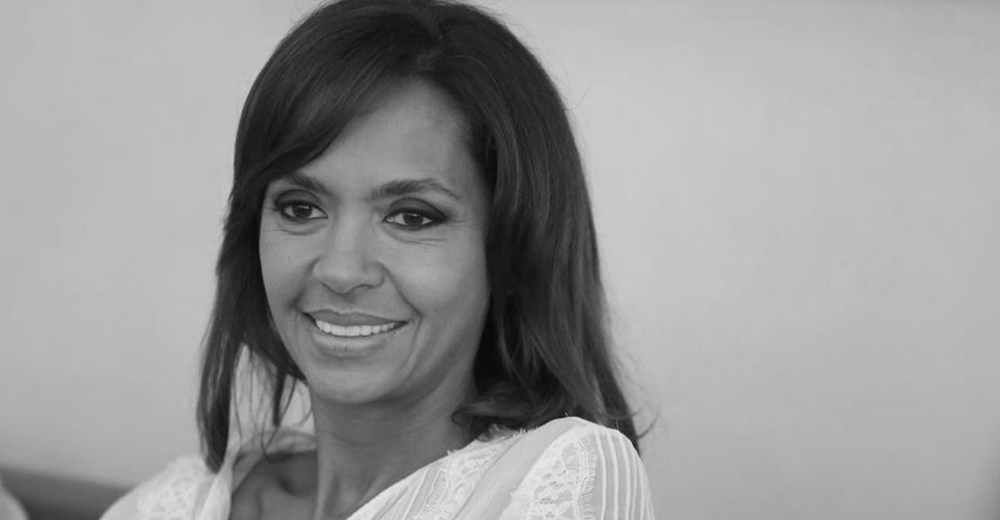
Karine Le Marchand
M6 TV presenter, FranceMy motto: ‘Respect the viewers who care enough to watch your shows’. TV is both an angel and a demon, it can lie or speak the truth. I am committed to upholding moral values in my professional endeavours.
[« Respecter ceux qui nous regardent” est ma devise. La télévision est un ange et un démon, elle peut mentir ou parler vrai. J’ai à cœur de mettre de l’éthique dans ce que j’entreprends professionnellement. »](For egta, ACT, EBU)

Antonia Erős
RTL TV News host, HungaryI like television and even prefer producing television programmes to watching the telly. The fact that millions expect us to announce the news items evening by evening is one of the biggest things in our profession, and this huge publicity has made it possible for me to talk about my favourite subject: diabetes.
(For egta, ACT, EBU)

Michel De Maegd
RTL TV News host & journalist, BelgiumTelevision has been, for me, a window onto the wider world. As a teenager I was fascinated by TV presenter Philippe de Dieuleveult. He was the host of French game show series La Chasse Aux Trésors (The Treasure Hunt). In the series, he would travel the world and show live footage of his unlikely encounters with distant populations. This made me want to travel. Today, television is still that gateway to the world, and it makes those who are unable to travel become aware – albeit not wholly – of the world surrounding us.
[« La télévision a été pour moi une fenêtre qui s’ouvrait sur le monde. Quand j’étais adolescent, j’étais fasciné par l’animateur français Philippe de Dieuleveult qui dans « la chasse aux trésors » parcourait le monde et nous offrait, en direct, des rencontres improbables avec les peuples de pays lointains. Cela m’a donné l’envie de voyager. Aujourd’hui, la télévision reste cette fenêtre ouverte sur le monde et permet à ceux qui ne peuvent voyager d’avoir conscience de la réalité, certes partielle, du monde qui nous entoure. »](For egta, ACT, EBU)

Cristina Cordula
M6 TV host & image consultant, FranceI use television as a modern mirror that allows people to better understand and, as such, boost their self-image. This way, they can play up their best assets. Television is a way for me to convey my optimism to people and bring them hope and joy.
[« J’utilise la télévision comme un miroir moderne qui permet aux gens de mieux comprendre leur image afin de l’améliorer, et ainsi mettre en valeur le meilleur d’eux-mêmes .C’est pour moi une façon de leur communiquer mon optimisme et leur donner de l’espoir et de la joie. »](For egta, ACT, EBU)

Sarah Valentina Winkhaus
Sky TV hostess & Sports 1 moderator, GermanyWhen I did my first TV piece I knew: This is it! And until today, nothing has changed. TV enables us to quench our thirst for knowledge – in a colourful and entertaining way.
(For egta, ACT, EBU)
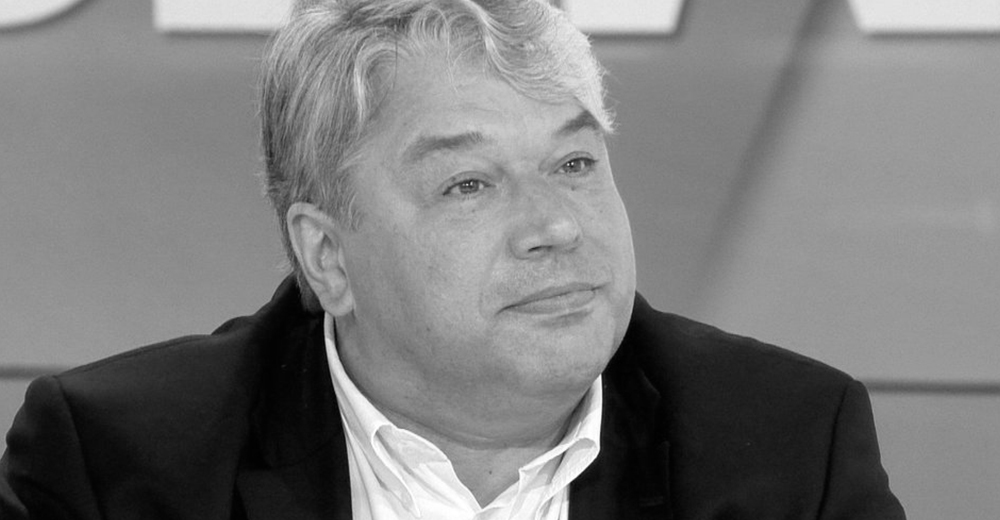
Christophe Giltay
RTL reporter, BelgiumAs a junior reporter, I would always say that I was not ‘making television’ but that I was a journalist who appeared ‘on television’ and that TV was interchangeable with radio or print media. But that was a misjudgement on my part, because television is not radio (which I love), television is not print media, and this is perhaps how it changed my life. I was born in the early 60s, which makes me a TV native, as opposed to the digital natives of today. Whereas for young people today everything involves the internet, television was the quintessential medium of my generation, what it was all about. I always knew this but only gradually admitted it: its impact, the power of images, how it magnifies tenfold a message compared with other media … and then, one day, the baker recognises you. Some will say that they don’t care – that’s a lot of swank. It makes you happy, you feel as proud as punch! So yes, television has changed my life by making it more exciting, and I am grateful for that.
[« Quand j’étais débutant j’aimais à dire que je ne faisais pas « de télévision », mais que j’étais journaliste « à la télévision », et que cela aurait été la même chose à la radio ou dans un journal. Mais c’était une erreur, la télévision ce n’est ni la radio (que j’adore), ni la presse écrite, et c’est peut-être en ça qu’elle a changé ma vie. Né au début des années 60, je suis un « TV native », comme on parle aujourd’hui de « Digital native ». Si pour un jeune d’aujourd’hui tout passe par le net, pour ceux de ma génération la télévision était le média de référence, l’aboutissement. Je le savais mais je ne l’ai admis que progressivement. La puissance, la force de l’image, le message décuplé par rapport aux autres médias… et puis bien sûr, un jour, la boulangère qui vous reconnaît. Certains vous diront qu’ils s’en moquent… C’est de l’esbroufe, ça fait plaisir, on se sent fier comme Artaban ! Alors oui, la télévision a changé ma vie en la rendant plus passionnante, et je lui en suis reconnaissant. »](For egta, ACT, EBU)
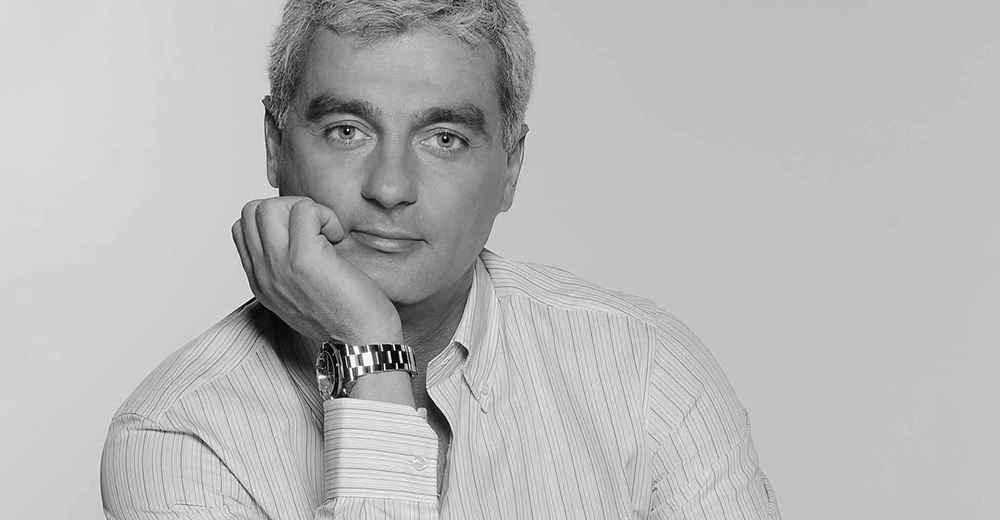
István Szellő
RTL TV host, HungaryIf you are not aware of the news, you don’t know your place within the world. And if you don’t know what’s going on around you, you can’t help others.
(For egta, ACT, EBU)
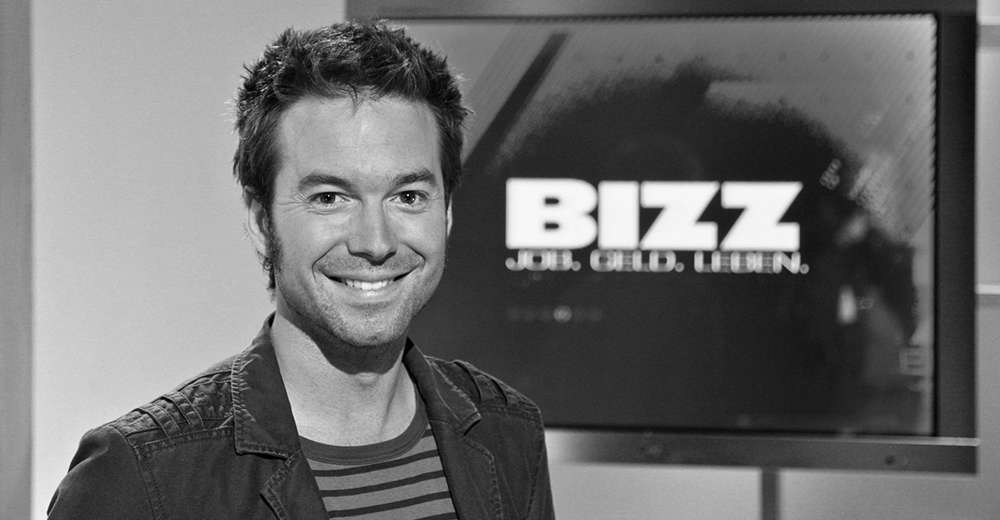
Sebastian Höffner
Sky TV host, GermanyWhen I was a child I loved TV series like The Fall Guy and Magnum and of course I wanted to become a private investigator, too. Later when I started watching the major Saturday night shows, I realised that I wanted to become a host – and that’s my job today. I would say that TV influenced me in a positive and sustainable way.
(For egta, ACT, EBU)

Peter Kloeppel
RTL Television former Chief Editor & anchorman, GermanyNews is my life, TV is my medium – and I love it!
(For egta, ACT, EBU)
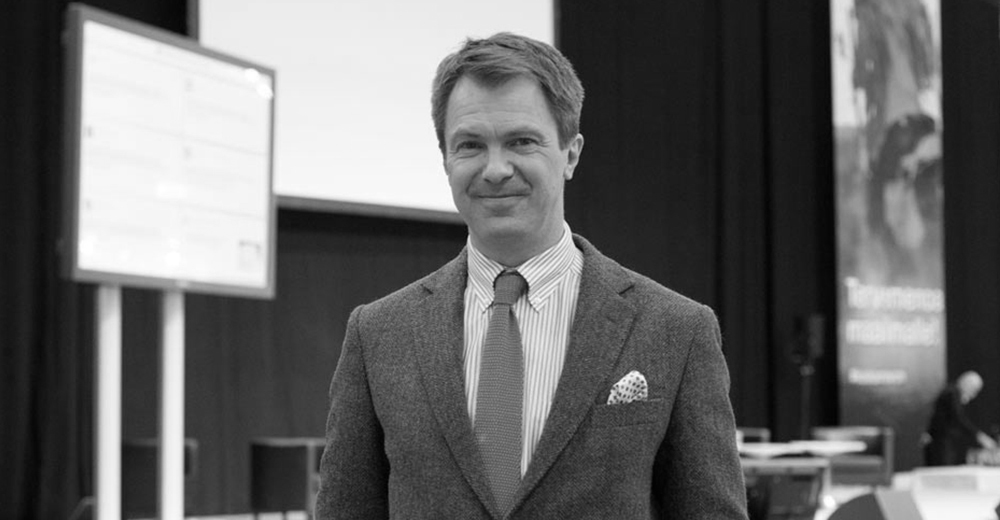
Peter Nyman
MTV3 news anchor, FinlandIn the beginning man walked on the moon, as author Jonas Gardell put it. The first great memories of my generation were born on the television screen. The more modern computer I understand, or attempt to understand, with my mind, but I will always primarily understand television with my heart. Television is the altar of my generation.
(For egta, ACT, EBU)

Günther Jauch
RTL TV host ‘Who Wants To Be A Millionaire?’, GermanyWho Wants To Be A Millionaire? lives by the diversity of its contestants, so television is constantly new and surprising for me.
(For egta, ACT, EBU)

Claire Chazal
TV journalist & TF1 TV Director of News, FranceNewscasts have played a significant role in recent decades. On the political level, they have become both an indispensable forum and an active place of fruitful discussions for all electoral events. Not as a means of manipulating public opinion but, in my view, as an information tool, governed by strict rules of impartiality. At the international level, certain images of conflict have winged their way around the world, thus raising awareness and at times compelling leaders to take action. This was the case, for instance, for the war in former Yugoslavia and the subsequent intervention of NATO. Through its decisive power, television has become, whether one likes it or not, the premier source of information, and it is this very power that compels journalists to show uncompromising respect for the journalistic code of ethics.
[« Les Journaux Télévisés ont joué un rôle considérable au cours des dernières décennies. Sur le plan politique, ils sont devenus une tribune incontournable et un lieu de débats fructueux pour tous les rendez-vous électoraux. Non pas un moyen de manipulation de l’opinion, mais, à mon sens, un instrument d’information, encadré par de strictes règles d’impartialité. Sur le plan international, certaines images de conflits, en faisant le tour du monde, ont provoqué une véritable prise de conscience, et ont même parfois forcé les dirigeants à l’action. Ce fut le cas par exemple pour la guerre dans l’ex-Yougoslavie et l’intervention de l’OTAN. Par sa puissance, la télévision est devenue, qu’on le veuille ou non, le 1er moyen d’information, et c’est cette puissance même qui impose à ses journalistes un respect intransigeant de la déontologie. »](For egta, ACT, EBU)
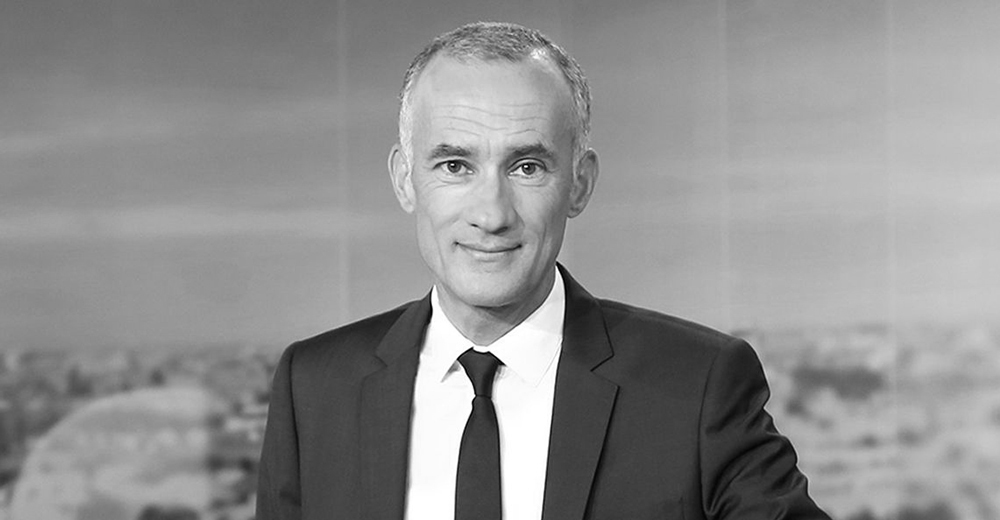
Gilles Bouleau
TF1 TV journalist and news anchor, FranceI am from a generation where it was common for homes not to be equipped with a television. It was a rare and magical object to my 11/12 year old self who watched Zorro and Tintin at the neighbours’ house once a week when I did not have class. Like many people, television was for me my university. I loved watching ‘The theatre tonight’ and ‘At the movies tonight’ presented by Armand Panigel. It was an incredible window on the world. From the suburbs, I could see the world through television with the programme ‘Letters from one end of the world’. It made me want to discover things and prepared me for my current job. When I have time, I like to watch live sports. I love being immersed in the big events, brought to a higher level through television.
[« Je suis d’une génération où il était courant que les foyers ne soient pas équipés en télévision. C’était un objet rare et magique et jusqu’à mes 11/12 ans, je regardais Zorro et Tintin chez la voisine une fois par semaine, lorsque je n’avais pas cours. Comme pour beaucoup de gens, la télévision a été ensuite pour moi mon université. J’aimais beaucoup regarder ‘Au théâtre ce soir’ et ‘Au cinéma ce soir’ présenté par Armand Panigel. C’était une fenêtre incroyable sur le monde. De ma banlieue, j’ai pu découvrir le monde grâce à la télévision avec ‘Lettres d’un bout du monde’. Elle m’a donné envie de découvrir des choses et m’a nourri pour le métier que je fais aujourd’hui. Quand j’ai le temps, j’aime regarder le sport en direct. J’aime être immergé dans les grands évènements, sanctuarisés grâce à la télévision. »](For egta, ACT, EBU)

Philippe Delusinne
RTL CEO & former ACT President, BelgiumIn the digital era, while we offer our professional content on multiple screens, linear TV remains the leading medium. Television is an instantaneous and effective communications medium, and this position comes with certain responsibilities to society. It is our task and our honour to report on important events across the world, to drive debates and to encourage people to reflect. Today is a day to realise that TV is there for us and that we fulfil many social roles through creating and distributing programmes that inform, engage and entertain millions of people across the world.
(For egta, ACT, EBU)

Radu Beligan
Actor, RomaniaI strongly believe that in the modern era, television is the new agora of society. Unfortunately, sometimes, it happens that some TV people ignore the social and moralizing role that have, in theory, enriched the institutions they serve, and transform this wonderful gift of modern technology in a tool for manipulation, or worse, in a weapon of ignorance. Fortunately, these false prophets of the small screen are a minority. Imposture is quickly noticed, in television as elsewhere. The real TV stations and the real people who work there are a force, a pillar of the society in which we live, one of the basic elements of the freedom humanity is aspiring at, for centuries, freedom that we will be able to achieve in the close or distant future.
(For egta, ACT, EBU)
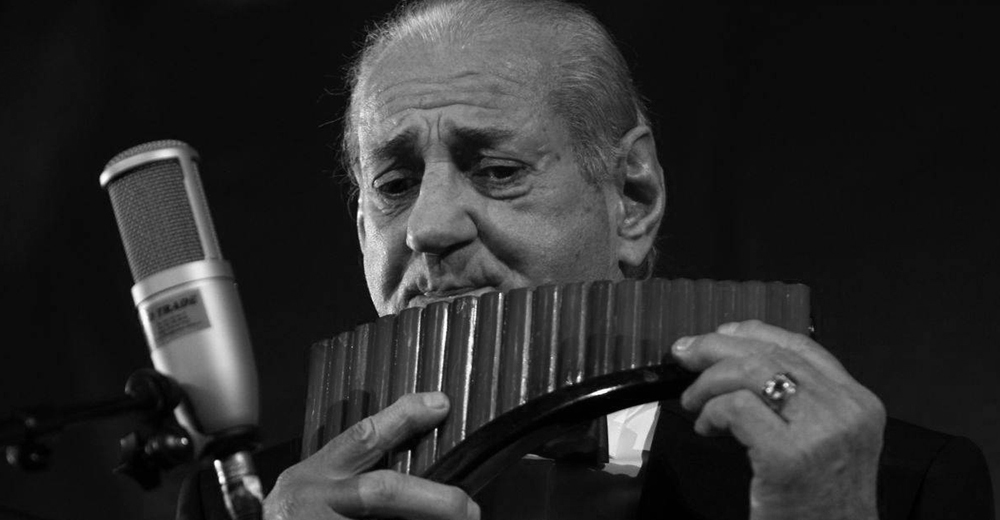
Gheorghe Zamfir
Artist, RomaniaTelevision is as powerful as nuclear force. It can destroy or save a nation.
(For egta, ACT, EBU)

António Victorino D`Almeida
Composer, musician & writer, PortugalIt is a fact that I owe my early fame as a musician – that is to say, as a classically-trained pianist and composer – to television. It is also by making television programmes that, several years onwards, I was able to draw the general public’s attention to classical music. With the success of my TV shows – some 150 to date – I’ve become a national voice of the Portuguese people, from high society to the lower orders and everyone in between. That said, and much to my sorrow, I do not believe that my shows, despite my continually promoting their educational merits, have contributed to greater availability of classical music, as the Portuguese have no access to this particular music. Even though 99% of the Portuguese refer to me as ‘Maestro’, they have no real knowledge of classical music, the reason being that it is deprived of public exposure. The onslaught of mainstream music, relentlessly forcing its way through every communication platform, means that wide distribution of classical music is virtually impossible. As such, it is my belief that 99% of the people who cross me in the street or otherwise actually think I am an archaeologist, as they are oblivious to the very existence of classical music.
(For egta, ACT, EBU)

Giannis Loukakos
“MasterChef” Judge, GreeceAnyone can cook if they put their mind to it, but how many can develop their culinary skills without spending much, discover new cooking techniques as well as recipes and learn about diet habits from around the world? Nowadays, it seems that everybody can do that through television. Since cooking shows have been integrated by TV stations to their programmes, people seem more and more interested in learning how to improve their nutrition. As a chef, I feel very fortunate that I was given the opportunity to be part of all this and to share my knowledge, not only with young and talented cooks, but also with every television viewer who is interested in quality food.
(For egta, ACT, EBU)

Ram Kapoor
TV actor, IndiaTelevision always carried me: be it at my beginnings in small series and telefilms, or through my success in Kasamh Se and Bade Acche Lagte Hain. Thanks to TV, I saw an incredible dream come true: I could incarnate good and bad people, share my joys and pains with the audience, but also be part of this incredible medium that can educate and entertain at the same time! And with new TV platforms, the journey has only just started …
(For egta, ACT, EBU)
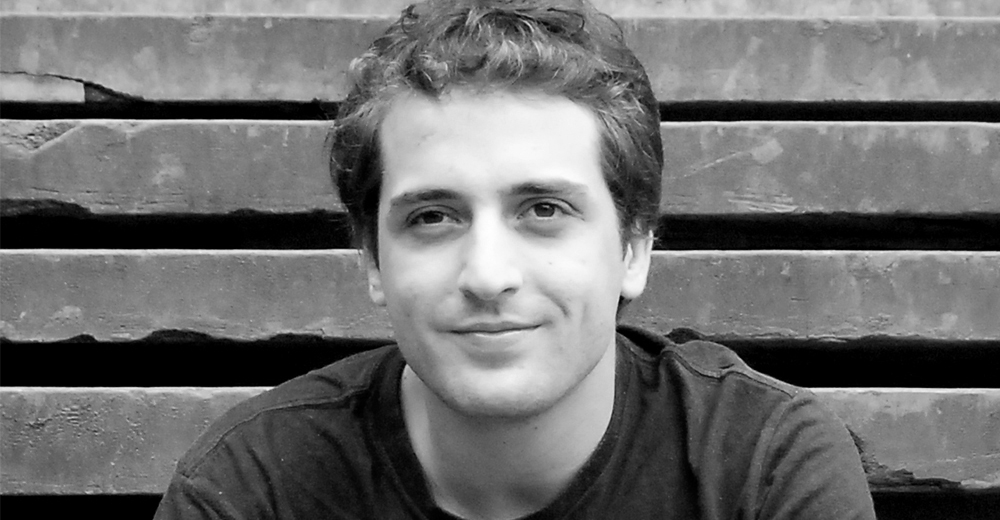
Gregorio Duvivier
Actor & screenwriter, BrazilTV is a fundamental building block of the Brazilian nation. It ensures the cultural and linguistic unity of a country in which significant parts of the population are largely, if not entirely, illiterate, that is to say only managing to write down their own names. Since neither literature nor film has been able to reach the nation en masse, television has taken up that responsibility. In Brazil, TV’s responsibility is thus huge, when it comes to producing programs. This essentially means TV has to gradually mould the identity of a country still going through its phase of self-discovery or, rather, self-invention. We must not think of television as a business but as a very powerful component in the building of a collective unconscious. This is perhaps why Globo, our largest TV network, is nicknamed ‘The Dream Factory’.
(For egta, ACT, EBU)
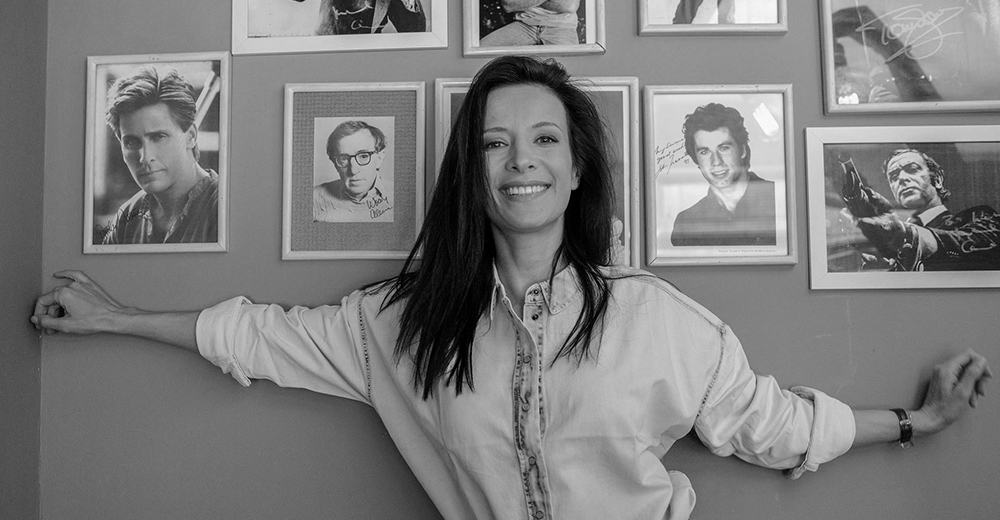
Yana Marinova
Actress, BulgariaOnce upon a time there was a girl who dreamed of being an actress, although at the time she was working as a restaurant manager. She found her way into the world of TV through soap operas, and it was then that people started to recognise her, after becoming a TV host, a reality star and staring in the hugely successful series The Glass House on bTV in Bulgaria. Today she gives autographs to people on the streets. That’s the story of my life, I love it and adore TV!
(For egta, ACT, EBU)
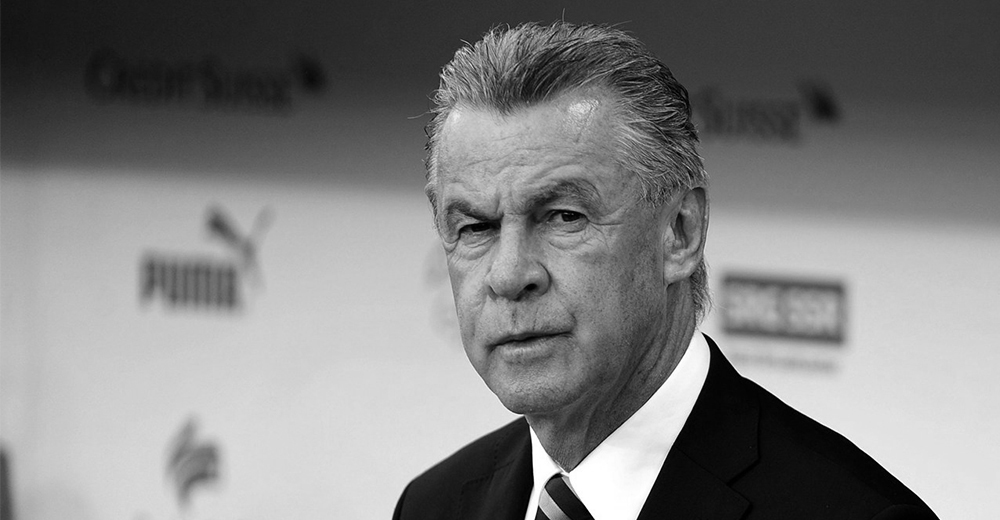
Ottmar Hitzfeld
Former national football team coach & Sky TV sports pundit, SwitzerlandI share the quote of the great former US-actress Bette Davis. She said once: TV is marvellous: Not only does it give you headaches – it also shows you advertising spots about the pills you have to take against them!
(For egta, ACT, EBU)

Priscilla Gneto
Judoka & Olympic champion, FranceWhen I was younger, I watched a great deal of television. This is actually how I truly discovered the Olympic Games. I felt genuine emotion when I watched the 2008 Beijing Olympics – it was as though I experienced the athletes’ own joys and sorrows. I looked up to them. They fuelled my appetite for success and my ambition to become an Olympian one day myself. It all paid off four years later, with the entire world watching me on their TV screens. I’m glad to have shared my medal and joy with them, and I hope this will push young people across the world to believe in their dreams and to pursue them, as I have.
[« Quand j’étais plus jeune, je regardais beaucoup la télévision, c’est d’ailleurs ainsi que j’ai vraiment découvert les Jeux Olympiques. C’etait comme réel j’avais l’impression de pouvoir ressentir les joies et les peines des athlètes lors des Jeux de pékin. Ils m’ont servi d’exemple, donné l’envie, la motivation de vouloir être un jour a leur place. 4 années plus tard, j’y suis je sais que le monde entier me regarde aussi derrière leur écran, et je suis ravie d’avoir partagé ma médaille, ma joie avec eux. Et j’espère que cela va pousser le jeune public du monde entier à croire en leur rêve et à les poursuivre comme j’ai pu le faire. »](For egta, ACT, EBU)

Anggun
French - Indonesian singer & songwriterTelevision has been able to embrace music and image together. Without television, music will not be what it is nowadays.
(For egta, ACT, EBU)

Jean-Michel Saive
Former professional table tennis player, BelgiumIn the late 1980s, table tennis was nowhere to be found on television. And then came the live broadcast of the match between La Villette and Levallois, a heart-stirring ping pong game followed by hundreds of thousands of TV viewers for more than four hours on end! It certainly appealed to the viewers but, importantly, also to a handful of policymakers, and from that point onward live broadcasts of table tennis became a fact of Belgian TV. Those four hours of table tennis that are engraved in the history of Belgian sport also stand for the sharing of one of my main driving forces, namely passion!
[« A la fin des années ’80, le tennis de table était totalement absent des écrans belges. Et puis il y eut cette retransmission du match entre La Villette et Levallois, un match palpitant suivi par des centaines de milliers de téléspectateurs pendant plus de … 4 heures ! De quoi séduire à la fois un public mais surtout quelques décideurs, qui ont ensuite permis aux grands moments du tennis de table belge d’être diffusé en direct. Ces heures-là, gravées dans l’histoire du sport belge, représentent aussi pour moi le partage de ce qui a toujours été l’un de mes principaux moteurs : la passion ! »](For egta, ACT, EBU)

Victoria Hislop
British author of the Mega TV Series adapted novel “The Island”, GreeceMy novel The Island (originally written in England) was adapted two years’ ago into a 26-part television series by Mega TV and attracted a 70% audience share. I was a consultant on To Nisi (its Greek name) and worked with the all-Greek team of directors, actors and crew during the eighteen month production period. The quality of the end result was phenomenal, with 26-episodes made for the cost of one hour of American TV drama. It showed the depth of talent in Greece – from acting, cinematography and set design to music and make-up (a huge challenge, given that the subject matter of the story concerns the disease of leprosy). As well as Greece, the production has already been shown in Bosnia, Croatia and Serbia and will soon be aired in Finland and Hungary – and no doubt further countries in the future.
(For egta, ACT, EBU)

Nick Manning
Senior Vice President of MediaLink & former President International of Ebiquity plcTV can reach broad audiences, mass audiences, niche audiences; it can be local, regional, national; it can be spots, sponsorship, interactive. It can be anything you want it to be. I tend to think of TV as the Swiss Army knife of media, it’s got something for everybody.
(For egta, ACT, EBU)
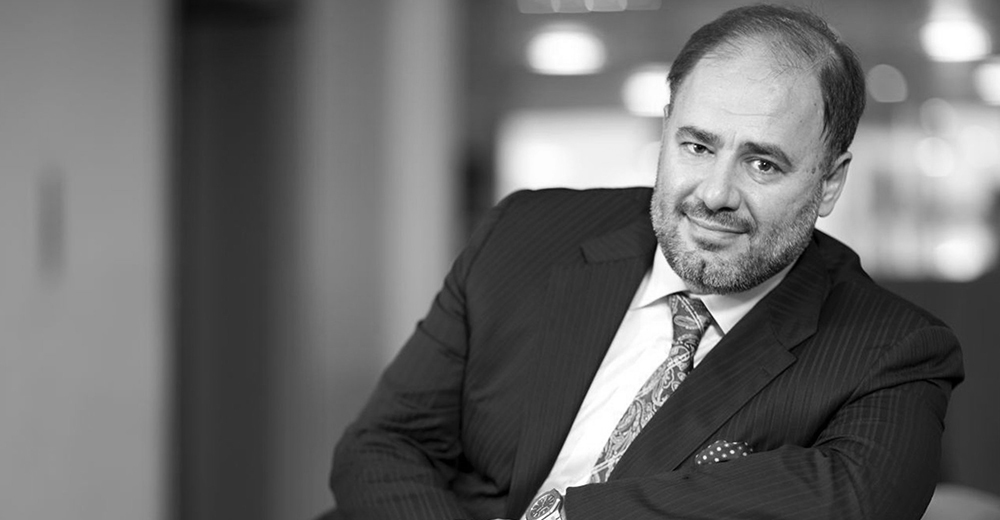
Wadah Khanfar
Former Director General of Al Jazeera & Co-Founder at AL Sharq Forum, QatarWhen the [Mubarak] government brought down the internet and [bloggers] could not send anything, Al Jazeera and other broadcasters … picked up the coverage. The coverage started with the bloggers and internet activists but it was amplified and sent to everyone’s home through traditional screens and mainstream media.
(For egta, ACT, EBU; Aource: Al Jazeera and the Arab Spring, Chatham House, 19 January 2012)

Luka Modrić
Croatian professional footballerFootball changed my life. I fought hard for my dreams, just like many of my Croatian teammates, and this year we have achieved our dreams at the World Cup in Russia. Thanks to the TV, our whole nation could watch our games and be with us in each match, and they could see us fighting for each other, for our jersey and for our country. Through television, not only our families and our fans, but hundreds of million of people worldwide could feel the power of sports and get inspired by our story – small nation making it to the biggest game in the world, against all odds and expectations. But we did it, thanks to our togetherness, quality and character, and I am happy that thanks to TV, whole world saw what Croatians are capable of.
(For egta, EBU, ACT)

Elisa Togut
Professional volleyball player & 2002 World Championship winner, ItalyTelevision has changed the habits of our society; it has brought us into come into contact with the history of different ethnic groups and distant countries. Television made us feel part of the world through images and news from far off lands, sometimes even unknown lands! As for me, television has changed my life. This largely happened one Sunday afternoon, 15 September 2002, when the Italian national team that I was playing with won the Volleyball World Championship. The final was broadcast on national channels and watched by many people. On top of that there was the pride and satisfaction of winning the Most Valuable Player award. When I returned to Italy, many people recognised me on the streets. I believe that ever since that day the Italian female volleyball movement has experienced a boom, both in terms of fans following matches in sports arenas and in terms of young girls enrolling in volleyball classes. Volleyball is now the most popular sport for females in Italy! Volleyball is still televised; however, it is considered as a “secondary” sport, and it does not get the same visibility as other activities such as football, so unfortunately we are forced to wait for major events such as the World Championships or Olympic games to be able to follow volleyball matches from our homes.”
[“La televisione ha cambiato le abitudini della nostra società, ha permesso la conoscenza della storia di etnie diverse, di paesi lontani dal nostro, ci ha fatto sentire parte del mondo attraverso immagini e notizie provenienti da luoghi lontanissimi e a volte sconosciuti!Nel mio piccolo la televisione ha cambiato la mia vita e soprattutto lo ha fatto quella domenica pomeriggio del 15 settembre 2002 quando a Berlino la Nazionale Italiana di pallavolo della quale facevo parte ha vinto il campionato Mondiale! La partita e’ stata trasmessa sulle reti nazionali ed e’ stata vista da tantissime persone. In più resta l’orgoglio personale di essere stata premiata miglior giocatrice del torneo. Al rientro in Italia molte persone mi riconoscevano e da quel giorno in poi credo che la pallavolo femminile abbia avuto un incremento di seguito anche nei palazzetti! Tante ragazzine dopo quell’impresa si sono iscritte ai corsi di volley e al momento in Italia rimane lo sport più praticato a livello femminile! Tutt’ora la pallavolo viene trasmessa in televisione, ma essendo pur sempre uno sport minore non ha la visibilità di altri sport e ci tocca aspettare sempre grandi eventi come Mondiali o Olimpiadi per riuscire a guardarcela da casa!”](For egta, ACT, EBU)

Thomas Helmer
Former football player, TV presenter & Commentator, GermanyI can remember very well the first football game on TV that I was consciously aware of. It was in 1974 and it was the final of Germany against Holland. Today it is a lot of fun for me to be in front of the camera and to report about our attempts back then on the field. That’s why I am so happy today to be active on television, after my football career.
[“Ich kann mich ganz genau an mein erstes Fußballspiel im Fernsehen erinnern das ich bewusst erlebt habe, das war 1974, nämlich das Finale Deutschland gegen Holland. Es macht heute riesen Spaß natürlich auch vor der Kamera zu stehen und über das zu urteilen was wir früher mal versucht haben ganz gut auf dem Platz darzustellen. Deswegen bin ich sehr sehr glücklich nach meiner aktiven Fußballkarriere jetzt auch beim Fernsehen sein zu dürfen.”](For egta, ACT, EBU)

Peter Neururer
Football manager, coach and TV commentator, GermanyFootball accompanies my life, and the same is of course true for television. At first, I was happy that I could watch TV at all, mainly for football. The first time, it was in 1962, I remember well. It was incredible. I was at my neighbours’ house, and Germany was playing in Santiago de Chile against Yugoslavia… the first tears came, and TV was there with me to show me the images. SPORT1 gave me the possibility to look behind the camera too and to see things through the camera, to be able to commentate on events, just like I used to do on the field. Thank you for that! Television accompanies my life.
[„Fußball begleitet mein Leben. Das gleiche beziehe ich natürlich auch auf das Fernsehen. Zuerst war ich froh dass ich Fernsehen gucken konnte, vor allem Fußball im Fernsehen gucken konnte. Das erste Mal, eigenartig, 1962, der ein oder andere der das jetzt hört kann sich das nicht vorstellen. Fernsehen beim Nachbarn, Santiago de Chile, Deutschland bei der Weltmeisterschaft in Chile gegen Jugoslawien, die ersten Tränen kamen, das Fernsehen war mit dabei, hat mir die Bilder übermittelt SPORT1 hat mir die Möglichkeit gegeben dass ich auch mal hinter die Kamera gucken kann, durch die Kamera mit Hilfe der Kamera die Sachen betrachten kann und auch kommentieren darf die ich früher selber angezapft und verzapft habe. Dankeschön dafür. Fernsehen begleitet mein Leben.”](For egta, ACT, EBU)

Sandis Ozoliņš
Former ice-hockey player & coach, LatviaTelevision has enormous power, because it allows people to follow all major sports events by watching their TV, and it does not matter if it is a 9 seconds long 100 meters final sprint race at the Olympics, an hour long exciting ice-hockey game or a competition in any other sports discipline. That is why millions of fans forget the world around them while enjoying sports competitions at home. I know that people are happy for the opportunity to watch the games at home and have a good time, and that gives me great satisfaction and understanding that television can bring my represented sport – ice-hockey – into every home by letting an unlimited number of people to enjoy the game, while Arena Riga can host only 10,000 sports fans.
(For egta, ACT, EBU)

Franz Beckenbauer
Football coach, manager and former player, GermanyThe development that has happened on television recently is amazing! Football and Formula 1 in particular have benefitted from this. Television has actually brought football to where it is today, and that is huge!
[„Die Entwicklung ist sagenhaft, was sich da im Fernsehen getan hat. Davon haben vor allem der Fußball und die Formel 1 profitiert. Das Fernsehen hat den Fußball dahin gebracht, wo er heute ist – das ist gigantisch!”](For egta, ACT, EBU)

Marc Wilmots
Football team coach and football commentator, BelgiumIf the Diables Rouges are so popular right now, and all the more in recent months, it not just because they work hard, but also thanks to the visibility that TV gives them by showing their talent to the world at each game. Thanks to TV, they have a direct connection with the audience that creates passion and triggers strong emotions. Of course, all the new aspects of TV with social media, Twitter and Facebook, merely enhance and multiply this passion through the capacity to share even more with fans than before.
[“Si les Diables Rouges sont aussi populaires actuellement, et encore davantage depuis quelques mois, ce n’est pas seulement parce qu’ils travaillent dur, mais aussi grâce à la visibilité que la télévision leur donne en montrant leur talent au monde entier à chaque match. Grâce à la télé, ils ont un lien direct avec le public et c’est ça qui crée la passion et des émotions fortes. Evidemment, tous les nouveaux aspects de la télé – avec les médias sociaux, Twitter et Facebook – ne font que multiplier cette passion grâce à la capacité qu’ils offrent de partager encore plus avec les fans qu’avant.”](For egta, ACT, EBU)

Niki Lauda
Former Austrian Formula 1 racing driver, three-time World Champion, AustriaThe fact that I report as an expert for RTL live from the race course already shows that I attach great importance to the medium of television. Few people have had the opportunity to even sit once in a Formula 1 car as I have. Thanks to television, millions of people have the chance to be part of the action and to celebrate victories with us.
[“Dass ich als Experte für RTL live von der Rennstrecke berichte, zeigt schon, dass ich dem Medium Fernsehen eine große Bedeutung beimesse. Nur wenige Menschen haben wie ich die Gelegenheit, einmal in ihrem Leben in einem Formel 1-Auto zu sitzen. Dank des Fernsehens bekommen Millionen Menschen die Chance, mitten im Geschehen zu sein und gemeinsam mit uns Erfolge zu feiern.”](For egta, ACT, EBU)

Eylem Şenkal
Model & national volleyball player, TurkeyTV enabled my performance to be reached by not hundred or thousand people, but millions. It is the most critical factor for those people who are engaged in visual arts. Therefore, it is indispensable for us.
(For egta, ACT, EBU)

Jacques Borlée
Former coach & athlete, European Athletics Coach of the Year (2011), BelgiumIf we humans want to feel good, we must indulge in intense positive emotions. Television is a force among many others for scattering light, one that allows us to conjure up dreams from the living room. Through televised sports, we can spend buzzing moments at home and relate to athletes’ achievements – a source of both joy and pride.
[« L’homme pour se sentir bien doit vivre des émotions positives intenses. La télévision est un des vecteurs importants qui transportent la lumière et donne le rêve à domicile. Par l’intermédiaire du sport, les hommes peuvent chez eux vivre des vibrations intenses et s’approprier le succès source de joie, de fierté. »](For egta, ACT, EBU)

Taïg Khris
World Champion rollerblader, TV presenter & “Onoff Telecom” founderUntil quite recently, sliding sports were not so well known by people at large, while it represented a passion for many young people. I believe that thanks to television, we were able to bring rollerblading and other ramp sports into people’s living rooms, by broadcasting spectacular shows and promoting the values of sport: healthy lifestyle, perseverance, team spirit, fair play, overcoming your own limitations, a sense of responsibility, striving to achieve goals for yourself and the community. Beating records in live shows and participating or hosting sports programmes was the best way for me to share my passion and bring the spirit of rollerblading to millions of youngsters out there, looking for inspiration and role models. Without the power of television, I couldn’t have jumped from the Eifel Tower in rollerblades, reaching live more than 1 million people on what is usually a French niche-channel (W9), but also aired live on 167 other channels across the world. Shows like Extreme Adventure, of which I am the host now, is a great example of how television can widen your horizon by mixing culture and adrenaline.
(For egta, ACT, EBU)

Vyacheslav Fetisov
Ice Hockey Olympic champion & politician, RussiaMy entire life as a professional athlete and public figure is closely connected to television. I remember how the power of TV drove the evolution of the Olympic Games from a relatively large-scale event into the biggest spectacle for billions of viewers all over the planet, into a huge business and into big-time politics. As a player in the NHL, I felt the influence of television, its amazing power to create stars and destroy them just the same. Working as a minister in Russia on a sports development program, I was the first to call for the creation of a public sports television channel. I am sure that the future of our children depends to a great extent on realising the educational potential of television.
(For egta, ACT, EBU)

Justine Henin
Olympic champion & retired professional tennis player, BelgiumWhen I was young I dreamed of becoming a champion … I watched a great deal of sports on television. It has truly been a driving force for me. Thanks to the images I saw on TV, I connected with my idols in my living room … In turn, I have been able to convey the values of sport to young people: courage, perseverance, determination … I am very pleased to know that – thanks to television – I was able to engage the emotions of people, unite an entire nation to behind me and motivate every generation.”
[« Petite, j’avais un rêve, celui de devenir une championne… Je regardais énormément le sport à la télévision. Ça a véritablement été un moteur pour moi. Je vibrais avec mes idoles grâce à toutes ces images… A mon tour, j’ai pu transmettre aux jeunes les valeurs du sport : courage, persévérance, volonté,… Grâce à la télévision, je suis très heureuse d’avoir pu transmettre des émotions aux gens, d’avoir réuni tout un peuple derrière moi et d’avoir motivé toute les générations. »](For egta, ACT, EBU)

Sir Philip Craven
Former President of the International Paralympic Committee & Member of the Board of Directors of Toyota, UKHow TV coverage of Paralympians is contributing to a more inclusive society? Paralympic athletes have the ability to change the world. Their amazing performances and incredible stories teach the values of acceptance and appreciation for people with an impairment. They can change how people think about think about themselves and how they think about others contributing towards a more inclusive and equitable society. Such transformation is only possible however if people are able to see the athletes’ performances. This has not always been the case. The first Paralympic Games took place in Rome, Italy in 1960, however it was not until the 1992 Barcelona Games that they started to receive widespread TV coverage. Since 1992, and coinciding with increasing amounts of TV coverage, the Paralympics have developed an excellent track record for changing attitudes and perceptions of people with an impairment. The recent London 2012 Games attracted a record 2.72 million spectators all of whom were inspired by what they saw in the venues. However, far more people were left inspired and touched by what they saw on television. London 2012 was broadcast to over 115 different countries and territories reaching a cumulated TV audience of 3.8 billion people. They enjoyed what they saw. The Paralympics Games are unique in that they can put spectators and TV viewers through every single emotion, including ones we never thought we had. Post Games research conducted in Great Britain has revealed that 81% of people believe London 2012 had a positive impact on the way they view a person with an impairment. A further 65% said the Games were a breakthrough to viewing people with an impairment – up from 40% in June 2010. Not all the people surveyed were lucky enough to get a ticket to see the London Games. Most will have watched on TV. Thanks to TV coverage of Paralympic Games and other major international events, the Paralympic Movement is helping to build a bridge which links sport with social awareness. Long may it continue!
(For egta, ACT, EBU)

Felix Baumgartner
Skydiver, AustriaPeople around me tell me that the live broadcast (both on TV and on the Internet) of my mission to the edge of space and of my record-breaking freefall jump from 23 miles above the earth offered a unique and magic moment to millions of people around the world … They say that witnessing live my breaking the speed of sound, protected only by a space suit made it possible for so many people to start believing that it is possible to push the limits of what one once thought was impossible … That those images allowed children and adults alike to share my dream or to simply start dreaming for themselves … and that they arouse for thousands an interest in science, physics, speed, extreme sports, etc. This makes me feel very fortunate …
(For egta, ACT, EBU)

Usain Bolt
Sprinter, Olympic medalist and World Record Holder, JamaicaWhen I was younger I spent a lot of time playing sport and trying to copy the skills I saw famous sportsmen do on TV. In 2008 my performances in the Olympic Games in Beijing were broadcast to millions of people all over the world. I won three gold medals and broke three world records. At the 2012 Olympics I defended my titles and set another world record. Nowadays no matter where I go in the world people know me from watching me run on TV. I hope that my hard work and determination will inspire and mobilise young audiences worldwide to follow their dreams or to simply always aim higher to achieve their goals.
(For egta, ACT, EBU)

Michael Schumacher
Former Formula 1 racing driver, GermanyIt’s the media – television included, evidently – that bring Formula One to the living rooms of fans, followers and motorsport enthusiasts alike, making us F1 pilots widely known in the process.
[„Die Medien an sich, natürlich auch das Fernsehen eingeschlossen, sind diejenigen, die uns in die Wohnzimmer unserer Interessierten, Fans und Motorsportbegeisterten bringen und uns damit natürlich bekannt machen.”](For egta, ACT, EBU)

Ottmar Hitzfeld
Former national football team coach & Sky TV sports pundit, SwitzerlandI share the quote of the great former US-actress Bette Davis. She said once: TV is marvellous: Not only does it give you headaches – it also shows you advertising spots about the pills you have to take against them!
(For egta, ACT, EBU)

Priscilla Gneto
Judoka & Olympic champion, FranceWhen I was younger, I watched a great deal of television. This is actually how I truly discovered the Olympic Games. I felt genuine emotion when I watched the 2008 Beijing Olympics – it was as though I experienced the athletes’ own joys and sorrows. I looked up to them. They fuelled my appetite for success and my ambition to become an Olympian one day myself. It all paid off four years later, with the entire world watching me on their TV screens. I’m glad to have shared my medal and joy with them, and I hope this will push young people across the world to believe in their dreams and to pursue them, as I have.
[« Quand j’étais plus jeune, je regardais beaucoup la télévision, c’est d’ailleurs ainsi que j’ai vraiment découvert les Jeux Olympiques. C’etait comme réel j’avais l’impression de pouvoir ressentir les joies et les peines des athlètes lors des Jeux de pékin. Ils m’ont servi d’exemple, donné l’envie, la motivation de vouloir être un jour a leur place. 4 années plus tard, j’y suis je sais que le monde entier me regarde aussi derrière leur écran, et je suis ravie d’avoir partagé ma médaille, ma joie avec eux. Et j’espère que cela va pousser le jeune public du monde entier à croire en leur rêve et à les poursuivre comme j’ai pu le faire. »](For egta, ACT, EBU)

Jean-Michel Saive
Former professional table tennis player, BelgiumIn the late 1980s, table tennis was nowhere to be found on television. And then came the live broadcast of the match between La Villette and Levallois, a heart-stirring ping pong game followed by hundreds of thousands of TV viewers for more than four hours on end! It certainly appealed to the viewers but, importantly, also to a handful of policymakers, and from that point onward live broadcasts of table tennis became a fact of Belgian TV. Those four hours of table tennis that are engraved in the history of Belgian sport also stand for the sharing of one of my main driving forces, namely passion!
[« A la fin des années ’80, le tennis de table était totalement absent des écrans belges. Et puis il y eut cette retransmission du match entre La Villette et Levallois, un match palpitant suivi par des centaines de milliers de téléspectateurs pendant plus de … 4 heures ! De quoi séduire à la fois un public mais surtout quelques décideurs, qui ont ensuite permis aux grands moments du tennis de table belge d’être diffusé en direct. Ces heures-là, gravées dans l’histoire du sport belge, représentent aussi pour moi le partage de ce qui a toujours été l’un de mes principaux moteurs : la passion ! »](For egta, ACT, EBU)

Lindsay Clay
President of the Global TV Group and CEO of Thinkbox, President of the Global TV Group and CEO of Thinkbox“While circumstances kept us apart this year, TV has brought us together. TV is and always has been a social glue. As viewing rocketed, broadcasters the world over reacted to the unique circumstances nimbly and with great creativity to ensure that TV was there for us all as a source of trusted information, comforting distraction, and much-needed escapism.”
(egta/ACT/The Global TV Group)

Laurent Bliaut
President of egta and Deputy General Director, Marketing and R&D, TF1 Publicité“The past year, TV has continued to uphold its long tradition of addressing the critical issues in our global community. It brings our attention to social injustice, sheds a neutral light on society’s mishaps, helps relieve the strain of an unprecedented era giving us a hopeful outlook on the future. World TV Day is an opportunity for us all to pay tribute to the many professionals who make the magic happen both on screen and from behind the scene. We invite everyone to once again celebrate our medium around the world.”
(For egta/ACT/The Global TV Group)

Guillaume de Posch
President of the Association of Commercial Television in Europe“This pandemic demonstrates like never before the role of television to support society and democracy. Throughout these difficult months, TV is there to care. Care for the provision of editorially responsible trusted news. Care for the distribution of entertainment to bring light in times of darkness. Care for preserving variety and cultural diversity in the media landscape. All in all, TV is and will continue to be a true beacon of resistance against the Coronavirus.”
(For egta/ACT/The Global TV Group)

Noel Curran
Radio & TV producer, EBU Director General & former RTE TV Director General, IrelandTelevision broadcasters are proud to have the trust of their audiences. News and current affairs, on television in particular, are core to public service media (PSM). Informing all audiences with independent news and helping them to better understand the world is crucial for a democratic society. Through its Quality Journalism initiative, the EBU is building on the strength of the Eurovision newsroom and developing new services to help public service media sustain audience trust and remain a key source of information for individuals.
(For egta, ACT, EBU)

Magnus Brooke
Chairman of the ACT Board of DirectorsTV’s worldwide audience is not only staying faithful but growing fast as viewers tune in to top quality content made and acquired by broadcasters. We are extremely proud to be among the most trusted media, and are constantly searching for new world-class content to continue to entertain and inform millions of people around the world each week.
(For egta, ACT, EBU)

Katty Roberfroid
egta Director General, BelgiumAt a time when advertisers demand transparency and brand- safety, the trusted environment that television offers seems more relevant than ever. TV excels at offering a premium and sound environment for commercial communications, not only because broadcasters have been operating in this environment for decades, but also because TV is measured and audited by trust-worthy third parties, framed by strict legal rules and its content is produced highly professionally. This is truly the DNA of television even as it transforms digitally to operate on new online platforms. The editorial responsibility vis-à-vis consumers and brands alike remains unchanged – and even emphasised – in the online video sphere.
(For egta, ACT, EBU)

Robert Madelin
Fipra International’s Chairman & former Director General of Directorate-General for Communications Networks, Content and Technology, UKThe audiovisual sector has always been in constant change. Recently we are going through an even more exciting revolution. TV sets with added Internet connectivity, tablets and smartphones are now part of our “TV lives”. TV is no longer about sending information in one direction. The Internet links the audience and the content providers. This development opens the door to new converged modes of cultural expression, new services, new players and new audiences. The European Commission wants to make sure that the technological potential becomes a reality for the benefit of audiences and creators. Many of us have witnessed the fall of the Berlin Wall through the eyes of cameramen. This was 25 years ago. We want to see remaining borders falling, also in the audiovisual world.
(For egta, ACT, EBU)

Jean-Paul Philippot
President of EBU & General Director of RTBFThe EBU has 63 Active TV Members in 55 countries, operating 937 TV channels broadcasting in 69 languages with a potential audience of 1.02 billion people,” Mr Philippot said. “It gives a voice to those who would otherwise go unheard and by serving all sections of society; it promotes tolerance and understanding and facilitates debate around issues of national concern.”
(For egta, ACT, EBU)

Hans Vestberg
Verizon Chief Executive Officer & former Ericsson Chief Executive Officer, SwedenTelevision is an endlessly fascinating medium because it’s changing all the time. It’s incredible when you think about it – the advances in the technology we’ve seen and the huge explosion in the amount of content we can access as a TV viewer. In the emerging Networked Society, we at Ericsson envision that everything that benefits from a connection will have one – and we anticipate that by 2020 there will be at least 50 billion connected devices, 15 billion of which will offer video to users. And that’s what TV is about in today’s world – making the world a smaller place by making communication across the globe easier. People love to watch great TV, it really is that simple, and our job is to continue to make it better and better. Television is undergoing a huge transformation behind the scenes and I am so excited about continuing to be part of the changing face of the media industry as we bring connectivity and great content to the masses.
(For egta, ACT, EBU)

Ted Sarandos
Chief Content Officer at NetflixPeople love compelling television content. At Netflix, we do too. In view of viewers’ desire to further engage with their favourite shows any time anywhere, it is our conviction that linear TV viewing is bound to further naturally evolve towards new screens. Netflix should not be seen as a competitor to television. We do ultimately compete for viewers’ attention, but it is our aim to keep the Netflix service so well priced that no one has to cancel any of their television offering to afford it. We are an exclusively on-demand platform, and the majority of our investments are made in season-after-broadcast content that has already been broadcast on linear TV, where the viewer’s passion for stories is triggered. We believe that viewing on Netflix is incremental to television and that we have the opportunity to engage viewers on a deeper level while creating high loyalty for shows. Broadcasters should more than ever invest in the qualities of linear TV such as event driven programmes, live shows, sports and news. This is ground where we will be less likely to compete and that viewers will always crave for.
(For egta, ACT, EBU)

Mainardo De Nardis
Executive Vice-Chairman at Omnicom Media Group, USTV is the quintessential emotional medium – no other medium can compare to TV in terms of building an emotional connection between brand and consumer. While other channels may create a more personal dialogue, more depth of information or more hands-on experience it is the ability of TV to form deep, long-held emotional brand associations that is its most unique and unassailable benefit.
(For egta, ACT, EBU)

Sir Martin Sorrell
S4 Capital Executive Chairman & former CEO of WPP (world’s largest advertising company), UKTV is the most generous medium. It even seems to benefit its competitors.
(For egta, ACT, EBU)

Laurence Tiennot-Herment
President of AFM-TELETHON, France25 years ago, scientists, doctors and politicians in France tended to overlook the harsh reality of rare diseases. But thanks to France Télévisions’s 1987 fundraising telethon and the ensuing wave of citizen involvement, families affected by these diseases could let their voices be heard and spoke up about their lives and hopes towards new research in this field. This goes to show how a vast movement of TV professionals, scientists, doctors, patients and citizens alike allowed us to shake up the world of Biomedicine for the benefit of all.
[« Il y a 25 ans les maladies rares étaient en France les grandes oubliées de la recherche, de la médecine et des pouvoirs publics. Grâce au marathon télévisuel lancé par France Télévisions en 1987 et grâce à la mobilisation populaire qui l’accompagne, les familles frappées par ces maladies ont pu sortir du silence et témoigner de leur vie quotidienne et de leurs espoirs en la recherche. Un vaste mouvement alliant professionnels de la télévision, chercheurs, médecins, malades et grand public nous a ainsi permis de lancer une véritable révolution biomédicale au bénéfice du plus grand nombre. »](For egta, ACT, EBU)

Piotr Borys
Former Member of the European Parliament & nc+ Channel Relations Manager, PolandI personally believe that television is a very influential form of media because it is a standard gateway of knowledge and information for the masses. It allows for the preservation of cultural diversity both at a local and a global level and provides for the introduction of other customs and languages. The best example that television removes boundaries is the fact that when I was on a delegation to Turkmenistan, people in the market from Ashkhabad recognised my language because their favourite TV channel was a Polish music channel. Television is a great source, not only of entertainment but also of education. I strongly believe that it is a great tool to promote standards of behaviour and democracy, which is very important from the point of view of the European Union activities.
(For egta, ACT, EBU)

Sir Philip Craven
Former President of the International Paralympic Committee & Member of the Board of Directors of Toyota, UKHow TV coverage of Paralympians is contributing to a more inclusive society? Paralympic athletes have the ability to change the world. Their amazing performances and incredible stories teach the values of acceptance and appreciation for people with an impairment. They can change how people think about think about themselves and how they think about others contributing towards a more inclusive and equitable society. Such transformation is only possible however if people are able to see the athletes’ performances. This has not always been the case. The first Paralympic Games took place in Rome, Italy in 1960, however it was not until the 1992 Barcelona Games that they started to receive widespread TV coverage. Since 1992, and coinciding with increasing amounts of TV coverage, the Paralympics have developed an excellent track record for changing attitudes and perceptions of people with an impairment. The recent London 2012 Games attracted a record 2.72 million spectators all of whom were inspired by what they saw in the venues. However, far more people were left inspired and touched by what they saw on television. London 2012 was broadcast to over 115 different countries and territories reaching a cumulated TV audience of 3.8 billion people. They enjoyed what they saw. The Paralympics Games are unique in that they can put spectators and TV viewers through every single emotion, including ones we never thought we had. Post Games research conducted in Great Britain has revealed that 81% of people believe London 2012 had a positive impact on the way they view a person with an impairment. A further 65% said the Games were a breakthrough to viewing people with an impairment – up from 40% in June 2010. Not all the people surveyed were lucky enough to get a ticket to see the London Games. Most will have watched on TV. Thanks to TV coverage of Paralympic Games and other major international events, the Paralympic Movement is helping to build a bridge which links sport with social awareness. Long may it continue!
(For egta, ACT, EBU)

Philippe Delusinne
RTL CEO & former ACT President, BelgiumIn the digital era, while we offer our professional content on multiple screens, linear TV remains the leading medium. Television is an instantaneous and effective communications medium, and this position comes with certain responsibilities to society. It is our task and our honour to report on important events across the world, to drive debates and to encourage people to reflect. Today is a day to realise that TV is there for us and that we fulfil many social roles through creating and distributing programmes that inform, engage and entertain millions of people across the world.
(For egta, ACT, EBU)

Nick Manning
Senior Vice President of MediaLink & former President International of Ebiquity plcTV can reach broad audiences, mass audiences, niche audiences; it can be local, regional, national; it can be spots, sponsorship, interactive. It can be anything you want it to be. I tend to think of TV as the Swiss Army knife of media, it’s got something for everybody.
(For egta, ACT, EBU)

Wadah Khanfar
Former Director General of Al Jazeera & Co-Founder at AL Sharq Forum, QatarWhen the [Mubarak] government brought down the internet and [bloggers] could not send anything, Al Jazeera and other broadcasters … picked up the coverage. The coverage started with the bloggers and internet activists but it was amplified and sent to everyone’s home through traditional screens and mainstream media.
(For egta, ACT, EBU; Aource: Al Jazeera and the Arab Spring, Chatham House, 19 January 2012)

Sherri Aldis
Director, United Nations Regional Information Centre for Europe (UNRIC)“Television has always been an important tool to raise awareness about the issues facing our communities and our planet. On World TV Day, we celebrate the role of television in uniting our global community. We welcome the focus this year on the importance of making television accessible to all. Accessibility is the key to ensuring that television can educate and connect everyone, leaving no one behind.”
(For egta/ACT/The Global TV Group)

Caroline Petit
Officer in Charge & Deputy Director, United Nations Regional Information Centre for Europe (UNRIC)“TV has connected us all during the COVID-19 pandemic, keeping us informed, educated, entertained and even inspired. During the recent COP26 Conference, broadcasters from across the globe played an essential role in showcasing the challenges and solutions when we work together to combat climate change. Long live television as a unifying medium!”.
(For egta/EBU/The Global TV Group)

Melissa Fleming
Under-Secretary General of the United Nations Department of Global Communications“As we work together to overcome the COVID-19 pandemic, and to recover better, the TV industry has a key role to play in keeping people worldwide informed – with accurate, science-backed facts – while also offering solutions and hope.”
(For egta/EBU/The Global TV Group)

Alison Smale
USG for Global Communication, United NationsAchieving the goals by 2030 will require concerted actions by everyone. By telling stories, news and entertainment media have a critical role in multiplying messages and propagating new ways of behaving.
(For egta, ACT, EBU)

Helga Trüpel
Member of the European Parliament, GermanyTelevision is still a medium that brings a lot of information, education and entertainment to people. TV plays an important role for the functioning of democracy because it gives people a variety of news, documentaries and opinions. Especially in the digital environment TV with its adaptation to digital distribution of content remains a crucial player of content offerer.
(For egta, ACT, EBU)

Lars Adaktusson
Member of the European Parliament & Journalist, SwedenTelevision provides us with indispensable news and information – in real time. Furthermore TV is the medium that opens up the world, conveys presence and makes us contestants in events that later end up in history books. Television carries knowledge, feelings and awareness which ultimately stimulates diversity and strengthens fundamental democratic values.
(For egta, ACT, EBU)

Robert Madelin
Fipra International’s Chairman & former Director General of Directorate-General for Communications Networks, Content and Technology, UKThe audiovisual sector has always been in constant change. Recently we are going through an even more exciting revolution. TV sets with added Internet connectivity, tablets and smartphones are now part of our “TV lives”. TV is no longer about sending information in one direction. The Internet links the audience and the content providers. This development opens the door to new converged modes of cultural expression, new services, new players and new audiences. The European Commission wants to make sure that the technological potential becomes a reality for the benefit of audiences and creators. Many of us have witnessed the fall of the Berlin Wall through the eyes of cameramen. This was 25 years ago. We want to see remaining borders falling, also in the audiovisual world.
(For egta, ACT, EBU)

Eva Maydell
Member of the European Parliament, BulgariaEuropean integration removes barriers between countries, societies and individuals – barriers that are physical, as well as virtual. Technological development in the field of television and radio plays a major role in maintaining the pursuit of freedom and justice and fosters the formation of a strong civil society. Television retains its prominent role in an increasingly digitised world.
(For egta, ACT, EBU)

Vaira Vīķe-Freiberga
Former President of Latvia & the first female President of the countryDemocracy requires a well-informed, inclusive and pluralistic public sphere; the media are, to a large extent, the creators as well as the “editors” of this public sphere. In this they become the holders of considerable power and may come to assume the status of a “fourth estate” within society. At the same time, the public service aspect and democratic function of media can come under threat either through political interference, undue commercial influence, or increasing social disinterest and indifference on the part of the general public.”
(For egta, ACT, EBU)

Kofi Annan
Former Secretary General of the United NationsTelevision can be a tremendous force for good. It can educate great numbers of people about the world around them. It can show us how much we have in common with our neighbours, near and far. And, it can shed light on the dark corners, where ignorance and hatred fester. The television industry is also in a unique position to promote mutual understanding and tolerance – with content that tells the stories not just about the powerful, but about the powerless, and not just about life in the world’s richest pockets, but also in the developing countries that are home to the majority of the world’s population.
(For egta, ACT, EBU)

Dr. Marc Jan Eumann
State Secretary for Federal Affairs, GermanyTelevision is a valuable asset in a democratic society, and much more than only for entertainment purposes. Thanks to its variety it ensures that people of every age, from all backgrounds and levels of education are informed about developments happening in their country and in the rest of the world. They can form their own opinion thanks to it, because even complicated concepts are easier to understand with moving images. Without television, life would be poorer –in information, but, yes, even in entertainment.
[„Fernsehen ist in einer demokratischen Gesellschaft ein wertvolles Gut, weit über den unterhaltenden Charakter hinaus. Mit seiner Vielfalt sorgt es dafür, dass Menschen jeden Alters, jeglicher Herkunft und mit jeglichem Bildungsgrad über die Entwicklungen in ihrem Land und im Rest der Welt auf dem Laufenden bleiben. Sie können sich eine Meinung bilden, weil auch schwierige Zusammenhänge in bewegten Bildern leichter zu verstehen sind. Ohne Fernsehen wäre das Leben ärmer – an Information und, ja, auch an Unterhaltung.” ](For egta, ACT, EBU)

José Manuel Barroso
Former President of the European Commission & Goldman Sachs International’s, PortugalTelevision has a remarkable ability to keep pace with the change that we see around us on a daily basis. As people crave information, entertainment and education so television allows them to learn, to question and to form their own opinion. Politics, whether at a European or a national level, exists for the people. A robust and independent media raises awareness and reports about the successes and challenges facing Europeans today. The emotional power of television enables viewers to explore, to empathise, to engage and to sustain democracies.
(For egta, ACT, EBU)

Ban Ki-moon
Former Secretary-General of the United Nations & chairman of the IOC Ethics Commission, South KoreaTelevision helps bring the world to people’s lives and living rooms. Through quality programming, television sheds light on global issues and opens windows of understanding on the struggles and hopes of communities and families everywhere. The United Nations looks forward to continuing our work with broadcasters to help inform, educate and build a better world.
(For egta, ACT, EBU)

Androulla Vassiliou
Former Member of the European Commission, GreeceWhile the digital revolution has empowered individuals with an unprecedented diversity of communication tools, television remains the most powerful medium of all. It allows people – of all ages and backgrounds – to easily share information, views and emotions. Television has a key role to play in education, and it enables viewers to enjoy the richness of our cultural diversity, contributing to a more creative Europe.
(For egta, ACT, EBU)

Petra Kammerevert
Member of the European Parliament, GermanyMedia, and especially television, transport the oxygen of a democratic society: information. It doesn’t work without them. And to make sure that the supply continues to be guaranteed, we need the right political decisions. The world is getting more complex and while technical progress has a lot of good sides, it also brings new challenges. Our role is to give television the necessary space to keep on evolving – no matter on which screen.
[„Medien und vor allem das Fernsehen transportieren den Sauerstoff einer demokratischen Gesellschaft: Information. Ohne geht es nicht. Und damit die Versorgung auch weiterhin gesichert ist, braucht es die richtigen politischen Entscheidungen. Die Welt wird komplexer, der technische Fortschritt bringt viel Gutes, aber auch neue Herausforderungen. Unsere Aufgabe ist es, dem Fernsehen – auf welchem Bildschirm auch immer – den notwendigen Raum zur Weiterentwicklung zu geben.”](For egta, ACT, EBU)

Gísli Marteinn Baldursson
RÚV TV presenter & former Reykjavik City Council member, IcelandTelevision has the power to unite a nation and indeed the world around events happening anywhere. Some countries, Iceland among them, still has televised events that draws over 90% of the population to the screen at the same time. No other home appliance, media, app or computer game has that kind of power. I got my first real job in television 20 years ago. After that I worked in politics for a decade, but have recently gone back to doing TV. It feels like home. Even though politics can be quite satisfying when you see things getting done, the long time influence of television on the ideas that shape the world are clearer to me now than ever before. Turn it on.
(For egta, ACT, EBU)

Tobias Schmid
European Affairs Commissioner for Media Authorities, GermanyFrom the point of view of VPRT, the question of television’s signification today is of course easy to answer: TV is an indispensable driver for the creative sector and therefore also an essential part of the most beautiful industry on earth.
[„Aus Sicht des VPRT ist die Frage, welche Bedeutung Fernsehen hat, denkbar einfach zu beantworten: Fernsehen ist ein unverzichtbarer Motor für die Kreativwirtschaft und damit wesentlicher Bestandteil der schönsten Branche der Welt.”](For egta, ACT, EBU)

Iliana Ivanova
Former Member of the European Court of AuditorsEurope is at a crossroads and we must decide now in which direction we want to take it: towards more or less integration. In my view, there is only one direction: a strong, united Europe. This means we must all respect the core European values, i.e. the free movement of persons and workers, and the free flow and exchange of information. Television in particular has a responsibility to bring forth solidarity across Europe, and it is my belief that it can, will and does so on all accounts.
(For egta, ACT, EBU)

Heinz K. Becker
Member of the European Parliament, AustriaTelevision has brought the political life into everyone’s living room and made politics a fixed part of everyday life, therefore enhancing and spreading democracy in ways no other medium before could even come close to. The internet and new media have taken over some of these important responsibilities and pushed the dissemination of democracy to the next level. However, I strongly believe that television and online media are not only complementary, but will eventually merge. Already television has transformed the world forever, but I think that its potentials are still far from exhausted.
(For egta, ACT, EBU)

Piotr Borys
Former Member of the European Parliament & nc+ Channel Relations Manager, PolandI personally believe that television is a very influential form of media because it is a standard gateway of knowledge and information for the masses. It allows for the preservation of cultural diversity both at a local and a global level and provides for the introduction of other customs and languages. The best example that television removes boundaries is the fact that when I was on a delegation to Turkmenistan, people in the market from Ashkhabad recognised my language because their favourite TV channel was a Polish music channel. Television is a great source, not only of entertainment but also of education. I strongly believe that it is a great tool to promote standards of behaviour and democracy, which is very important from the point of view of the European Union activities.
(For egta, ACT, EBU)

Tarja Turtia
Programme Specialist, Division for Freedom of Expression and Media Development, UNESCOFreedom of expression is a comprehensive human right since it includes individuals’ possibility to actively speak out and seek and receive information. Public Service Broadcasting is particularly relevant to UNESCO’s core mission because it can serve as a cornerstone of democracy if it is guaranteed with pluralism, programming diversity, editorial independence and appropriate funding as well as accountability and transparency towards the public. That is why, between 2003-2010, UNESCO supported the development of a regional news exchange project in South East Europe. Women trafficking in the region, youth rights in EU and non-EU Balkan countries, industrial pollution in Croatia, sewage spillage in Serbia and environmental education were among the many issues public broadcasters covered as a group in their news and current affairs stories. Today, the news exchange project which has formed a stable self-sustainable network called ERNO, produces and exchanges more than 1,200 news items per year. Needless to say, television plays a vital role in raising local awareness of important issues relevant to this region of the world. Not only does television alert to the region’s most important issues, it also fosters cooperation and mutual understanding between South East European media, which provides, in turn, a framework for coordinated action towards tackling common political, economic and environmental crises.
(For egta, ACT, EBU)

Alf Svensson
Former Member of the European Parliament, SwedenWithout TV – politics would stop. New fresh impulses, ideas and political parties would not have a chance without TV. Before, crowds would gather in big parks to listen: today these are replaced by TVs. TV has finally made the world round for real!
(For egta, ACT, EBU)

Rodi Kratsa-Tsagaropoulou
Former Vice-President of the European Parliament, GreeceTelevision, as one of today’s most powerful communications media, has a key role to play in raising citizens’ awareness about significant national and international concerns and challenges. TV is a real window on the changing world, on other civilisations. Television needs to take advantage of its strength in a fair, pluralistic way, while respecting human rights and universal values. In modern times, given the consequences of the serious economic crisis as well as the need for stability and peace in many regions of the world, its role becomes even more crucial.
(For egta, ACT, EBU)

Alejo Vidal-Quadras
Former Vice-President of the European Parliament, SpainAs a frequent participant in Spanish politics TV shows, I believe that television offers a unique forum for the communication of new ideas, discussion of current events and the fostering of healthy debate. Many a politician embarked upon his or her career due in part to what they had seen on television. TV prevents us from living in isolation with only our own opinions and, used wisely, can provide a window onto the world in which we live. In particular, news programmes enable us to reach an unprecedented level of awareness about the lives of those in other parts of the world.
(For egta, ACT, EBU)

Lech Wałęsa
Former President of Poland, a Noble Peace Prize winner and co-founder of SolidarityOne of the cornerstones of democracy is unrestricted access to information. The pluralism of TV channels is one of its indispensible and essential elements.
[“Jednym z najważniejszych elementów demokracji jest swobodny dostęp do informacji. Pluralizm kanałów telewizyjnych jest jego niezbędnym i podstawowym elementem.”]“It all came from there”, Lech Wałęsa, said, pointing to a TV when a reporter asked him why communism fell.
(For egta, ACT, EBU)

Martin Schulz
Former President of the European Parliament & former leader of Germany's Social Democrats, GermanyFreedom of expression and information is one of the most basic rights of the EU, as enshrined in the Charter of Fundamental Rights. It is a prerequisite to preserving our political liberties. That is why media freedom is taken consistently on board in our bilateral relations and agreements, particularly with developing countries. As it happens, the EU is paying close attention to the consolidation of media freedom in the post-Arab Spring countries, where we are intransigent in upholding and advocating the highest standards of television service. Evidently, if we have managed to safeguard this freedom, it is because journalists have risked their lives in providing us with uncensored facts and images. For the sake of European integration, we must embrace television, and other forms of media, in order to build our shared future where press freedom can continue to flourish.
(For egta, ACT, EBU)

Neelie Kroes
Former Vice-President of the European Commission, NetherlandsWe now live in an amazing digital world, and television is firmly part of that brave new world. Television is still the way to reach the most citizens and talk to them – and with them – about how the EU affects their lives. It’s still the way to bring people together – to laugh, to debate, to learn. In a world that takes a faster and faster pace, it is nice to know you can slow down once in a while with a good TV programme.
(For egta, ACT, EBU)

Viviane Reding
Member of the European Parliament, former Vice President of the EU Commission, LuxemburgAt the end of the day, all politics, whether at EU or national level, exist for the people: for our 500 million citizens living in the European Union. We need strong and independent media to raise awareness and report about successes and challenges facing the European Union. Television in particular, with its emotional power that allows viewers to explore, to empathise, to engage, is one of the cornerstones that make our democracies work. Images speak louder than words. I will continue counting on television to inform our citizens and unite them across borders. This is what Europe is about.
(For egta, ACT, EBU)

Noel Curran
Radio & TV producer, EBU Director General & former RTE TV Director General, IrelandTelevision broadcasters are proud to have the trust of their audiences. News and current affairs, on television in particular, are core to public service media (PSM). Informing all audiences with independent news and helping them to better understand the world is crucial for a democratic society. Through its Quality Journalism initiative, the EBU is building on the strength of the Eurovision newsroom and developing new services to help public service media sustain audience trust and remain a key source of information for individuals.
(For egta, ACT, EBU)

Erika Miklósa
Opera singer, HungaryI am overjoyed to see concert halls and opera houses around the world filled up with people for my concerts. But at the same time I am aware that for many people the only opportunity to relax is in front of the television. That is why televised media is able to have such a great impact on them, and that is why its main goal should be to transmit relevant values. As an opera singer and as an active sportswoman, I think that there is a great need for high quality cultural and sports programmes on television apart from the “usual” TV content. That is why I am very happy to be a part of the unique classical music talent show “Virtuózok” on the Hungarian public service television. Its success proves that viewers are hungry for television programmes of such high standards that have substantial content.
(For egta, ACT, EBU)

Lars Adaktusson
Member of the European Parliament & Journalist, SwedenTelevision provides us with indispensable news and information – in real time. Furthermore TV is the medium that opens up the world, conveys presence and makes us contestants in events that later end up in history books. Television carries knowledge, feelings and awareness which ultimately stimulates diversity and strengthens fundamental democratic values.
(For egta, ACT, EBU)

Conchita Wurst
Singer; winner of the Eurovision Song Contest 2014, AustriaThe power of television is like every power: It has its good and its bad sides. It can help spreading a wonderful message, an idea, art, news, sports, movies and entertainment. Television is also used for propaganda against ideas, against artists, against minorities. The responsibility of those, who make television, is a huge one. I was a lucky person. I had the opportunity to sing in front of 190 million people and spread a message of love, respect and tolerance. A message that couldn’t have reached so many people without the simple existence of television.
(For egta, ACT, EBU)

Jean-Pierre and Luc Dardennes
Filmmakers, directors & Oscar holders, BelgiumIt is always a great opportunity to be able to continue the dialogue with the viewer on television that began many months or years ago at the cinema. TV extends the life of our works. To us, the most important strength of television is the common experience – accessible to everyone simultaneously – created when one of our movies is aired. Moreover, it is also a way to guarantee a long future for the French-speaking cinema and to reinforce a social cohesion around shared cultural references.
[“C’est une réelle chance de pouvoir continuer à la télévision le dialogue qu’on a commencé avec le spectateur au cinéma quelques mois ou années auparavant. La télé prolonge la vie de nos œuvres. Pour nous, la force majeure de la télévision c’est l’expérience commune, accessible à tous et en simultanée qui se créée lorsque l’un de nos films est diffusé. C’est d’ailleurs aussi une façon de garantir une longue vie au cinéma francophone et de renforcer une cohésion sociétale autour de références culturelles communes.”](For egta, ACT, EBU)

Roch Voisine
Singer, CanadaTV is the king and master of communication in our society, it is indispensable. It has both the duty to inform and the extraordinary power to entertain the public. TV was, and still is, an essential element to my job. When I was a young I watched many children’s programmes on Saturday morning…I was hooked!
[« La télévision règne en roi et maitre sur la communication dans notre société, elle est incontournable. Elle a, à la fois, le devoir d’informer et le pouvoir extraordinaire de divertir le public. La télé a été, et est toujours, un élément indispensable pour faire mon métier. Je regardais beaucoup les émissions pour enfants le samedis matin. J’étais accroc ! »](For egta, ACT, EBU)

Corneille
Singer, Rwanda“TV remains my number one source of entertainment, whether for its fiction or variety programmes. It also remains an important source of information despite the ubiquity of the Internet and social networks. It helps me escape when I get caught up in my creative work. It also makes me travel outside of my comfort zone. The creative value in certain programmes (such as Dancing with the stars) is so inspirational that it sparks the a new visual or audio environment for my music projects. I grew up in a country (Rwanda) where TV did not arrive until very late. Until I was 16, TV remained an elusive concept. I spent afternoons with friends who had access to the European satellite channels and this was my window to a dream world: the West! In this era of new media and the Internet, TV seems to be doing well… which proves that big events have not yet found a substitute and I am one of their major fans!”
[« La télé reste ma source de divertissement numéro 1, que ce soit par ses programmes de fiction ou de variétés. Elle reste aussi une source importante d’information malgré l’omniprésence du web et de ses réseaux sociaux. Elle me sert d’évasion quand je reste trop longtemps prisonnier de mon métier de créateur. Elle me fait voyager, hors de ce qui m’est trop familier. Il existe quelques programmes de variétés qui présentent un tel effort artistique (Danse avec les stars,…) qu’ils peuvent inspirer un univers visuel ou même sonore pour mes projets musicaux. J’ai grandi dans un pays (Rwanda) où la télé n’est arrivée que très tard donc jusqu’à mes 16 ans la télé est resté un concept inaccessible. Je passais des après-midis chez des amis qui avaient accès aux chaînes européennes par satellite. C’était ma fenêtre sur un monde qui faisait rêver, l’occident. La télé a l’air de plutôt bien survivre à l’ère des nouveaux médias, internet… Ce qui prouve que ses rendez-vous n’ont pas encore trouvé de substitut et je fais partie de ses grands clients ! »](For egta, EBU, ACT)

Ernő Rubik
Inventor of the Rubik’s Cube, HungaryTelevision has remained the most powerful platform to reach large groups of people. That power must be matched by the responsibility to strike the right balance among entertainment, news, or education. The vast technological innovations taking us to the digital world should similarly be accompanied by innovative content-creation fostering curiosity, emotional engagement and socially involved citizens.
(For egta, ACT, EBU)

Dan Negru
Antena 1 TV host, RomaniaTelevision is the only profession where what you dream at night is likely to happen the next day. If you want to create, in the middle of summer, a Christmas atmosphere on a TV set, in front of the cameras, this thing is possible and millions of viewers who watch you will be enchanted by this atmosphere. Television is a walk through people’s dreams.
(For egta, ACT, EBU)

Florent Ladeyn
Chef, “Top Chef” finalist & owner of The “Auberge du Vert Mont”, FranceTelevision is an incredible communication medium that can be very positive if you know how to put things into perspective and keep a cool head… because its power is impressive! Taking part in Top Chef has changed many things in my life, but for me the most important thing is still to remain true to myself.
[« La télévision est un incroyable moyen de communication qui peut être très positif si l’on sait prendre du recul et garder la tête froide ! Son pouvoir est impressionnant. Mon passage dans l’émission Top chef a changé beaucoup de choses dans ma vie mais l’important pour moi est avant tout de rester soi-même. »](For egta, ACT, EBU)

Bonnie Tyler
Welsh singer, songwriter, businesswoman & active philanthropistTV is now the greatest cultural influence in the world. It crosses all human boundaries and has the capacity to bring people together, when used in a positive way, like no other medium. I love to watch TV wherever I am in the world and never cease to be both entertained and informed by it.
(For egta, ACT, EBU)

Bastian Baker
Singer, songwriter, & performer, SwitzerlandTelevision is one of the most important media that exist. It is central to the dissemination of information on all occasions. It opens up a world to us that would not exist otherwise. Television is knowledge! It is also a great way to mobilise people around a number of different causes. It brings people together and connects them, during sporting events, for example. Moreover, television is an important and essential way to relay culture. Personally, it allows me to spread my music more broadly, thanks to original programming such as ‘Taratata’ and ‘The Voice’.
[« La télévision est un des médias les plus importants qui existe. Elle est au cœur de l’information en toutes occasions. C’est un moyen d’avoir une ouverture sur la planète qui existerait difficilement autrement. La télévision est synonyme de connaissance ! Elle est également un magnifique moyen de mobilisation en faveur de diverses causes. Elle rassemble, comme lors d’événements sportifs, par exemple. Par ailleurs, c’est un relai important et essentiel pour la culture. A titre personnel, elle permet de pouvoir répandre ma musique d’une manière plus large, notamment grâce à des émissions originales comme « Taratata » ou « The Voice ». »](For egta, ACT, EBU)

Jean-Philippe Watteyne
Chef & Owner of iCook restaurant, BelgiumTelevision has clearly changed my professional and personal life. Becoming a reality TV star had a tsunami effect for me. I have to say that I did not expect it and even less that it would last so long, because now even months after, I can still clearly feel the effects of Top Chef. After that, one has to keep their feet on the ground and keep on proving your worth. TV clearly gave us an incomparable push forward thanks to which I could open a second restaurant and the future looks bright. I really think that cooking shows on TV can inspire a new vocation to young people and can open doors to young talents who need a boost.
[« La télévision a clairement changé ma vie personnelle et professionnelle. Devenir une star de télé-réalité a eu un effet de Tsunami pour moi. Je dois avouer que je ne m’attendais pas à cela et encore moins à ce que cela dure si longtemps, car des mois après, je ressens encore clairement les effets de mon passage dans Top Chef. Après cela, il faut réussir à garder les pieds sur terre et surtout continuer à assurer sur le long terme. Mais cela nous a donné un coup de pouce inégalable, grâce auquel nous avons déjà ouvert un deuxième restaurant et l’avenir s’annonce passionnant. Je crois vraiment que les émissions de cuisine à la télé peuvent inspirer des nouvelles vocations aux jeunes d’aujourd’hui et ouvrir des portes à beaucoup de jeunes talents qui ont besoin d’un tremplin. »](For egta, ACT, EBU)

Thomas Helmer
Former football player, TV presenter & Commentator, GermanyI can remember very well the first football game on TV that I was consciously aware of. It was in 1974 and it was the final of Germany against Holland. Today it is a lot of fun for me to be in front of the camera and to report about our attempts back then on the field. That’s why I am so happy today to be active on television, after my football career.
[“Ich kann mich ganz genau an mein erstes Fußballspiel im Fernsehen erinnern das ich bewusst erlebt habe, das war 1974, nämlich das Finale Deutschland gegen Holland. Es macht heute riesen Spaß natürlich auch vor der Kamera zu stehen und über das zu urteilen was wir früher mal versucht haben ganz gut auf dem Platz darzustellen. Deswegen bin ich sehr sehr glücklich nach meiner aktiven Fußballkarriere jetzt auch beim Fernsehen sein zu dürfen.”](For egta, ACT, EBU)

Peter Neururer
Football manager, coach and TV commentator, GermanyFootball accompanies my life, and the same is of course true for television. At first, I was happy that I could watch TV at all, mainly for football. The first time, it was in 1962, I remember well. It was incredible. I was at my neighbours’ house, and Germany was playing in Santiago de Chile against Yugoslavia… the first tears came, and TV was there with me to show me the images. SPORT1 gave me the possibility to look behind the camera too and to see things through the camera, to be able to commentate on events, just like I used to do on the field. Thank you for that! Television accompanies my life.
[„Fußball begleitet mein Leben. Das gleiche beziehe ich natürlich auch auf das Fernsehen. Zuerst war ich froh dass ich Fernsehen gucken konnte, vor allem Fußball im Fernsehen gucken konnte. Das erste Mal, eigenartig, 1962, der ein oder andere der das jetzt hört kann sich das nicht vorstellen. Fernsehen beim Nachbarn, Santiago de Chile, Deutschland bei der Weltmeisterschaft in Chile gegen Jugoslawien, die ersten Tränen kamen, das Fernsehen war mit dabei, hat mir die Bilder übermittelt SPORT1 hat mir die Möglichkeit gegeben dass ich auch mal hinter die Kamera gucken kann, durch die Kamera mit Hilfe der Kamera die Sachen betrachten kann und auch kommentieren darf die ich früher selber angezapft und verzapft habe. Dankeschön dafür. Fernsehen begleitet mein Leben.”](For egta, ACT, EBU)

Natasha St-Pier
Canadian singer & jury member of “The Voice” BelgiumI’ve always loved television: firstly as a member of the public and later as an artist. I believe that TV is a way to bring culture into the homes of everyone. From a personal point of view it gives me a chance as a singer and TV presenter to meet so many fascinating artists who both inspire me and help me grow professionally. By participating in a show such as The Voice Belgium, I get to give a little help to young talent, who only need that one chance to wow us through the unique window that TV offers. Despite a busy schedule, through telethons or the show ‘Restos du coeurs’, TV also allows me to give back. In short, TV is my life!
[“J’ai toujours aimé la télévision; en tant que public d’abord, puis en tant qu’artiste. La télé est un moyen de faire entrer la culture dans les maisons de tout le monde. D’un point de vue personnel cela me donne la chance en tant que chanteuse ou animatrice de rencontrer des artistes tellement fascinants qui m’inspirent et me font grandir dans mon métier. En participant à des émission comme The Voice Belgique j’ai la chance de donner un coup de pouce à de jeunes talents qui n’ont besoin que d’une chance, de cette vitrine qu’est la télé pour nous séduire. Malgré un emploi du temps chargé, via les téléthon ou les Restos du cœurs, la télé me permet aussi de donner à mon tour. Bref ma vie passe par la télé !”](For egta, ACT, EBU)

Jean Paul Gaultier
Stylist and designer, FranceTelevision has always been very important in my life. As a child I watched TV with my grandmother, and it’s a habit that has never left me. Just as what I see on the street inspires me, so does television. When I work on my collections, I try to reflect what I see and perceive around me. Fashion should match people’s evolving desires as well as reflect the society they live in; this is where television comes in, among other sources of inspiration.
[“La télévision a toujours été très importante dans ma vie. Déjà jeune je regardais très souvent la télé chez ma grand-mère, et c’est une habitude qui ne m’a pas quitté depuis. Comme la rue, la télévision m’inspire. Quand je travaille sur mes collections, j’essaye de refléter ce que je vois et perçois autour de moi. La mode doit correspondre aux désirs du moment et refléter l’actualité, et cela passe entre autre par la télévision. »](For egta, ACT, EBU)

Marc Wilmots
Football team coach and football commentator, BelgiumIf the Diables Rouges are so popular right now, and all the more in recent months, it not just because they work hard, but also thanks to the visibility that TV gives them by showing their talent to the world at each game. Thanks to TV, they have a direct connection with the audience that creates passion and triggers strong emotions. Of course, all the new aspects of TV with social media, Twitter and Facebook, merely enhance and multiply this passion through the capacity to share even more with fans than before.
[“Si les Diables Rouges sont aussi populaires actuellement, et encore davantage depuis quelques mois, ce n’est pas seulement parce qu’ils travaillent dur, mais aussi grâce à la visibilité que la télévision leur donne en montrant leur talent au monde entier à chaque match. Grâce à la télé, ils ont un lien direct avec le public et c’est ça qui crée la passion et des émotions fortes. Evidemment, tous les nouveaux aspects de la télé – avec les médias sociaux, Twitter et Facebook – ne font que multiplier cette passion grâce à la capacité qu’ils offrent de partager encore plus avec les fans qu’avant.”](For egta, ACT, EBU)

Yüksel Aytuğ
Journalist, editor & television columnist, TurkeyThe invention of TV is like the conquest of Istanbul by Mehmet the Conqueror. TV, as he did, ended an era and started new one. New kinds of art and artistic concepts have emerged with TV, just as happened in the Renaissance. TV became the vehicle for many concepts. Especially in developing countries, TV has the responsibility of duty of a teacher or parents. Or, as is the case in Latin countries, football broadcasting is used as drug to illusion people. TV is like uranium. In good hands, it can be used to supply electricity to a whole country. In bad hands, it can devastate a country in sociocultural dimensions.
(For egta, ACT, EBU)

Eylem Şenkal
Model & national volleyball player, TurkeyTV enabled my performance to be reached by not hundred or thousand people, but millions. It is the most critical factor for those people who are engaged in visual arts. Therefore, it is indispensable for us.
(For egta, ACT, EBU)

Ebru Akel
Actress and TV presenter, TurkeyMy first engagement with TV was during my school years. The imagination of being on TV indisputably contributed richness and deepness to my acting and presenting career. Live broadcasting experience allowed me to be recognised by the public, reaching the public by acting in various TV series and developing great experience and knowledge about many topics. I am proud of my approximately ten “the best TV presenter” awards that I received for the shows that I presented. I am respectful to my job and love it very much. I congratulate all TV sector workers on “World TV Day”.
(For egta, ACT, EBU)

Jess Molho
Actor and TV presenter, TurkeyTV came into my life in a surprising way approximately 20 years ago and became my job. In other words, TV, itself, became my career. Today, “the black box” provided me everything I have in my life.
(For egta, ACT, EBU)

Gísli Marteinn Baldursson
RÚV TV presenter & former Reykjavik City Council member, IcelandTelevision has the power to unite a nation and indeed the world around events happening anywhere. Some countries, Iceland among them, still has televised events that draws over 90% of the population to the screen at the same time. No other home appliance, media, app or computer game has that kind of power. I got my first real job in television 20 years ago. After that I worked in politics for a decade, but have recently gone back to doing TV. It feels like home. Even though politics can be quite satisfying when you see things getting done, the long time influence of television on the ideas that shape the world are clearer to me now than ever before. Turn it on.
(For egta, ACT, EBU)

Ómar Ragnarsson
RUV TV reporter & entertainer, IcelandThe late Walter Cronkite said to me in an interview when I asked him if the media is becoming too powerful: ‘To make democracy function, the media can never be too powerful. The media must have enough power to distribute facts, views and opinions so the people can use their power.’ Television does this better than anything else and best when broadcasting live.One real personal experience of the possibilities was a live transmission from my airplane heading towards the erupting volcano Eyjafjallajökull in 2010. A foreign reporter was sitting beside me, and we and the television spectators all over the world were looking from the backseat at us and through the windshield at the volcano when huge invisible shock waves begin to slam the airplane so it could clearly be heard. The reporter began to shout in terror, because he had never witnessed anything like this, and neither had anybody else in the audience. I remained calm and tried to comfort him by telling him that I have heard, seen and felt similar shock waves in one of the 23 eruptions I‘ve reported over the years. This is an example of television at its brilliant best, because “life is live.” A few days later, after many attempts, I manage to film for the first and only time in history the shock waves between twilight and darkness when they can be seen. This is one of the reasons that I am a pilot and also a reporter. I can be in the air and on the air at the same time.
(For egta, ACT, EBU)

Morgan O’Sullivan
TV producer, IrelandIn recent years, as a producer, it has been an honour and a privilege to be a part of this new wave of TV drama content in what could be described as another “golden age of television”.
(For egta, ACT, EBU)

Ivy Quianoo
Afro-German singer, winner of the 1st edition of “The Voice”, GermanyTelevision is probably the medium with the greatest reach today, and it has clearly given my career a great push and therefore changed my life forever. The offer is varied and of great quality, but most important to me are good shows and investigative reportages, which I really enjoy watching.
[“Fernsehen ist heute wohl das Medium mit der größten Reichweite überhaupt, und für meine Karriere hat es so Anschubarbeit geleistet und definitiv damit auch mein Leben verändert.Das Angebot ist sehr vielfältig, auch qualitativ, aber gut gemachte Sendungen und gut recherchierte Reportagen halte ich für wichtig und schaue mir diese auch gern an.”](For egta, ACT, EBU)

Rebecca Mir
Finalist of “Germany’s next Topmodel” 2011, German TV ModeratorWhen I was a Child, I was dreaming about this colourful World, without skies and limits: Television. Now I am a part of it and it feels like being ‘Alice in Wonderland’. Diving into another world, escaping from the daily routine.
(For egta, ACT, EBU)

Renārs Kaupers
Brainstorm band singer, LatviaWe didn’t even know before we entered the national contest what Eurovision was. But when we learned it meant playing for some 300 million people, we knew it was a good idea.”
(For egta, ACT, EBU)

ZsaZsa Gabor
Actress, HungaryIn what ways has TV changed my life? It has been a joy to share with everyone on the TV screen all that I was scared to tell any of my eight husbands. And I even got a lot of money for it.”
[„Hogy miben változtatta meg a TV az életemet? Minden olyan dolgot, amit addig nem mertem nyolc közöl semelyik férjemnek sem elmondani, boldogan megoszthattam mindenkivel a képernyőn és még sok pénzt is fizettek érte.”](For egta, ACT, EBU)

Richard Curtis
Screenwriter, actor & film director, “Comic Relief” co-founder, UKIt’s impossible to overvalue the importance of television – both in its serious and less serious functions. It’s one of our most important ways of finding out the truth – and also of changing the world, and finding out what in the world needs changing. It’s also an immense bringer of joy – I learnt how to laugh through television, and now my children and I, every day of every week, share the joy and stupidity of TV shows – they actually make us HAPPY.
(For egta, ACT, EBU)

Taïg Khris
World Champion rollerblader, TV presenter & “Onoff Telecom” founderUntil quite recently, sliding sports were not so well known by people at large, while it represented a passion for many young people. I believe that thanks to television, we were able to bring rollerblading and other ramp sports into people’s living rooms, by broadcasting spectacular shows and promoting the values of sport: healthy lifestyle, perseverance, team spirit, fair play, overcoming your own limitations, a sense of responsibility, striving to achieve goals for yourself and the community. Beating records in live shows and participating or hosting sports programmes was the best way for me to share my passion and bring the spirit of rollerblading to millions of youngsters out there, looking for inspiration and role models. Without the power of television, I couldn’t have jumped from the Eifel Tower in rollerblades, reaching live more than 1 million people on what is usually a French niche-channel (W9), but also aired live on 167 other channels across the world. Shows like Extreme Adventure, of which I am the host now, is a great example of how television can widen your horizon by mixing culture and adrenaline.
(For egta, ACT, EBU)

Birgit Schuurman
Singer & actress, NetherlandsHello, I’m Birgit Schuurman and I think television is the perfect medium to make us aware that there is more than just our own life.
(For egta, ACT, EBU)

Steven Gätjen
TV presenter, GermanyTV is fascinating – at its best moments it is the campfire of our generation. And I’m allowed to be the storyteller by its side. That is fantastic.
(For egta, ACT, EBU)

Lucie Borhyová
NOVA TV News anchor, Czech RepublicTelevision in my life has played a pivotal role from early childhood – it is a normal part of everyone’s life. Over time you start to perceive television differently – my perception developed when I started to study a television-related field, and again after I started working in television and had the chance to witness it from behind the scenes. It is exciting to be at the source of information, to participate in major projects and to communicate that information to people, especially through live broadcasting. It is amazing to see how the news is made and how television works from the inside.
(For egta, ACT, EBU)

Karine Le Marchand
M6 TV presenter, FranceMy motto: ‘Respect the viewers who care enough to watch your shows’. TV is both an angel and a demon, it can lie or speak the truth. I am committed to upholding moral values in my professional endeavours.
[« Respecter ceux qui nous regardent” est ma devise. La télévision est un ange et un démon, elle peut mentir ou parler vrai. J’ai à cœur de mettre de l’éthique dans ce que j’entreprends professionnellement. »](For egta, ACT, EBU)

Antonia Erős
RTL TV News host, HungaryI like television and even prefer producing television programmes to watching the telly. The fact that millions expect us to announce the news items evening by evening is one of the biggest things in our profession, and this huge publicity has made it possible for me to talk about my favourite subject: diabetes.
(For egta, ACT, EBU)

Michel De Maegd
RTL TV News host & journalist, BelgiumTelevision has been, for me, a window onto the wider world. As a teenager I was fascinated by TV presenter Philippe de Dieuleveult. He was the host of French game show series La Chasse Aux Trésors (The Treasure Hunt). In the series, he would travel the world and show live footage of his unlikely encounters with distant populations. This made me want to travel. Today, television is still that gateway to the world, and it makes those who are unable to travel become aware – albeit not wholly – of the world surrounding us.
[« La télévision a été pour moi une fenêtre qui s’ouvrait sur le monde. Quand j’étais adolescent, j’étais fasciné par l’animateur français Philippe de Dieuleveult qui dans « la chasse aux trésors » parcourait le monde et nous offrait, en direct, des rencontres improbables avec les peuples de pays lointains. Cela m’a donné l’envie de voyager. Aujourd’hui, la télévision reste cette fenêtre ouverte sur le monde et permet à ceux qui ne peuvent voyager d’avoir conscience de la réalité, certes partielle, du monde qui nous entoure. »](For egta, ACT, EBU)

Cristina Cordula
M6 TV host & image consultant, FranceI use television as a modern mirror that allows people to better understand and, as such, boost their self-image. This way, they can play up their best assets. Television is a way for me to convey my optimism to people and bring them hope and joy.
[« J’utilise la télévision comme un miroir moderne qui permet aux gens de mieux comprendre leur image afin de l’améliorer, et ainsi mettre en valeur le meilleur d’eux-mêmes .C’est pour moi une façon de leur communiquer mon optimisme et leur donner de l’espoir et de la joie. »](For egta, ACT, EBU)

Sarah Valentina Winkhaus
Sky TV hostess & Sports 1 moderator, GermanyWhen I did my first TV piece I knew: This is it! And until today, nothing has changed. TV enables us to quench our thirst for knowledge – in a colourful and entertaining way.
(For egta, ACT, EBU)

Christophe Giltay
RTL reporter, BelgiumAs a junior reporter, I would always say that I was not ‘making television’ but that I was a journalist who appeared ‘on television’ and that TV was interchangeable with radio or print media. But that was a misjudgement on my part, because television is not radio (which I love), television is not print media, and this is perhaps how it changed my life. I was born in the early 60s, which makes me a TV native, as opposed to the digital natives of today. Whereas for young people today everything involves the internet, television was the quintessential medium of my generation, what it was all about. I always knew this but only gradually admitted it: its impact, the power of images, how it magnifies tenfold a message compared with other media … and then, one day, the baker recognises you. Some will say that they don’t care – that’s a lot of swank. It makes you happy, you feel as proud as punch! So yes, television has changed my life by making it more exciting, and I am grateful for that.
[« Quand j’étais débutant j’aimais à dire que je ne faisais pas « de télévision », mais que j’étais journaliste « à la télévision », et que cela aurait été la même chose à la radio ou dans un journal. Mais c’était une erreur, la télévision ce n’est ni la radio (que j’adore), ni la presse écrite, et c’est peut-être en ça qu’elle a changé ma vie. Né au début des années 60, je suis un « TV native », comme on parle aujourd’hui de « Digital native ». Si pour un jeune d’aujourd’hui tout passe par le net, pour ceux de ma génération la télévision était le média de référence, l’aboutissement. Je le savais mais je ne l’ai admis que progressivement. La puissance, la force de l’image, le message décuplé par rapport aux autres médias… et puis bien sûr, un jour, la boulangère qui vous reconnaît. Certains vous diront qu’ils s’en moquent… C’est de l’esbroufe, ça fait plaisir, on se sent fier comme Artaban ! Alors oui, la télévision a changé ma vie en la rendant plus passionnante, et je lui en suis reconnaissant. »](For egta, ACT, EBU)

István Szellő
RTL TV host, HungaryIf you are not aware of the news, you don’t know your place within the world. And if you don’t know what’s going on around you, you can’t help others.
(For egta, ACT, EBU)

Sebastian Höffner
Sky TV host, GermanyWhen I was a child I loved TV series like The Fall Guy and Magnum and of course I wanted to become a private investigator, too. Later when I started watching the major Saturday night shows, I realised that I wanted to become a host – and that’s my job today. I would say that TV influenced me in a positive and sustainable way.
(For egta, ACT, EBU)

Peter Kloeppel
RTL Television former Chief Editor & anchorman, GermanyNews is my life, TV is my medium – and I love it!
(For egta, ACT, EBU)

Peter Nyman
MTV3 news anchor, FinlandIn the beginning man walked on the moon, as author Jonas Gardell put it. The first great memories of my generation were born on the television screen. The more modern computer I understand, or attempt to understand, with my mind, but I will always primarily understand television with my heart. Television is the altar of my generation.
(For egta, ACT, EBU)

Günther Jauch
RTL TV host ‘Who Wants To Be A Millionaire?’, GermanyWho Wants To Be A Millionaire? lives by the diversity of its contestants, so television is constantly new and surprising for me.
(For egta, ACT, EBU)

Claire Chazal
TV journalist & TF1 TV Director of News, FranceNewscasts have played a significant role in recent decades. On the political level, they have become both an indispensable forum and an active place of fruitful discussions for all electoral events. Not as a means of manipulating public opinion but, in my view, as an information tool, governed by strict rules of impartiality. At the international level, certain images of conflict have winged their way around the world, thus raising awareness and at times compelling leaders to take action. This was the case, for instance, for the war in former Yugoslavia and the subsequent intervention of NATO. Through its decisive power, television has become, whether one likes it or not, the premier source of information, and it is this very power that compels journalists to show uncompromising respect for the journalistic code of ethics.
[« Les Journaux Télévisés ont joué un rôle considérable au cours des dernières décennies. Sur le plan politique, ils sont devenus une tribune incontournable et un lieu de débats fructueux pour tous les rendez-vous électoraux. Non pas un moyen de manipulation de l’opinion, mais, à mon sens, un instrument d’information, encadré par de strictes règles d’impartialité. Sur le plan international, certaines images de conflits, en faisant le tour du monde, ont provoqué une véritable prise de conscience, et ont même parfois forcé les dirigeants à l’action. Ce fut le cas par exemple pour la guerre dans l’ex-Yougoslavie et l’intervention de l’OTAN. Par sa puissance, la télévision est devenue, qu’on le veuille ou non, le 1er moyen d’information, et c’est cette puissance même qui impose à ses journalistes un respect intransigeant de la déontologie. »](For egta, ACT, EBU)

Gilles Bouleau
TF1 TV journalist and news anchor, FranceI am from a generation where it was common for homes not to be equipped with a television. It was a rare and magical object to my 11/12 year old self who watched Zorro and Tintin at the neighbours’ house once a week when I did not have class. Like many people, television was for me my university. I loved watching ‘The theatre tonight’ and ‘At the movies tonight’ presented by Armand Panigel. It was an incredible window on the world. From the suburbs, I could see the world through television with the programme ‘Letters from one end of the world’. It made me want to discover things and prepared me for my current job. When I have time, I like to watch live sports. I love being immersed in the big events, brought to a higher level through television.
[« Je suis d’une génération où il était courant que les foyers ne soient pas équipés en télévision. C’était un objet rare et magique et jusqu’à mes 11/12 ans, je regardais Zorro et Tintin chez la voisine une fois par semaine, lorsque je n’avais pas cours. Comme pour beaucoup de gens, la télévision a été ensuite pour moi mon université. J’aimais beaucoup regarder ‘Au théâtre ce soir’ et ‘Au cinéma ce soir’ présenté par Armand Panigel. C’était une fenêtre incroyable sur le monde. De ma banlieue, j’ai pu découvrir le monde grâce à la télévision avec ‘Lettres d’un bout du monde’. Elle m’a donné envie de découvrir des choses et m’a nourri pour le métier que je fais aujourd’hui. Quand j’ai le temps, j’aime regarder le sport en direct. J’aime être immergé dans les grands évènements, sanctuarisés grâce à la télévision. »](For egta, ACT, EBU)

Radu Beligan
Actor, RomaniaI strongly believe that in the modern era, television is the new agora of society. Unfortunately, sometimes, it happens that some TV people ignore the social and moralizing role that have, in theory, enriched the institutions they serve, and transform this wonderful gift of modern technology in a tool for manipulation, or worse, in a weapon of ignorance. Fortunately, these false prophets of the small screen are a minority. Imposture is quickly noticed, in television as elsewhere. The real TV stations and the real people who work there are a force, a pillar of the society in which we live, one of the basic elements of the freedom humanity is aspiring at, for centuries, freedom that we will be able to achieve in the close or distant future.
(For egta, ACT, EBU)

Gheorghe Zamfir
Artist, RomaniaTelevision is as powerful as nuclear force. It can destroy or save a nation.
(For egta, ACT, EBU)

António Victorino D`Almeida
Composer, musician & writer, PortugalIt is a fact that I owe my early fame as a musician – that is to say, as a classically-trained pianist and composer – to television. It is also by making television programmes that, several years onwards, I was able to draw the general public’s attention to classical music. With the success of my TV shows – some 150 to date – I’ve become a national voice of the Portuguese people, from high society to the lower orders and everyone in between. That said, and much to my sorrow, I do not believe that my shows, despite my continually promoting their educational merits, have contributed to greater availability of classical music, as the Portuguese have no access to this particular music. Even though 99% of the Portuguese refer to me as ‘Maestro’, they have no real knowledge of classical music, the reason being that it is deprived of public exposure. The onslaught of mainstream music, relentlessly forcing its way through every communication platform, means that wide distribution of classical music is virtually impossible. As such, it is my belief that 99% of the people who cross me in the street or otherwise actually think I am an archaeologist, as they are oblivious to the very existence of classical music.
(For egta, ACT, EBU)

Giannis Loukakos
“MasterChef” Judge, GreeceAnyone can cook if they put their mind to it, but how many can develop their culinary skills without spending much, discover new cooking techniques as well as recipes and learn about diet habits from around the world? Nowadays, it seems that everybody can do that through television. Since cooking shows have been integrated by TV stations to their programmes, people seem more and more interested in learning how to improve their nutrition. As a chef, I feel very fortunate that I was given the opportunity to be part of all this and to share my knowledge, not only with young and talented cooks, but also with every television viewer who is interested in quality food.
(For egta, ACT, EBU)

Ram Kapoor
TV actor, IndiaTelevision always carried me: be it at my beginnings in small series and telefilms, or through my success in Kasamh Se and Bade Acche Lagte Hain. Thanks to TV, I saw an incredible dream come true: I could incarnate good and bad people, share my joys and pains with the audience, but also be part of this incredible medium that can educate and entertain at the same time! And with new TV platforms, the journey has only just started …
(For egta, ACT, EBU)

Gregorio Duvivier
Actor & screenwriter, BrazilTV is a fundamental building block of the Brazilian nation. It ensures the cultural and linguistic unity of a country in which significant parts of the population are largely, if not entirely, illiterate, that is to say only managing to write down their own names. Since neither literature nor film has been able to reach the nation en masse, television has taken up that responsibility. In Brazil, TV’s responsibility is thus huge, when it comes to producing programs. This essentially means TV has to gradually mould the identity of a country still going through its phase of self-discovery or, rather, self-invention. We must not think of television as a business but as a very powerful component in the building of a collective unconscious. This is perhaps why Globo, our largest TV network, is nicknamed ‘The Dream Factory’.
(For egta, ACT, EBU)

Yana Marinova
Actress, BulgariaOnce upon a time there was a girl who dreamed of being an actress, although at the time she was working as a restaurant manager. She found her way into the world of TV through soap operas, and it was then that people started to recognise her, after becoming a TV host, a reality star and staring in the hugely successful series The Glass House on bTV in Bulgaria. Today she gives autographs to people on the streets. That’s the story of my life, I love it and adore TV!
(For egta, ACT, EBU)

Ottmar Hitzfeld
Former national football team coach & Sky TV sports pundit, SwitzerlandI share the quote of the great former US-actress Bette Davis. She said once: TV is marvellous: Not only does it give you headaches – it also shows you advertising spots about the pills you have to take against them!
(For egta, ACT, EBU)

Anggun
French - Indonesian singer & songwriterTelevision has been able to embrace music and image together. Without television, music will not be what it is nowadays.
(For egta, ACT, EBU)

Victoria Hislop
British author of the Mega TV Series adapted novel “The Island”, GreeceMy novel The Island (originally written in England) was adapted two years’ ago into a 26-part television series by Mega TV and attracted a 70% audience share. I was a consultant on To Nisi (its Greek name) and worked with the all-Greek team of directors, actors and crew during the eighteen month production period. The quality of the end result was phenomenal, with 26-episodes made for the cost of one hour of American TV drama. It showed the depth of talent in Greece – from acting, cinematography and set design to music and make-up (a huge challenge, given that the subject matter of the story concerns the disease of leprosy). As well as Greece, the production has already been shown in Bosnia, Croatia and Serbia and will soon be aired in Finland and Hungary – and no doubt further countries in the future.
(For egta, ACT, EBU)